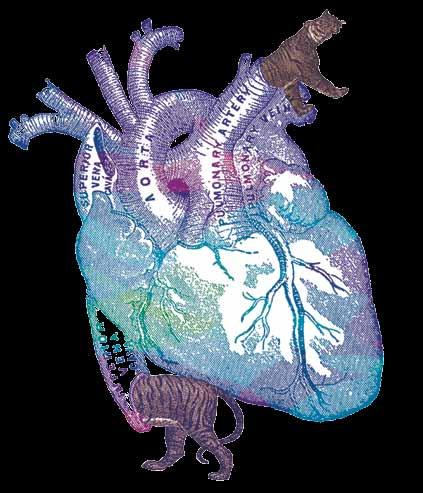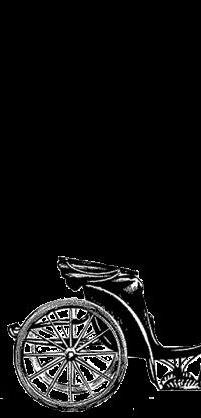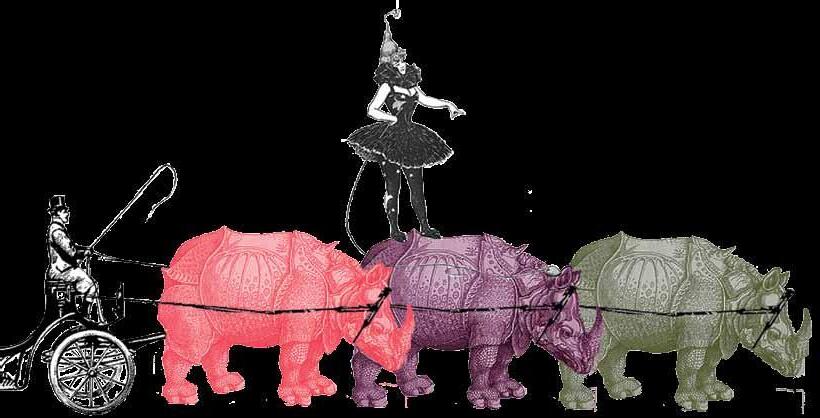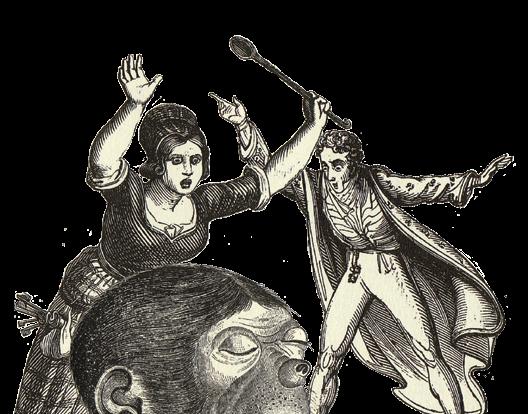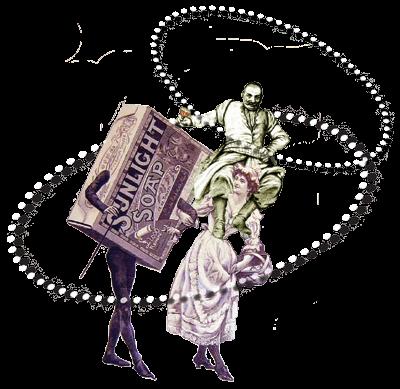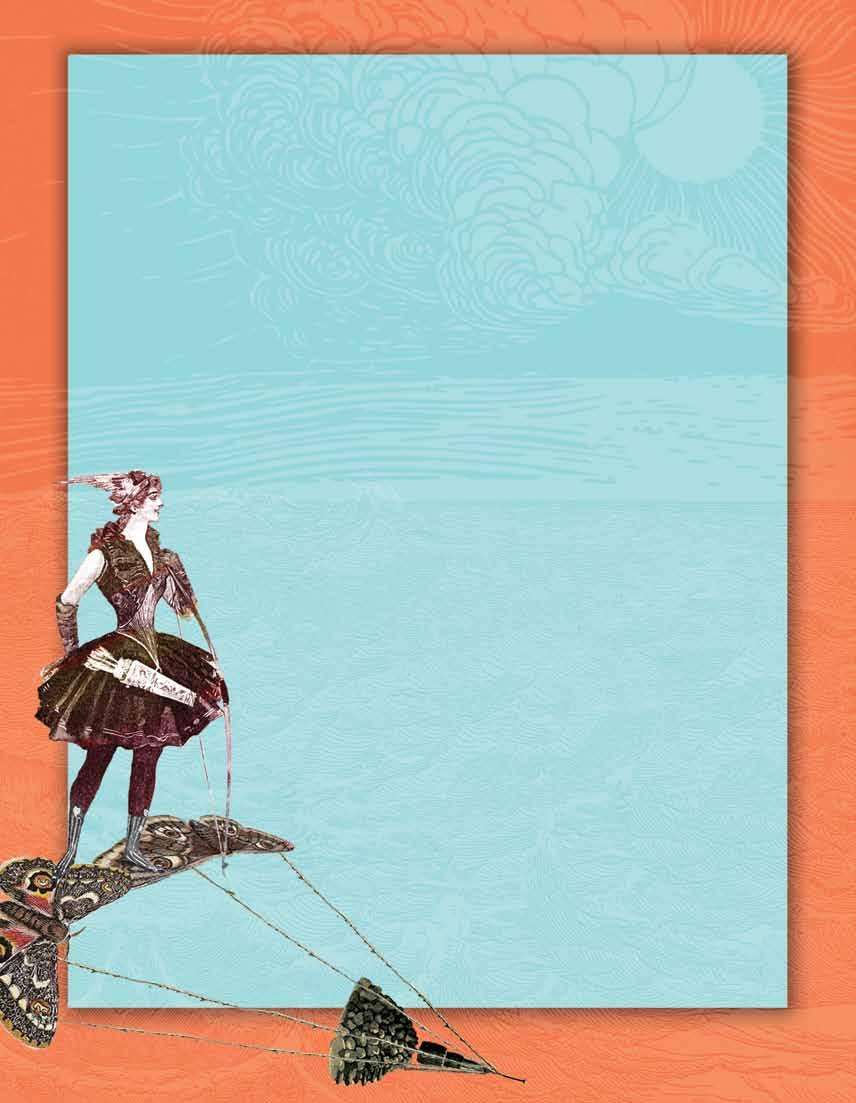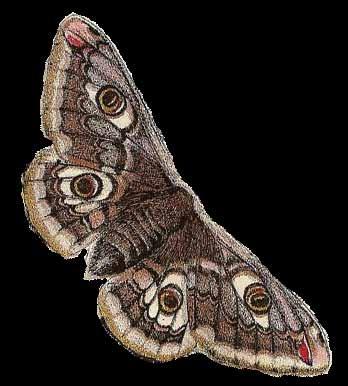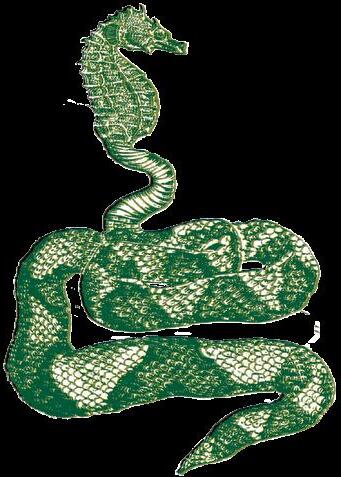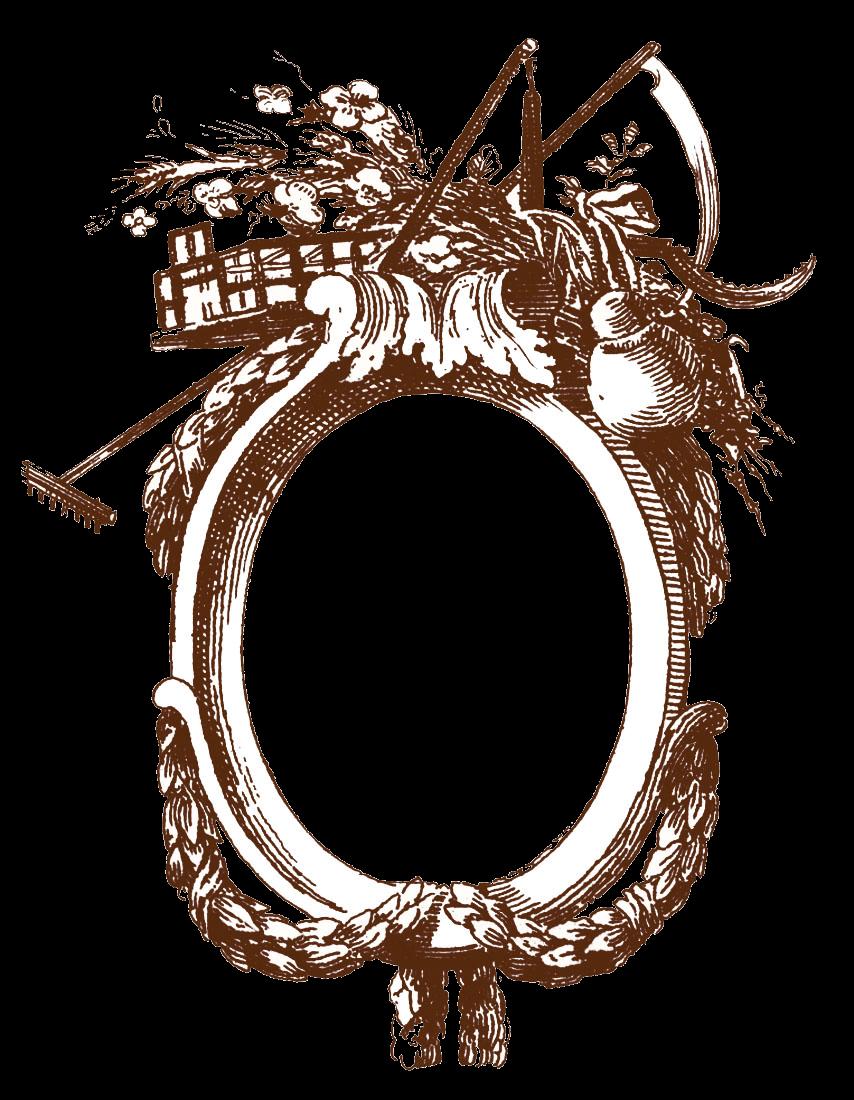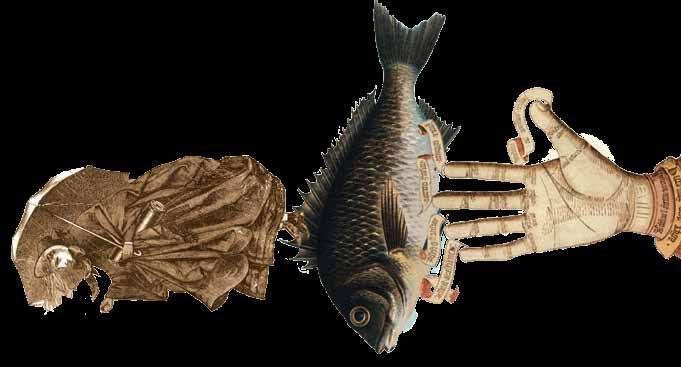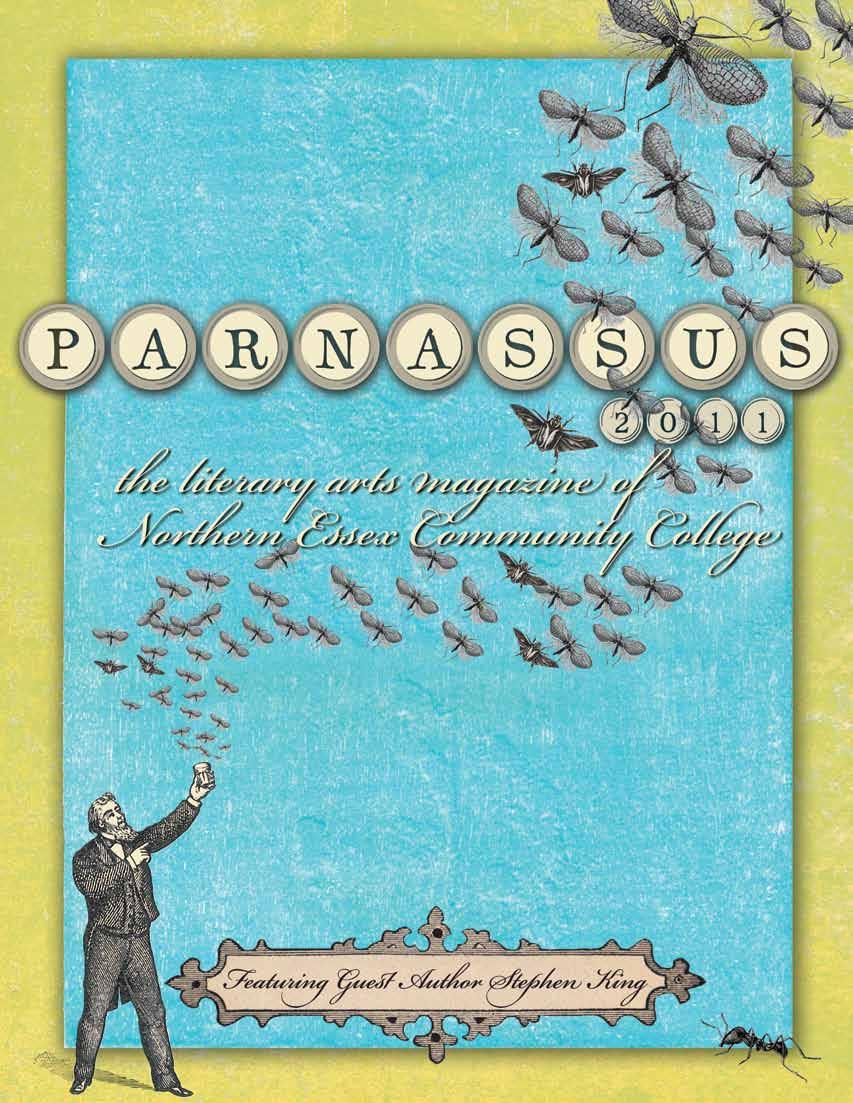

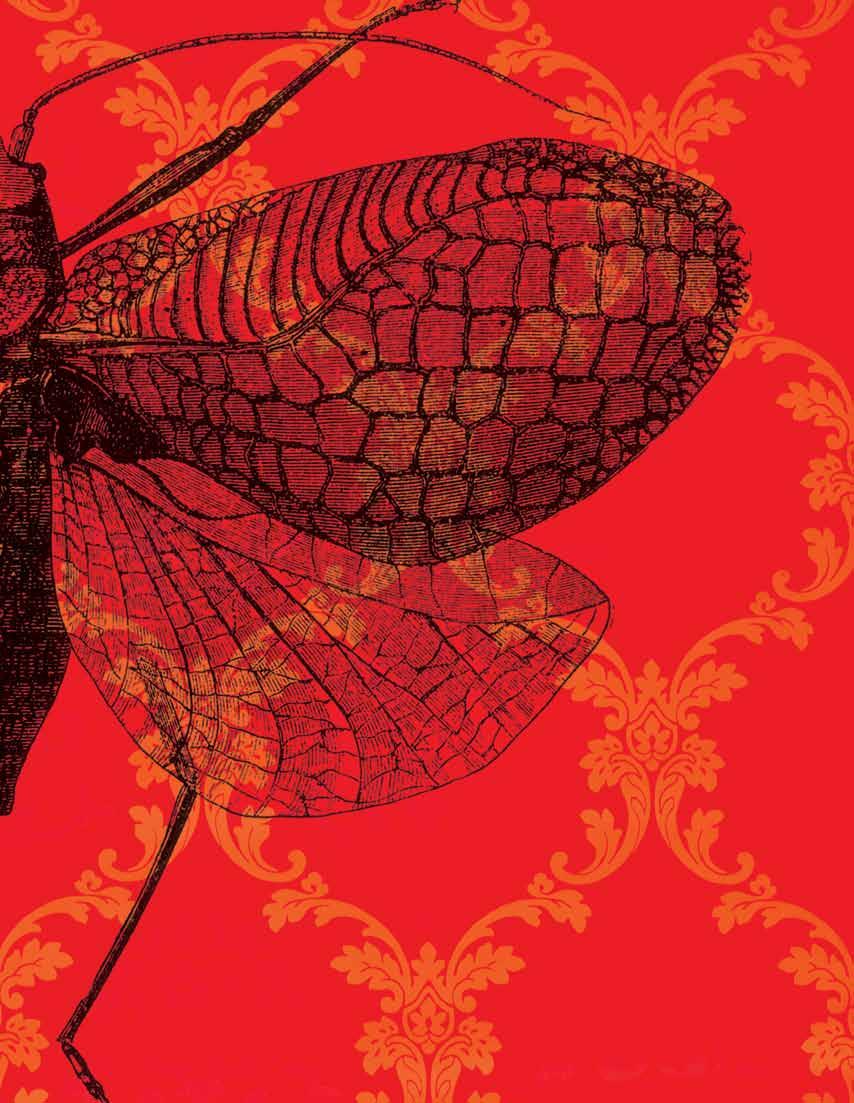
and indeed another Parnassus sat patiently, waiting for your attention to its traditionally gluttonous bloat of well-framed and fine-quipped compositions of both artistry and word, the finest offerings of another collegiate year passed on.
You picked up the book gently with light fingers, sliding your hands across its slick, yellowy surface and curious about what you might find beneath the cover you held closely in examination just moments ago. “Bugs?” you thought, pondering the possible implications of such imagery; were they being metaphorical or just strange? Or both? And just what does this “Parnassus” mean, anyway? You could certainly have done a quick search to discover that it is a Grecian mountain, once thought to be the dwelling of the inspirational and mystical muses of creative pursuit, but what fun would that be when such interestingly potential delights splayed out before you in print form? You would soldier on, instead, and be well rewarded for it.
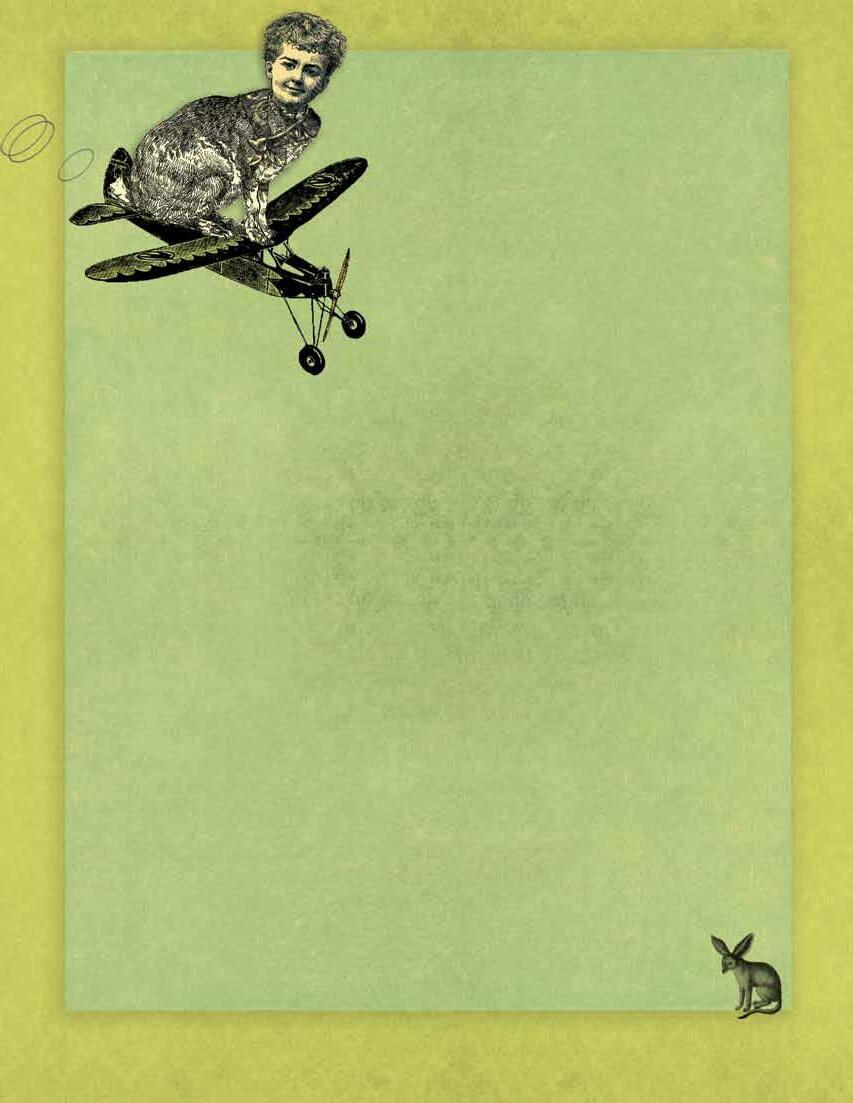
And then came the promise of even greater things to follow: a familiar name: Stephen King, guest author, right here at your disposal. You were surprised. Impressed. And rightly so, as such a mighty titan of prose should garner only the most grandiose of emotional response, and to whom much gratitude should be offered for his literary philanthropy of which you would soon be a recipient. It compelled you inside to delve even further into its contents, to determine with what brilliant company Mr. King would find himself amongst in these colorfully garnished pages which would slip so serenely along as you journeyed through their solicitous spread. Great talent, grand description, and gorgeous sights awaited you, eager for their opportunity to astonish, and you took full advantage of them all. Yes, you would indeed enjoy this volume of Parnassus, and few could find reason to condemn you. Once devoured, its stuffings would continue remain in your service at tomorrow’s beckon, and, as is always untiringly hoped by its producers, it just may have implanted a fertile morsel of inspiration, as you yourself could one day grace the contents of a later edition, impressing upon the future creators to follow.
Parnassus waits.
2010 2009 2008
Recent Awards
Silver Crown, Columbia Scholastic Press Association
First Place, Eastern Division, Community College Humanities Association
First Place, American Scholastic Press Association
Best Page Design, American Scholastic Press Association
Finalist, Associated Collegiate Press Pacemaker Awards
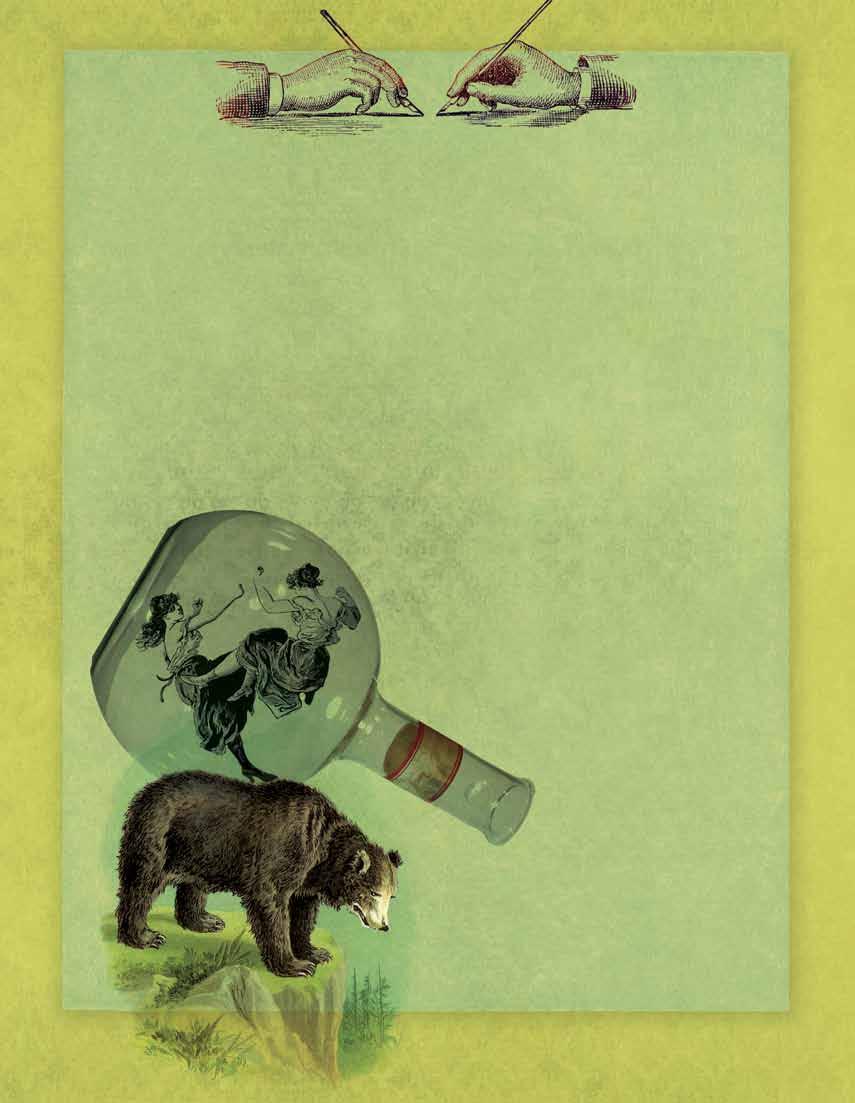
First Place, Eastern Division, Community College Humanities Association
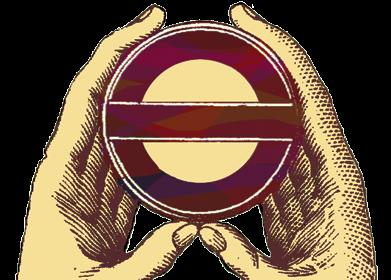
First Place with Merit, American Scholastic Press Association
Second Place, Eastern Division, Community College Humanities Association
First Place with Merit, American Scholastic Press Association
Best Gallery Section, American Scholastic Press Association
2 3
www.parnassuslitmag.com NorthernEssex CommunityColl e ge 100ElliottSt, Haverhill,MA0183 0
2011,
Contributors & Staff
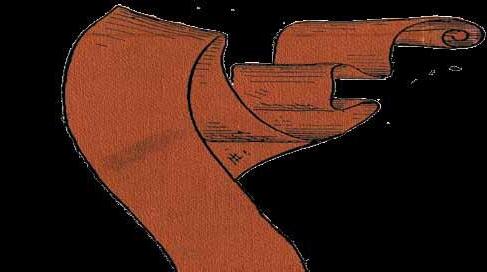

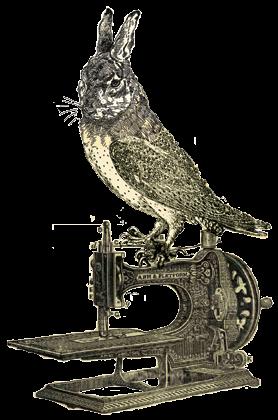
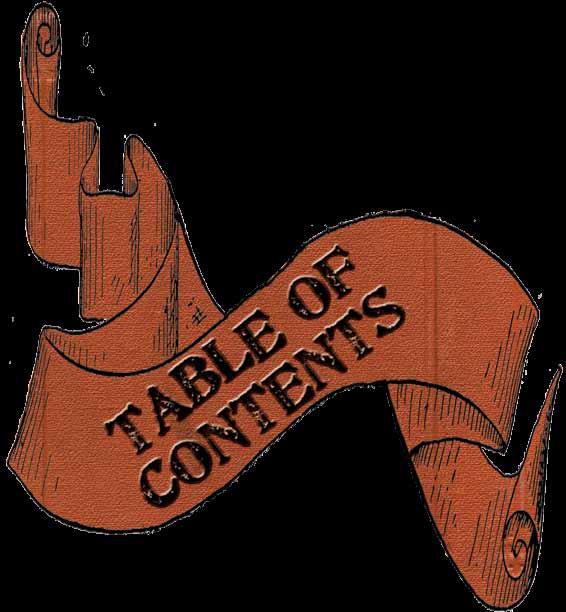
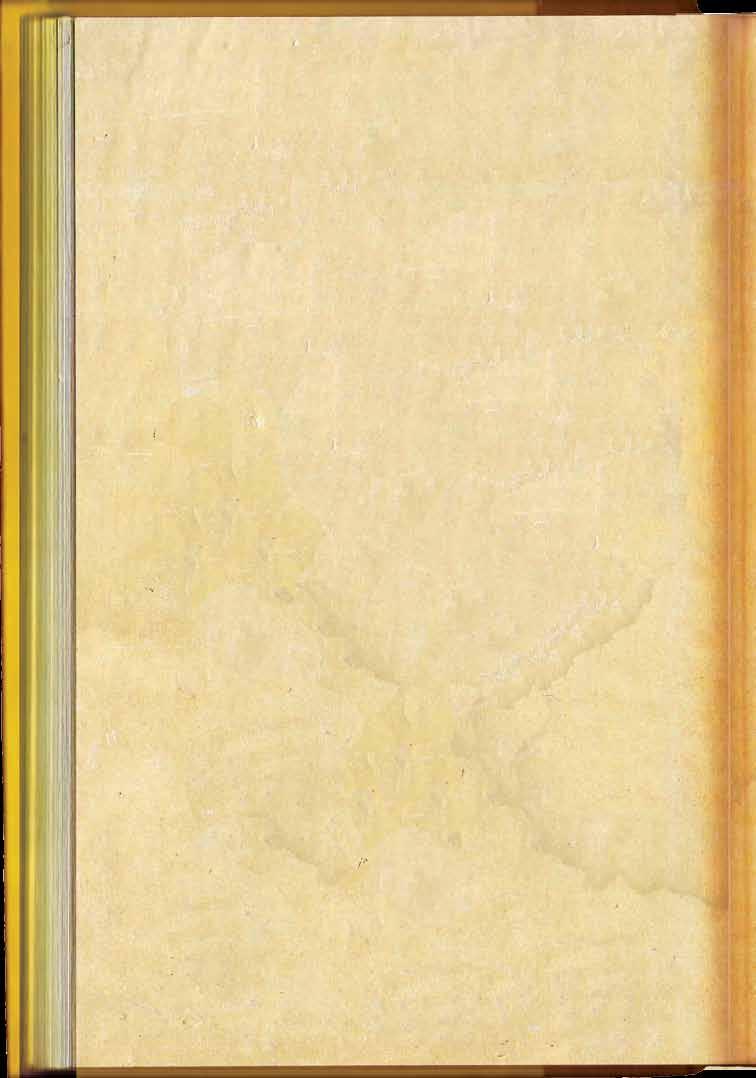



Guest Author Stephen King Night Surf 6 Poetry Kenzie Spears Plastic Heart 16 David Bowie Life’s Great Chore 17 Devin Grace Parks Sylvia 18 Magic 19 Jessica Rizkallah Aristotle’s Triangle was not Scalene 20 Elisabeth Beverage Whisper of Identities 22 Ausubel Pichardo Questions From My Blood 23 Mary Ellen D’Angelo-Lombardi Never Ending Tide 24 The Teen-ager 25 Sir Luke Havergall IV Star-Flecked Twinkie 26 Ashely Hollingsworth Two 26 Regina Schulman First Frost 27 Gall Melanie Hayes 30 Juliann Sherrill 31 Haley Norris 32 Shannon Keating 34 Megan Cheney 35 Amy Titus 36 David Sheeley 37 Heather Norcross 38 Will Tejeda 39 Kelly Vilsmeier 39 Devin Grace Parks 40 Lydia See 42 Dariush Nejad 48 Rebeca McBrien 49 Michele Simon 49 Fiction Chris Pariso Z 52 Karl Hutchins Floating Girls 55 A Timepiece for Death 56 William Montibello Great Day in Boston 58 Creative Non-Fiction Michele Simon Blazing Horizon 68 Lyn Lutrzykowski Tiny Revelations of a Recluse 72 Mary Ellen D’Angelo-Lombardi Where There’s Smoke 75 The Brown Jacket 76
ery
Stephen King was born in Portland, Maine in 1947, the second son of Donald and Nellie Ruth Pillsbury King. He made his first professional short story sale in 1967 to Startling Mystery Stories. In the fall of 1973, he began teaching high school English classes at Hampden Academy, the public high school in Hampden, Maine. Writing in the evenings and on the weekends, he continued to produce short stories and to work on novels. In the spring of 1973, Doubleday & Co., accepted the novel Carrie for publication, providing him the means to leave teaching and write full-time. He has since published over fifty books and has become one of the world’s most successful writers. Stephen lives in Maine and Florida with his wife, novelist Tabitha King. They are regular contributors to a number of charities including many libraries and have been honored locally for their philanthropic activities.
suitcase-sized transistor jobs that take about forty batteries and also make and play tapes. You couldn’t say the sound reproduction was great, but it sure was loud. Corey had been well-to-do before A6, but stuff like that didn’t matter anymore. Even his big radio/tape-player was hardly more than a nice-looking hunk of junk. There were only two radio stations left on the air that we could get. One was WKDM in Portsmouth – some backwoods deejay who had gone nuttyreligious. He’d play a Perry Como record, say a prayer, bawl, play a Johnny Ray record, read from Psalms (complete with each “selah,” just like James Dean in East of Eden), then bawl some more. Happy-time stuff like that. One day he sang “Bringing in the Sheaves” in a cracked, moldy voice that sent Needles and me into hysterics. The Massachusetts station was better, but we could only get it at night. It was a bunch of kids. I guess they took over the transmitting facilities of WRKO or WBZ after everybody left or died. They only gave gag call letters, like WDOPE or KUNT or WA6 or stuff like that. Really funny, you know–you could die laughing. That was the one we were listening to on the way back to the beach. I was holding hands with Susie; Kelly and Joan were ahead of us, and Needles was already over the brow of the point and out of sight. Corey was bringing up the rear, swinging his radio. The Stones were singing “Angie.”
“Do you love me?” Susie was asking.
“That’s all I want to know, do you love me?”
Susie needed constant reassurance. I was her teddy bear.
“No,” I said. She was getting fat, and if she lived long enough, which wasn’t likely, she would get really flabby. She was already mouthy.
“You’re rotten,” she said, and put a hand to her face. Her lacquered fingernails twinkled dimly with the half-moon that had risen about an hour ago.
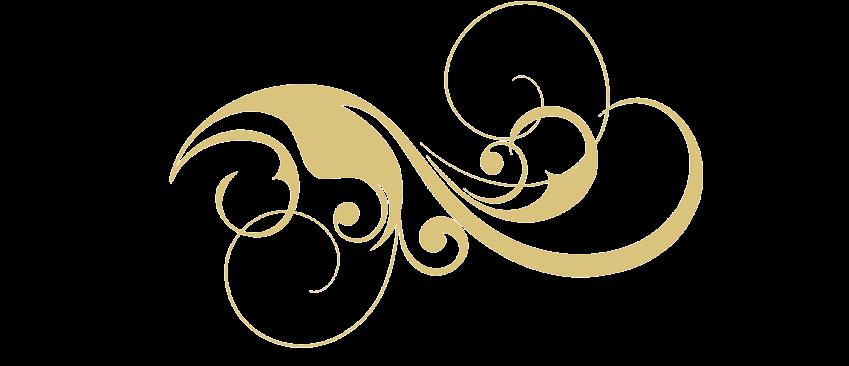
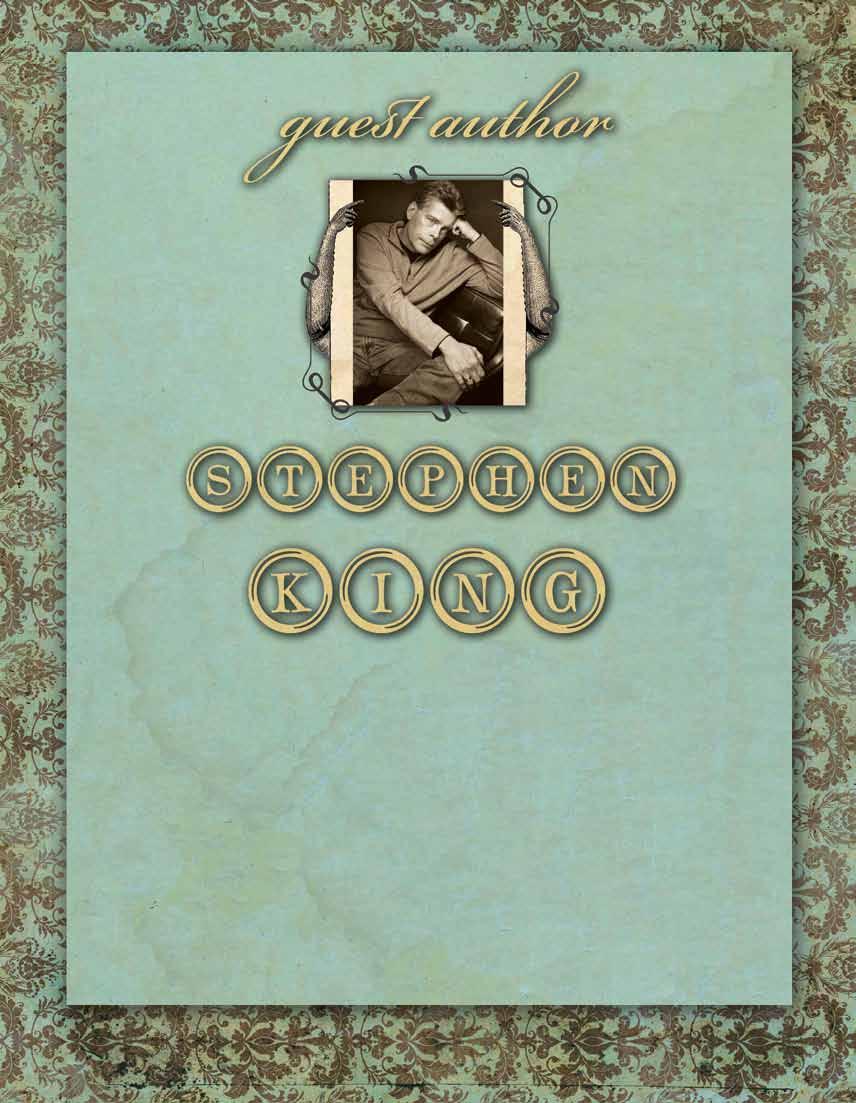
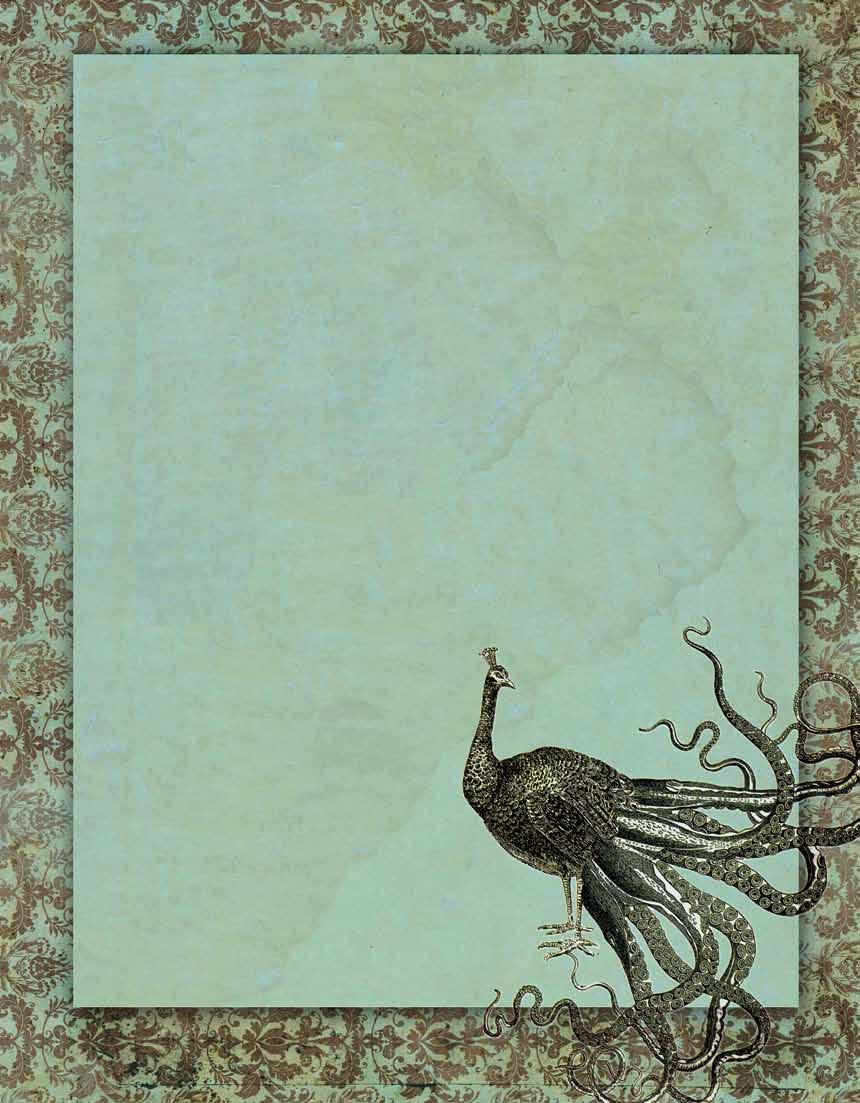
“Are you going to cry again?”
“Shut up!” She sounded like she was going to cry again, all right.
We came over the ridge and I paused. I always have
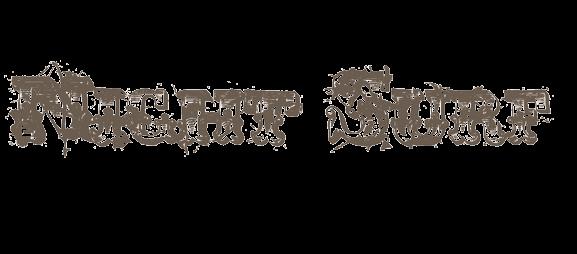
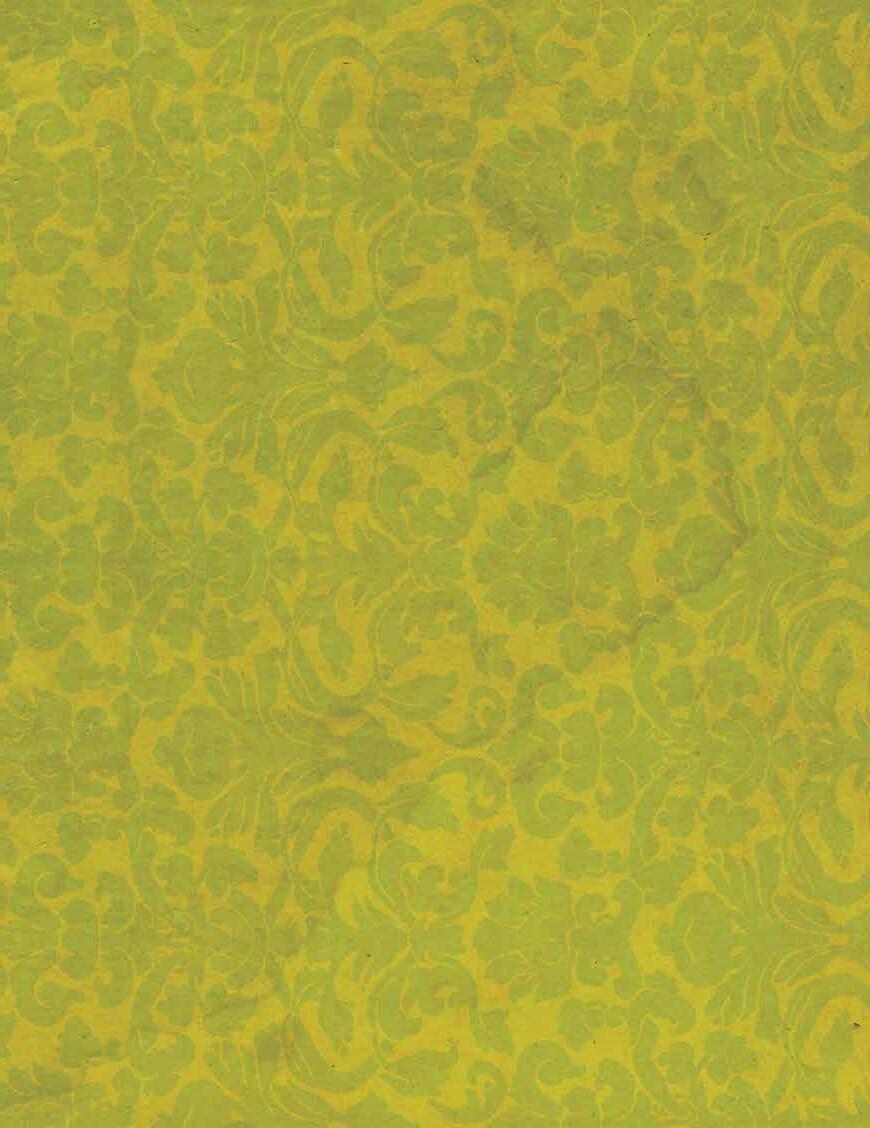
7 6
to pause. Before A6, this had been a public beach. Tourists, picnickers, runny-nosed kids and fat baggy grandmothers with sunburned elbows. Candy wrappers and popsicle sticks in the sand, all the beautiful people necking on their beach blankets, intermingled stench of exhaust from the parking lot, seaweed, and Coppertone oil.
But now all the dirt and all the crap was gone. The ocean had eaten it, all of it, as casually as you might eat a handful of Cracker Jacks. There were no people to come back and dirty it again. Just us, and we weren’t enough to make much mess. We loved the beach too, I guess–hadn’t we just offered it a kind of sacrifice? Even Susie, little bitch Susie with her fat ass and her cranberry bellbottoms.
The sand was white and duned, marked only by the high tide line–twisted skein of seaweed, kelp, hunks of driftwood. The moonlight stitched inky crescent-shaped shadows and folds across everything. The deserted lifeguard tower stood white and skeletal some fifty yards from the bathhouse, pointing toward the sky like a finger bone.
And the surf, the night surf, throwing up great bursts of foam, breaking against the headlands for as far as we could see in endless attacks. Maybe that water had been halfway to England the night before.
“’Angie,’ by the Stones,” the cracked voice on Corey’s radio said. “I’m sureya dug that one, a blast from the past that’s a golden gas, straight from the grooveyard, a platta that mattas. I’m Bobby. This was supposed to be Fred’s night, but Fred got the flu. He’s all swelled up.” Susie giggled then, with the first tears still on her eyelashes. I started toward the beach a little faster to keep her quiet.
“Wait up!” Corey called. “Bernie? Hey, Bernie, wait up!”
The guy on the radio was reading some dirty limericks, and a girl in the background asked him where did he put the beer. He said something back, but by that time we were on the beach. I looked back to see how Corey was doing. He was coming down on his backside, as usual, and he looked so ludicrous I felt a little sorry for him.
“Run with me,” I said to Susie.
“Why?”
I slapped her on the can and she squealed. “Just because it feels good to run.”
We ran. She fell behind, panting like a horse and calling for me to slow down, but I put her out of my head. The wind rushed past my ears and blew the hair off my forehead. I could smell the salt in the air, sharp and tart. The surf pounded. The waves were like foamed black glass. I kicked off my rubber sandals and pounded across the sand barefoot, not minding the sharp digs of an occasional shell. My blood roared.
And then there was the lean-to with Needles already inside and Kelly and Joan standing beside it, holding hands and looking at the water. I did a forward roll, feeling sand go down the back of my shirt, and fetched up against Kelly’s legs. He fell on top of me and rubbed my
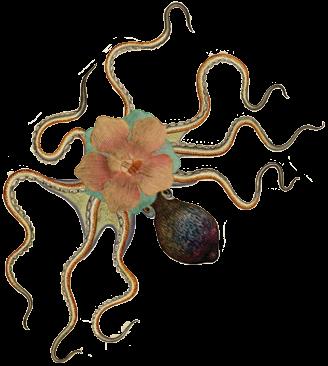


face in the sand while Joan laughed.
We got up and grinned at each other. Susie had given up running and was plodding toward us. Corey had almost caught up to her.
“Some fire,” Kelly said. “Do you think he came all the way from New York, like he said?” Joan asked.
“I don’t know.” I couldn’t see that it mattered anyway. He had been behind the wheel of a big Lincoln when we found him, semi-conscious and raving. His head was bloated to the size of a football and his neck looked like a sausage. He had Captain Trips and not far to go, either. So we took him up to the Point that overlooks the beach and burned him. He said his name was Alvin Sackheim. He kept calling for his grandmother. He thought Susie was his grandmother. This struck her funny, God knows why. The strangest things strike Susie funny.
It was Corey’s idea to burn him up, but it started off as a joke. He had read all those books about witchcraft and black magic at college, and he kept leering at us in the dark beside Alvin Sackheim’s Lincoln and telling us that if we made a sacrifice to the dark gods, maybe the spirits would keep protecting us against A6.
Of course none of us really believed that bullshit, but the talk got more and more serious. It was a new thing to do, and finally we went ahead and did it. We tied him to the observation gadget up there–you put a dime in it and on a clear day you can see all the way to Portland Headlight. We tied him with our belts, and then we went rooting around for dry brush and hunks of driftwood like kids playing a new kind of hide-and-seek. All the time we were doing it Alvin Sackheim just sort of leaned there and mumbled to his grandmother. Susie’s eyes got very bright and she was breathing fast. It was really turning her on. When we were down in the ravine on the other side of the outcrop she leaned against me and kissed me. She was wearing too much lipstick and it was like kissing a greasy plate.
I pushed her away and that was when she started pouting.
We went back up, all of us, and piled dead branches and twigs up to Alvin Sackheim’s waist. Needles lit the pyre with his Zippo, and it went up fast. At the end, just before his hair caught on fire, the guy began to scream. There was a smell just like sweet Chinese pork.
“Got a cigarette, Bernie?” Needles asked.
“There’s about fifty cartons right behind you.”
He grinned and slapped a mosquito that was probing his arm. “Don’t want to move.”
I gave him a smoke and sat down. Susie and I met Needles in Portland. He was sitting on the curb in front of the State Theater, playing Leadbelly tunes on a big old Gibson guitar he had looted someplace. The sound had echoed up and down Congress Street as if he were playing in a concert hall.
Susie stopped in front of us, still out of breath. “You’re rotten, Bernie.”
“Come on, Sue. Turn the record over. That side stinks.”
“Bastard. Stupid, unfeeling son of a bitch. Creep! ”
“Go away,” I said, “or I’ll black your eye, Susie. See if I don’t.”
She started to cry again. She was really good at it. Corey came up and tried to put an arm around her. She elbowed him in the crotch and he spit in her face.
Author Guest Author 8 9
Guest
“I’ll kill you!” She came at him, screaming and weeping, making propellers with her hands. Corey backed off, almost fell, then turned tail and ran. Susie followed him, hurling hysterical obscenities. Needles put back his head and laughed. The sound of Corey’s radio came back to us faintly over the surf.
Kelly and Joan had wandered off. I could see them down by the edge of the water, walking with their arms around each other’s waist. They looked like an ad in a travel agent’s window–Fly to Beautiful St. Lorca. It was all right. They had a good thing.
“Bernie?”
“What?” I sat and smoked and thought about Needles flipping back the top of his Zippo, spinning the wheel, making fire with flint and steel like a caveman.
“I’ve got it,” Needles said.
“Yeah?” I looked at him. “Are you sure?”
“Sure I am. My head aches. My stomach aches. Hurts to piss.”
“Maybe it’s just Hong Kong flu. Susie had Hong Kong flu. She wanted a Bible.” I laughed. That had been while we were still at the University, about a week before they closed it down for good, a month before they started carrying bodies away in dump trucks and burying them in mass graves with payloaders.
“Look.” He lit a match and held it under the angle of his jaw. I could see the first triangular smudges, the first swelling. It was A6, all right.
“Okay,” I said.
“I don’t feel so bad,” he said. “In my mind, I mean. You, though. You think about it a lot. I can tell.”
“No I don’t.” A lie.
“Sure you do. Like that guy tonight. You’re thinking about that, too. We probably did him a favor, when you get right down to it. I don’t think he even knew it was happening.”
“He knew.”
He shrugged and turned on his side. “It doesn’t matter.
We smoked and I watched the surf come in and go out. Needles had Captain Trips. That made everything real all over again. It was late August already, and in a couple of weeks the first chill of fall would be creeping in. Time to move inside someplace. Winter. Dead by Christmas, maybe, all of us. In somebody’s front room with Corey’s expensive radio/tape-player on top of a bookcase full of Reader’s Digest Condensed Books and
the weak winter sun lying on the rug in meaningless windowpane patterns. The vision was clear enough to make me shudder. Nobody should think about winter in August. It’s like a goose walking over your grave. Needles laughed. “See? You do think about it.”


What could I say? I stood up. “Going to look for Susie.”
“Maybe we’re the last people on earth, Bernie. Did you ever think of that?” In the faint moonlight he already looked half dead, with circles under his eyes and pallid, unmoving fingers like pencils.
I walked down to the water and looked out across it. There was nothing to see but the restless, moving humps of the waves, topped by delicate curls of foam. The thunder of the breakers was tremendous down here, bigger than the world. Like standing inside a thunderstorm. I closed my eyes and rocked on my bare feet. The sand was cold and damp and packed. And if we were the last people on earth, so what? This would go on as long as there was a moon to pull the water.
Susie and Corey were up the beach. Susie was riding him as if he were a bucking bronc, pounding his head into the running boil of the water. Corey was flailing and splashing. They were both soaked. I walked down and pushed her off with my foot. Corey splashed away on all fours, spluttering and whoofing.
“I hate you!” Susie screamed at me. Her mouth was a dark grinning crescent. It looked like the entrance to a fun house. When I was a kid my mother used to take us kids to Harrison State Park and there was a fun house with a big clown face on the front, and you walked in through the mouth.
“Come on, Susie. Up, Fido.” I held out my hand. She took it doubtfully and stood up. There was damp sand clotted on her blouse and skin.
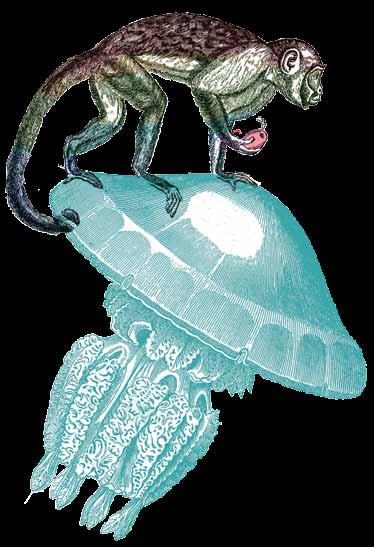
“You didn’t have to push me, Bernie. You don’t ever–”
“Come on.” She wasn’t like a jukebox; you never had to put in a dime and she never came unplugged.
We walked up the beach toward the main concession. The man who ran the place had had a small overhead apartment. There was a bed. She didn’t really deserve a bed, but Needles was right about that. It didn’t matter. No one was really scoring the game anymore.
The stairs went up the side of the building, but I paused for just a minute to look in the broken window at the dusty wares inside that no one had cared enough about to loot–stacks of sweatshirts (“Anson Beach” and a picture of sky and waves printed on the front), glittering bracelets that would green the wrist on the second day, bright junk earrings, beach balls, dirty greeting cards, badly painted ceramic madonnas, plastic vomit ( So realistic! Try it on your wife! ), Fourth of July sparklers for a Fourth that never was, beach towels with a voluptuous girl in a bikini standing amid the names of a hundred famous resort areas, pennants ( Souvenir of Anson Beach and Park), balloons, bathing suits. There was a snack bar up front with a big sign saying TRY OUR CLAM CAKE SPECIAL .
I used to come to Anson Beach a lot when I was still in high school. That was
Guest Author Guest Author 10 11
seven years before A6, and I was going with a girl named Maureen. She was a big girl. She had a pink checked bathing suit. I used to tell her it looked like a tablecloth. We had walked along the boardwalk in front of this place, barefoot, the boards hot and sandy beneath our heels. We had never tried the clam cake special.
“What are you looking at?”
“Nothing. Come on.”
I had sweaty, ugly dreams about Alvin Sackheim. He was propped behind the wheel of his shiny yellow Lincoln, talking about his grandmother. He was nothing but a bloated, blackened head and a charred skeleton. He smelled burnt. He talked on and on, and after a while I couldn’t make out a single word. I woke up breathing hard.
Susie was sprawled across my thighs, pale and bloated. My watch said 3:50, but it had stopped. It was still dark out. The surf pounded and smashed. High tide. Make it 4:15. Light soon. I got out of bed and went to the doorway. The sea breeze felt fine against my hot body. In spite of it all I didn’t want to die.
I went over in the corner and grabbed a beer. There were three or four cases of Bud stacked against the wall. It was warm, because there was no electricity. I don’t mind warm beer like some people do, though. It just foams a little more. Beer is beer. I went back out on the landing and sat down and pulled the ring tab and drank up.
So here we were, with the whole human race wiped out, not by atomic weapons or bio-warfare or pollution or anything grand like that. Just the flu. I’d like to put down a huge plaque somewhere, in the Bonneville Salt Flats, maybe. Bronze Square. Three miles on a side. And in big raised letters it would say, for the benefit of any landing aliens: JUST THE FLU.
I tossed the beer can over the side. It landed with a hollow clank on the cement walk that went around the building. The lean-to was a dark triangle on the sand. I wondered if Needles was awake. I wondered if I would be.
“Bernie?”
She was standing in the doorway wearing one of my shirts. I hate that. She sweats like a pig.
“You don’t like me much anymore, do you, Bernie?”
I didn’t say anything. There were times when I could still feel sorry for everything. She didn’t deserve me any more than I deserved her.
“Can I sit down with you?”
“I doubt if it would be wide enough for both of us.”
She made a choked hiccupping noise and started to go back inside.
“Needles has got A6,” I said.
She stopped and looked at me. Her face was very still. “Don’t joke, Bernie.”
I lit a cigarette.
“He can’t! He had–”
“Yes, he had A2. Hong Kong flu. Just like you and me and Corey and Kelly and Joan.”
“But that would mean he isn’t–”
“Immune.”
Guest Author
“Yes. Then we could get it.”
“Maybe he lied when he said he had A2. So we’d take him along with us that time,” I said. Relief spilled across her face. “Sure, that’s it. I would have lied if it had been me. Nobody likes to be alone, do they?” She hesitated. “Coming back to bed?”
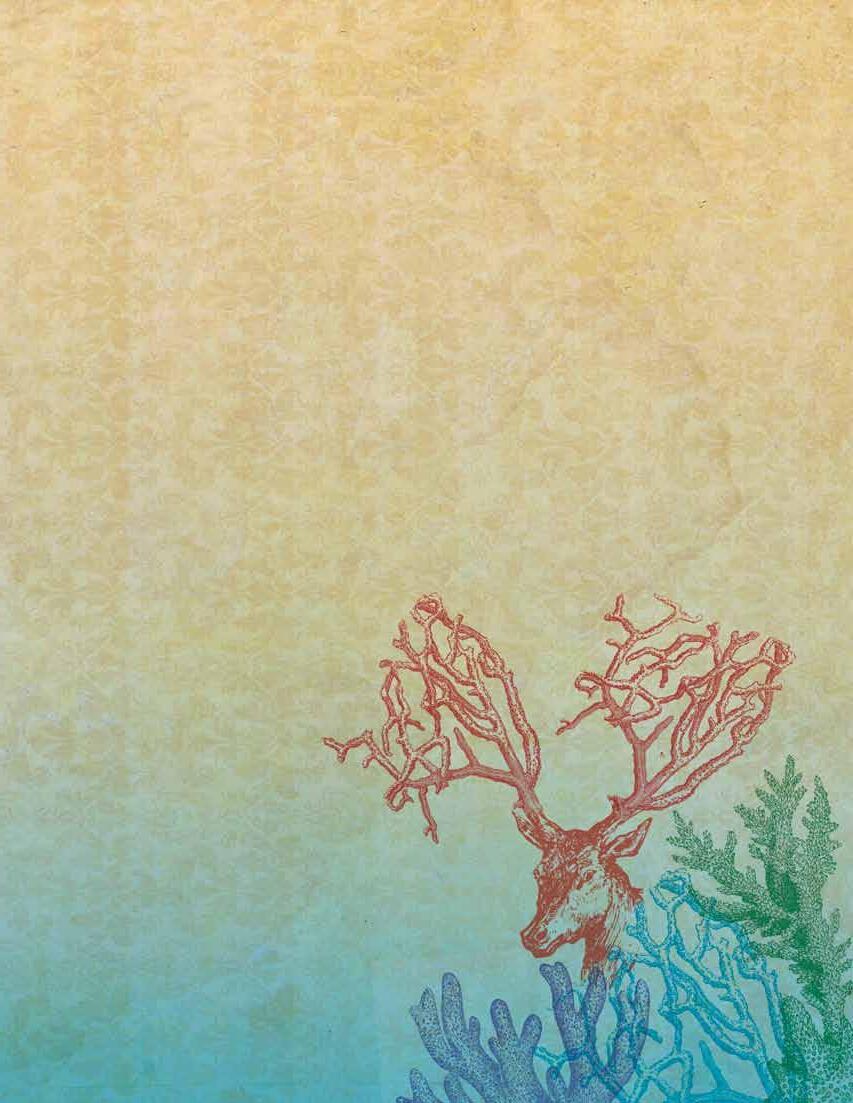
“Not just now.”
She went inside. I didn’t have to tell her that A2 was no guarantee against A6. She knew that. She had just blocked it out. I sat and watched the surf. It was really up. Years ago, Anson had been the only halfway decent surfing spot in the state. The Point was a dark, jutting hump against the sky. I thought I could see the upright that was the observation post, but it probably was just imagination. Sometimes Kelly took Joan up to the point. I didn’t think they were up there tonight.
I put my face in my hands and clutched it, feeling the skin, its grain and texture. It was all narrowing so swiftly, and it was all so mean–there was no dignity in it.
The surf coming in, coming in, coming in. Limitless. Clean and deep. We had come here in the summer, Maureen and I, the summer after high school, the summer before college and reality and A6 coming out of Southeast Asia and covering the world like a pall, July, we had eaten pizza and listened to her radio, I had put oil on her back, she had put oil on mine, the air had been hot, the sand bright, the sun like a burning glass.
“Night Surf” by Stephen King (originally appeared in Cavalier August 1974) from Night Shift by Stephen King. Copyright (c) 1974 by Cavalier. Reprinted by permission of Doubleday, a division of Random House, Inc.
Guest Author

12
13

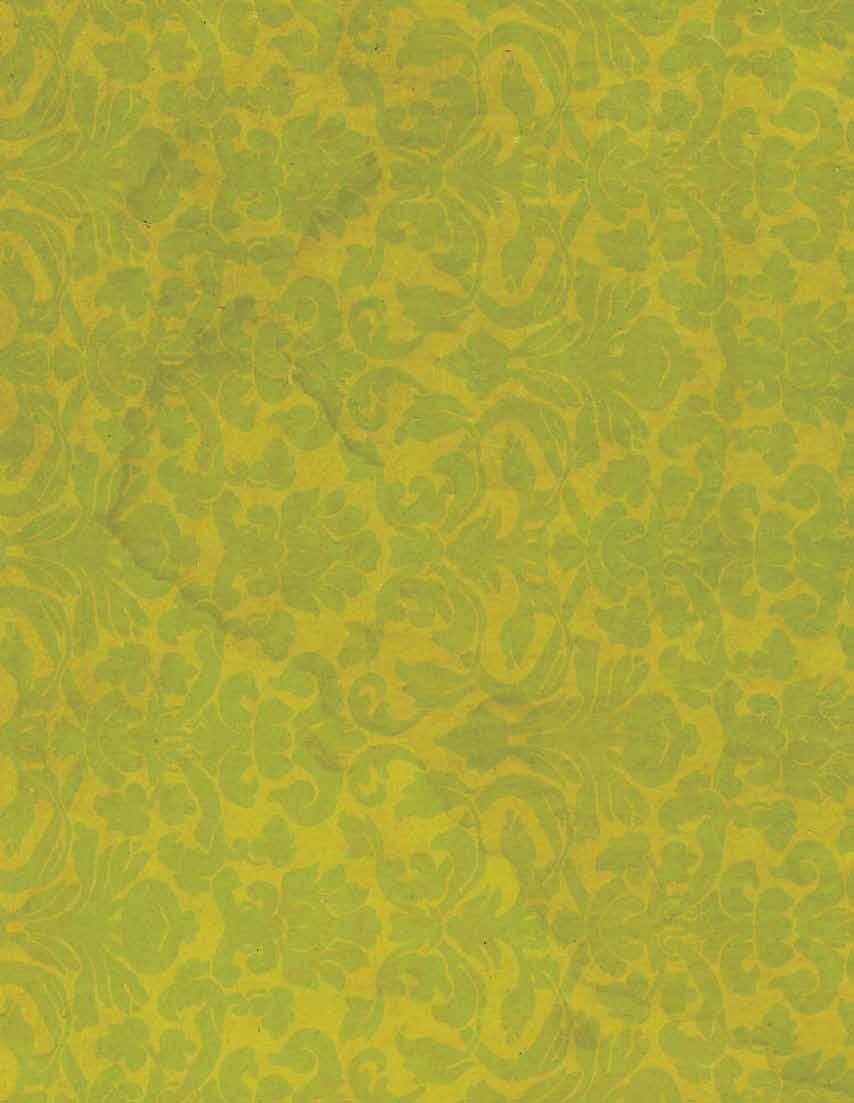
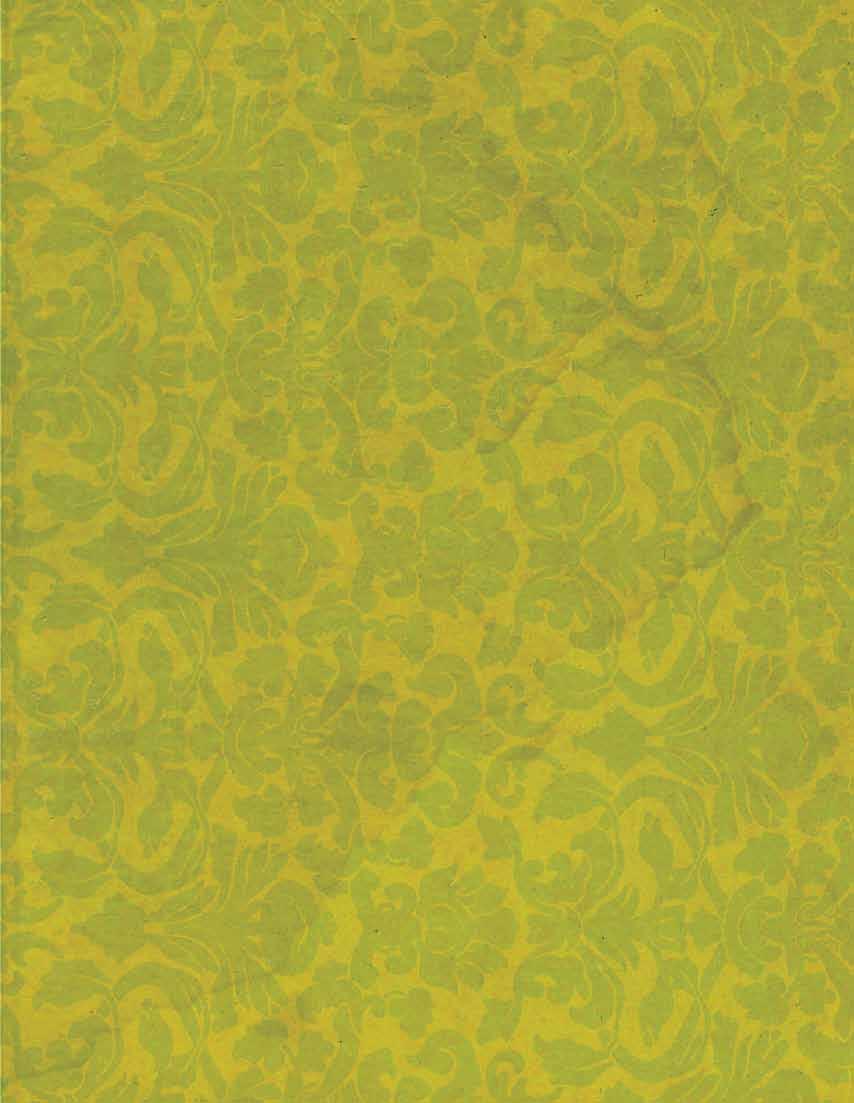
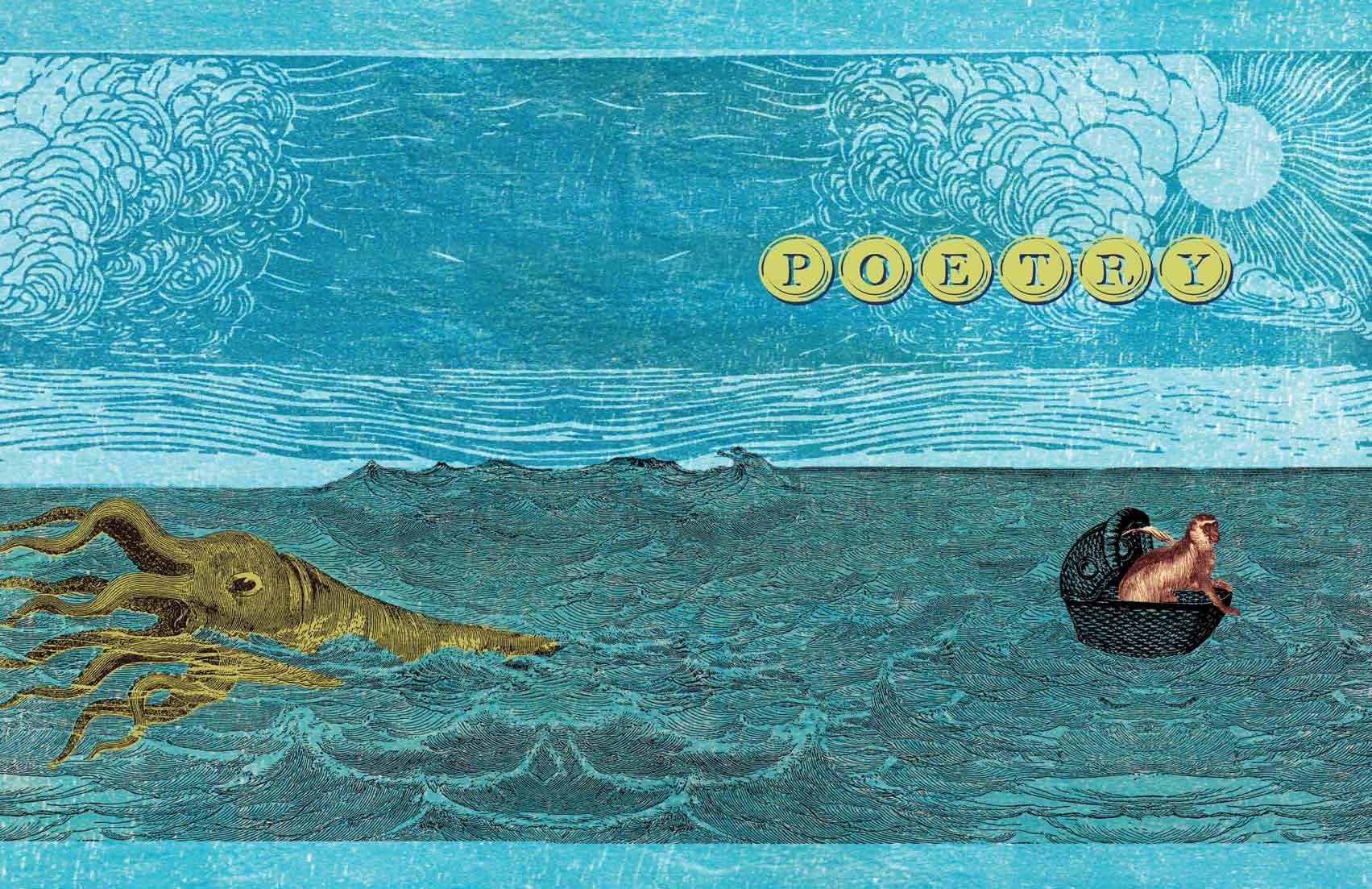
The Teen-ager
The tide sweeps in depositing shifting sands of favor, upon which the chosen, the few can rely

The tide sweeps out carrying the hopes the dreams of the many, an urn for burial at sea
The tide sweeps in delivering, boasting, of silt, good fortune cresting high, swelling the beach front

The tide sweeps out splashing emptied hearts, the future swirling round, caught up in the rip-tide
Sure to come certain to go, the endowment for an illusion of life for those who do not know how to be alive.
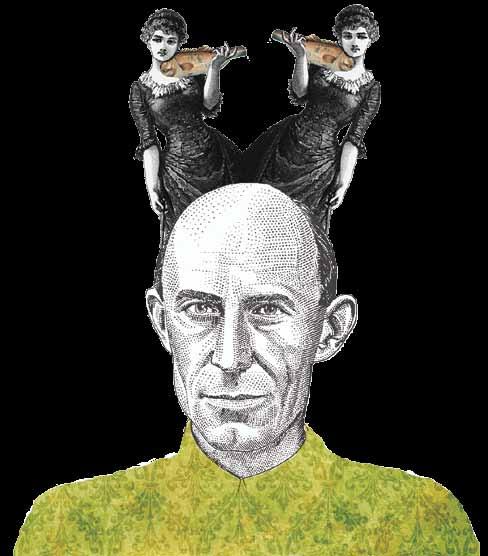
Mary Ellen D’Angelo Lombari
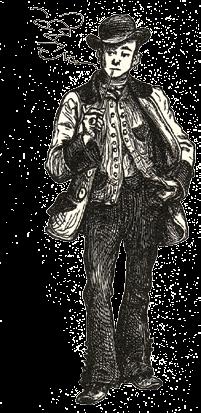
Common as ants tearing to a picnic
Traveling in colonies purposeful, single minded eye on the prize
To see them is to hide your wears pick it… move it… put it… hide it Those teen-agers get to it they own it for their purposes for their needs for their winter Yet admire one must a mind of singleness that even the outsider the intruder the alien knows what it needs what it is after how it carries through the winter
As weary as the hostess may be and as such may very well be a provider of joy Is it known to she what needs to be kept for the winter of her own?
24 Poetry Poetry 25
Star-Flecked Twinkie
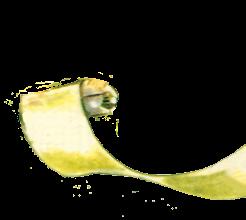

Sir Luke Havergall IV
To be a fish

Within a rock
To be alone
To be a clock
To think alone
To think of lore
To piss all over Metaphor
First Frost
Regina Schulman
Beckoned by an early morning drive-by, the first frost glistens on your fresh grave, delivering a paused pang to my busy heart.
A single tear cascades from one eye. You are missed, dear brother.
I am so sorry your path was to suffer. Your undaunted courage humbled us all. Your regrets are acknowledged and embraced with grace. How else were you to learn about God?
I know you do not lie in the silver box beneath the icy patch of sod. Yet I wonder, are you cold? Not your lifeless body, but your soul.
Two Ashely Hollingsworth
There in the dank, dark, deep
Where one would think evil does sleep
I gaze upon its crooked face
I gaze I gaze its linen and lace
Did you complete what you came here to learn? Can you share from beyond the gray marble stone, adorned with silk leaf rings of red, orange, and gold?
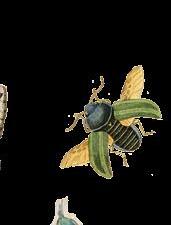
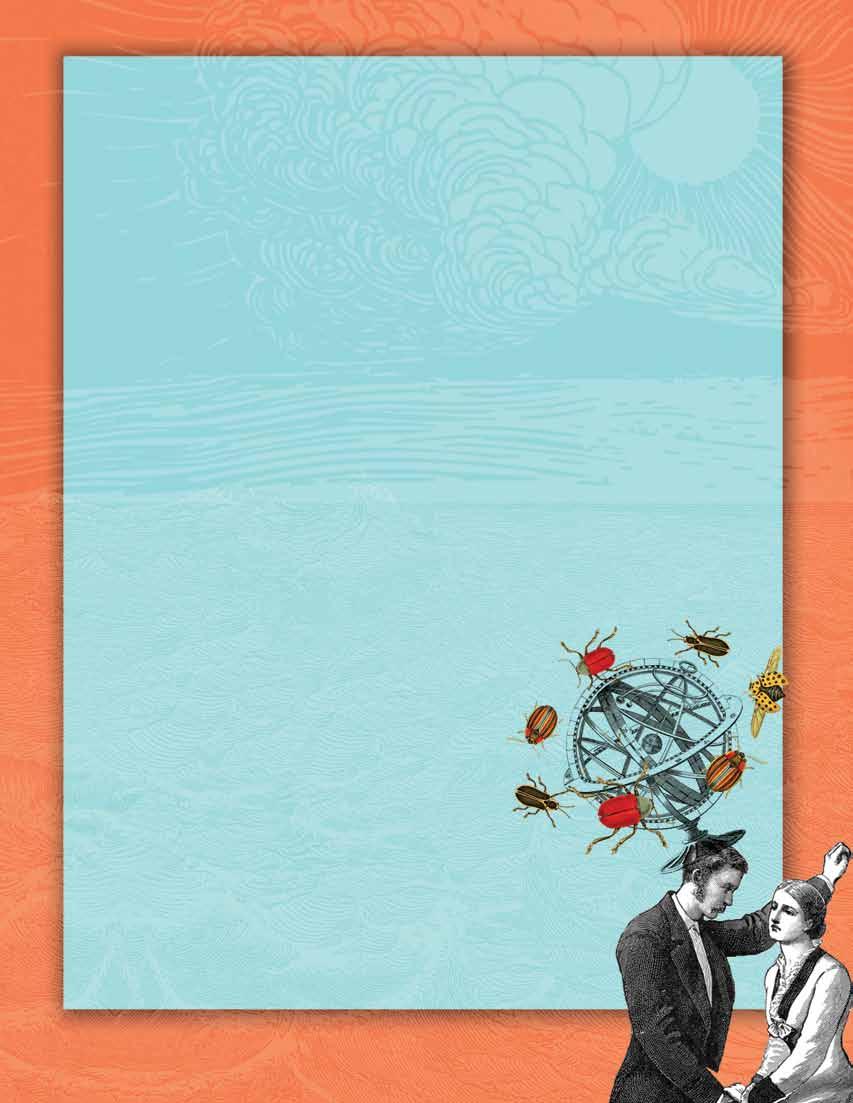
We do think so. We saw it in your eyes near the final hour. I noticed surrender unshackling your parting breath. Yes indeed, we are sure you were done.

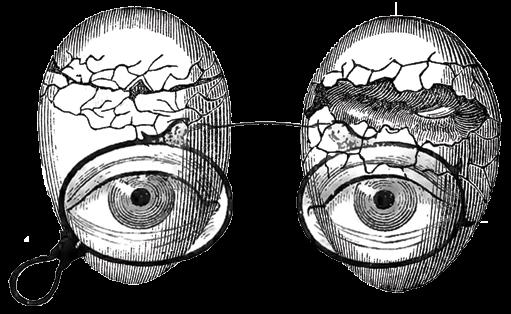
Know you were witnessed in your glorious departure.
Know you are honored by all you touched.
Know you are missed by all you loved.
Know you are loved by all you miss.
Know you are not forgotten.
Beckoned by an early morning drive-by, my busy heart turns quiet. As I sit in silence at your fresh grave, the first frost melts beneath warm memories of you.
Poetry 27
26 Poetry

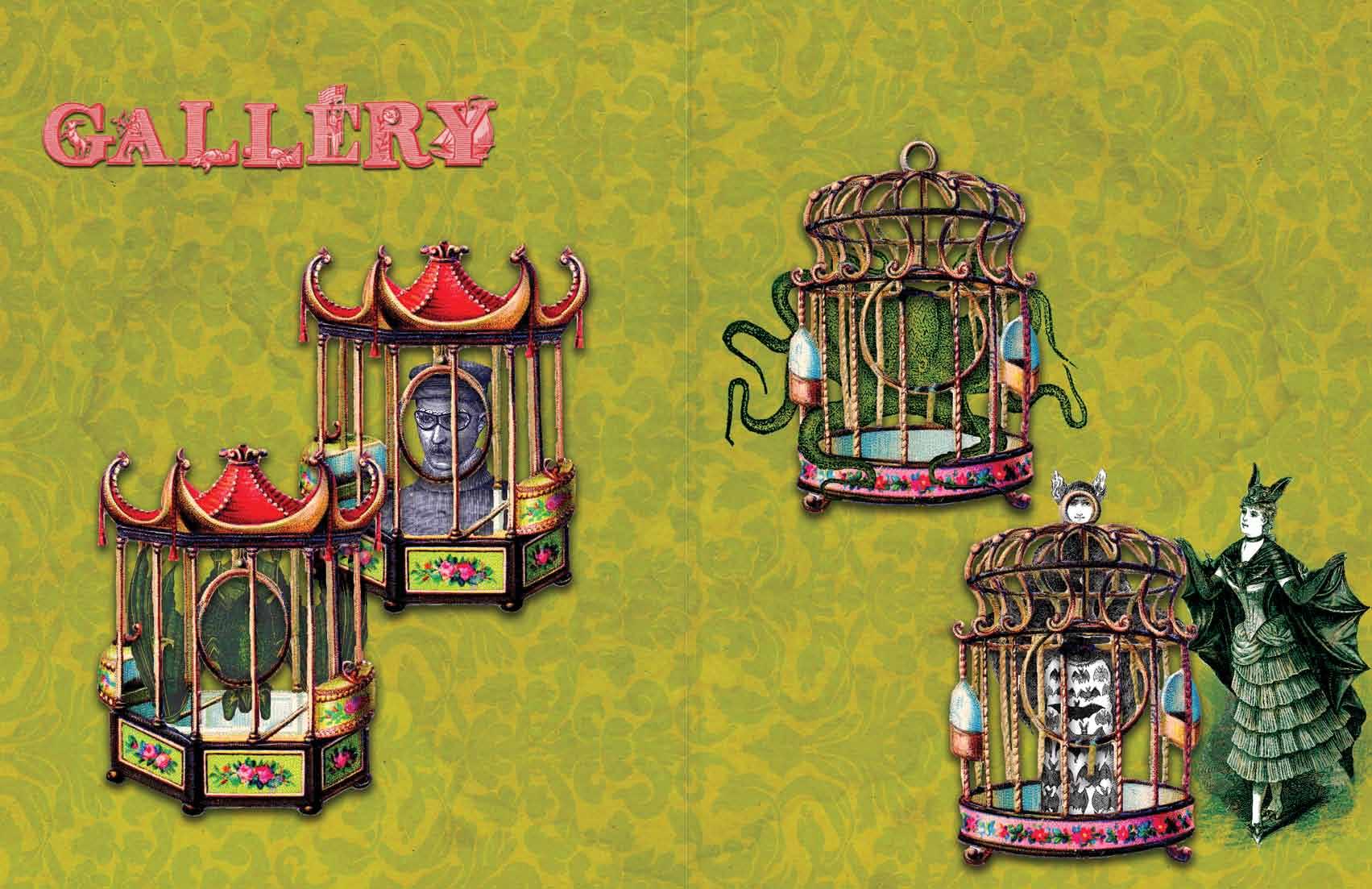

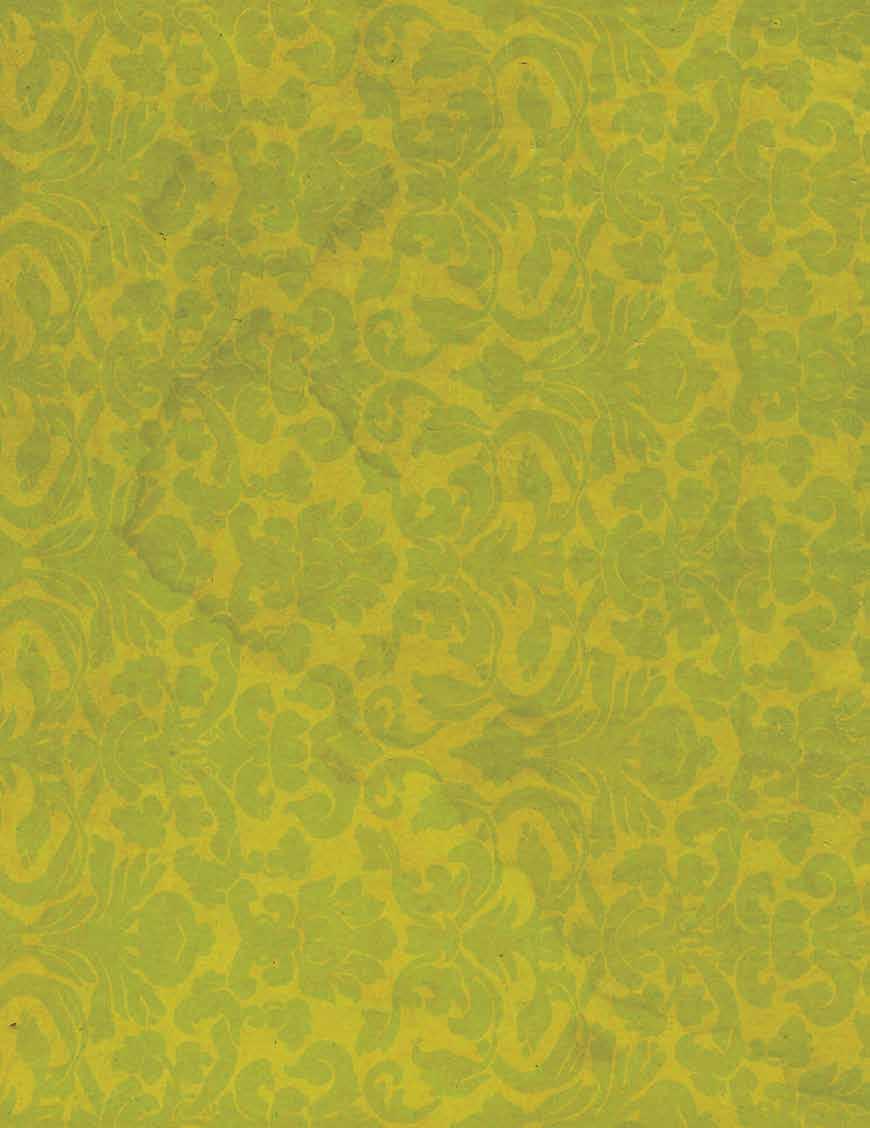
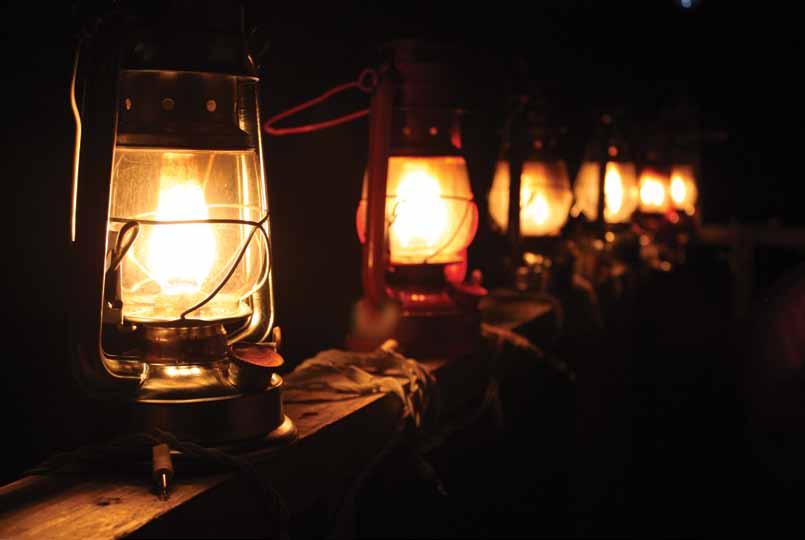
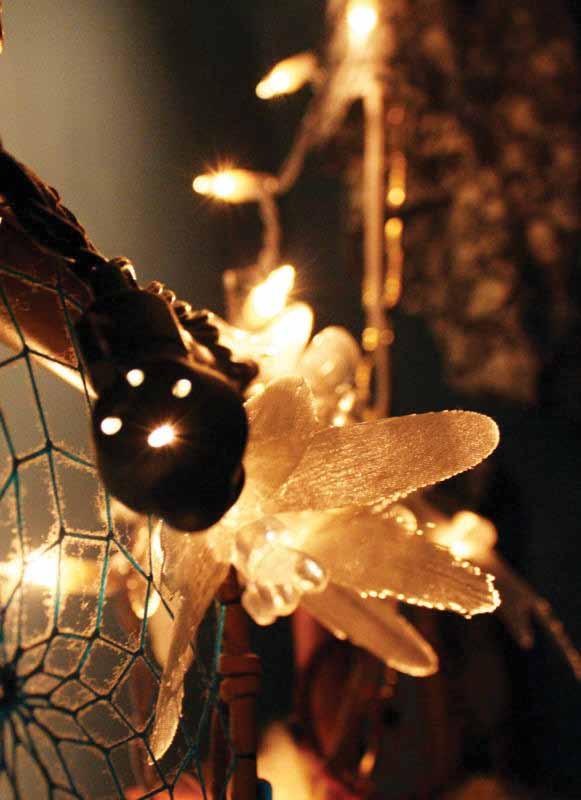




31 Gallery 30 31
Gallery
Jul
Melanie Haynes
iann Sherrill


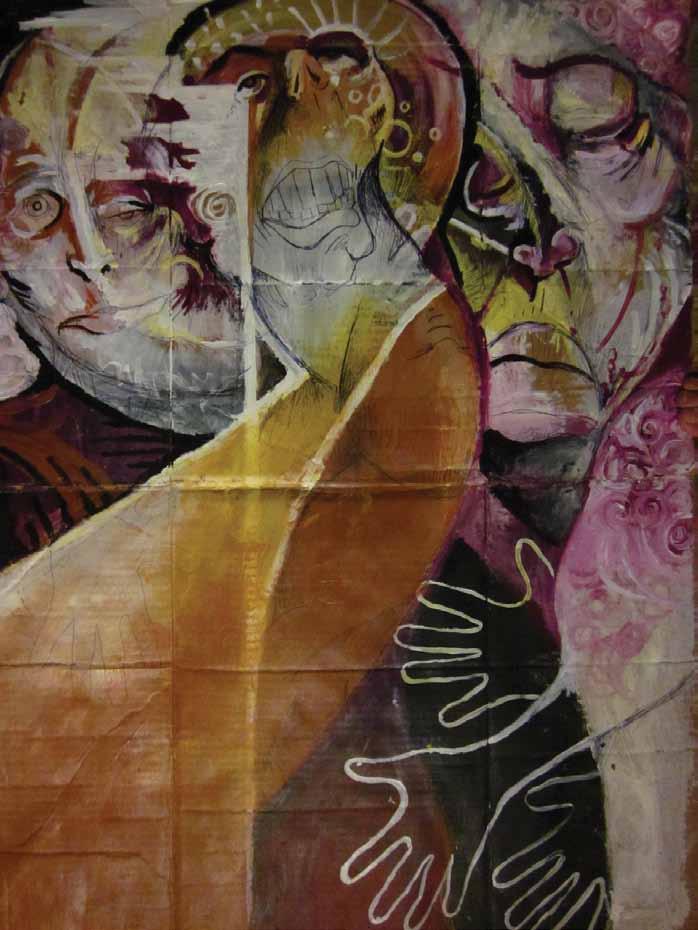
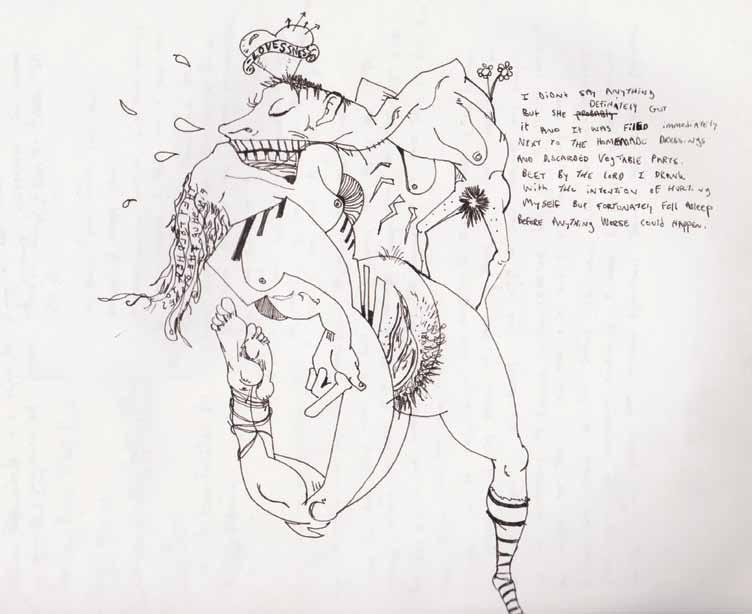




Gallery 33 Gallery 32 33
Haley Norris
Haley Norris



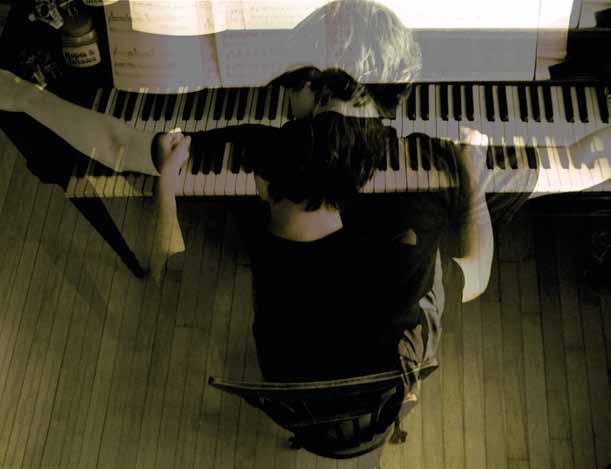
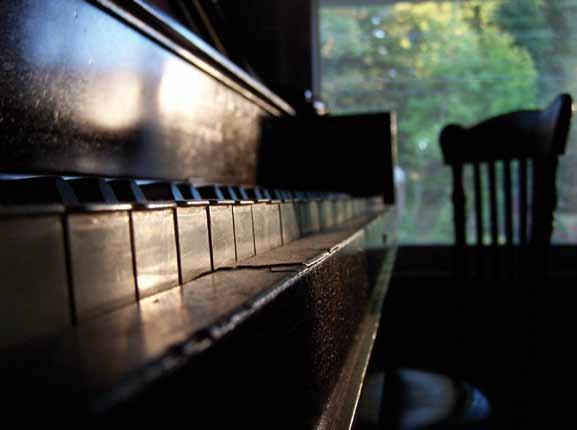






Gallery 35 Gallery 34 35
Megan Cheney
Shannon Keating


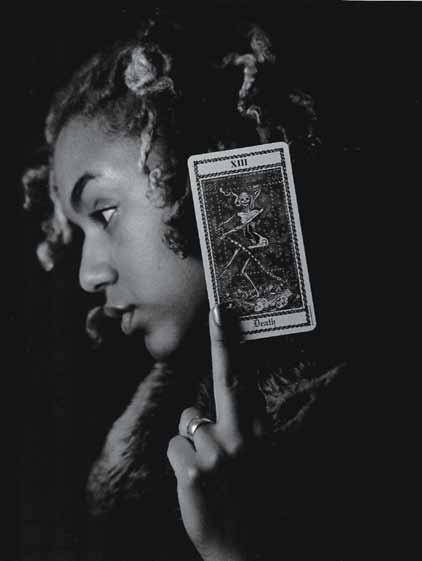
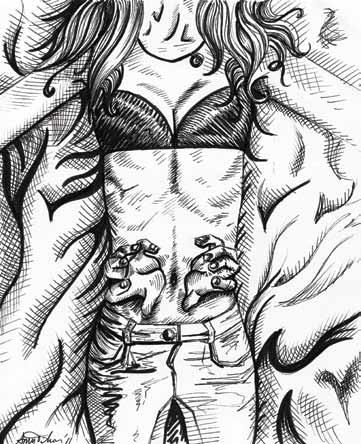


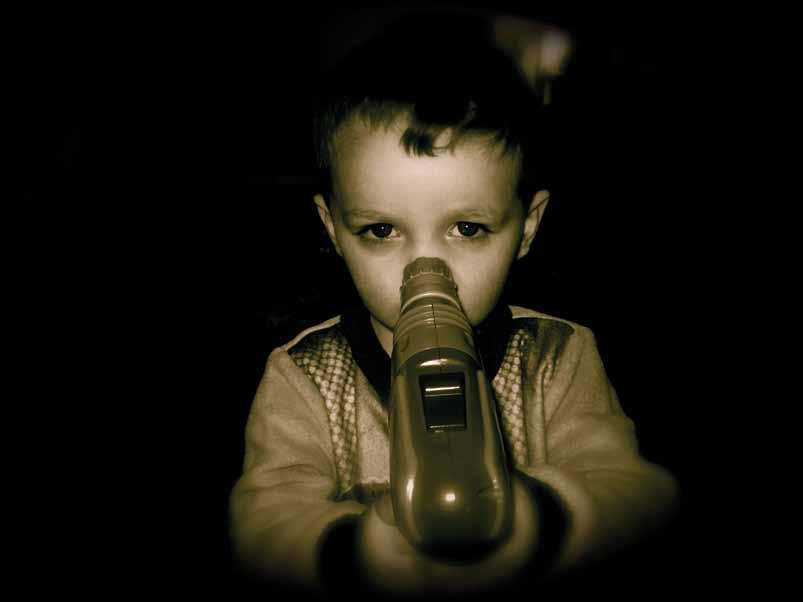




Gallery 37 Gallery 36 37
Amy Titus
David Sheeley


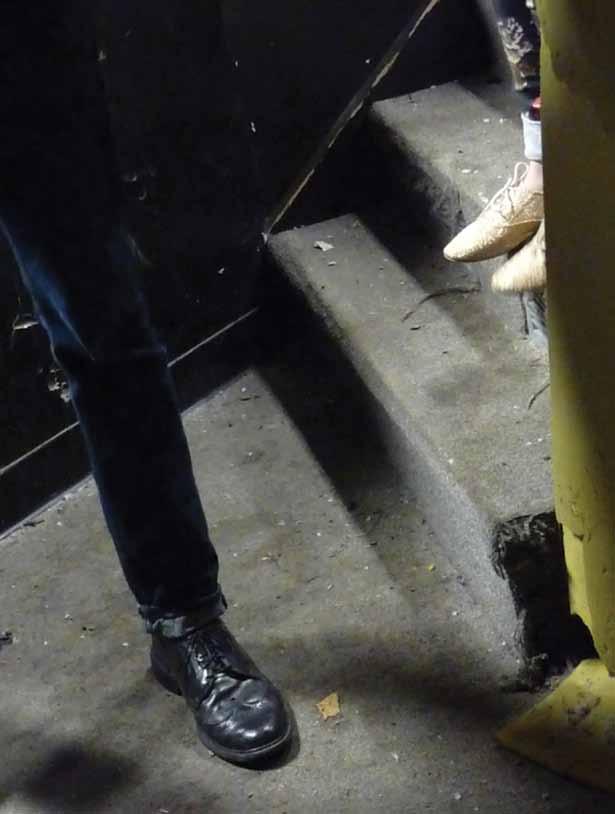








Gallery 39 Gallery 38 39
Heather Norcross
Will Tejeda
Kell y Vilsmeier



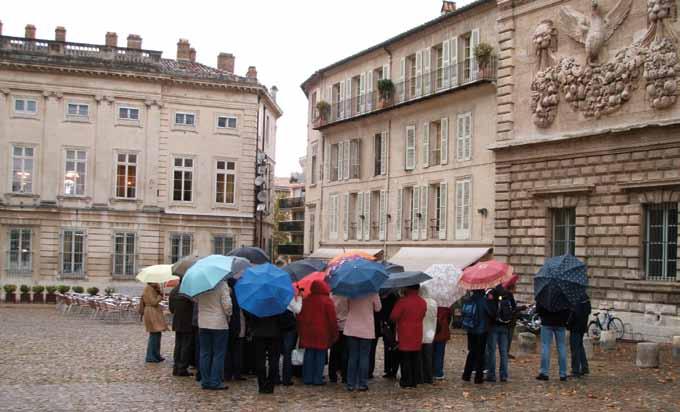
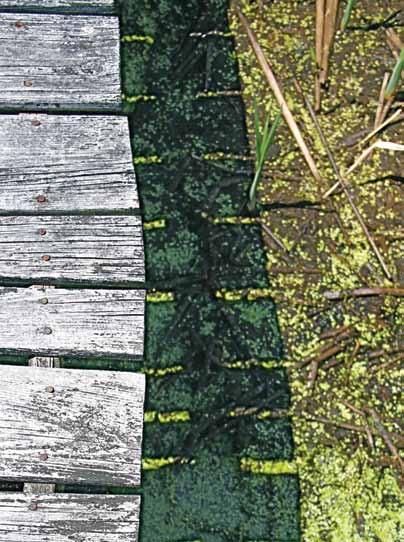









Gallery 41 Gallery 40 41
Devin Grace Parks
Devin Grace Parks


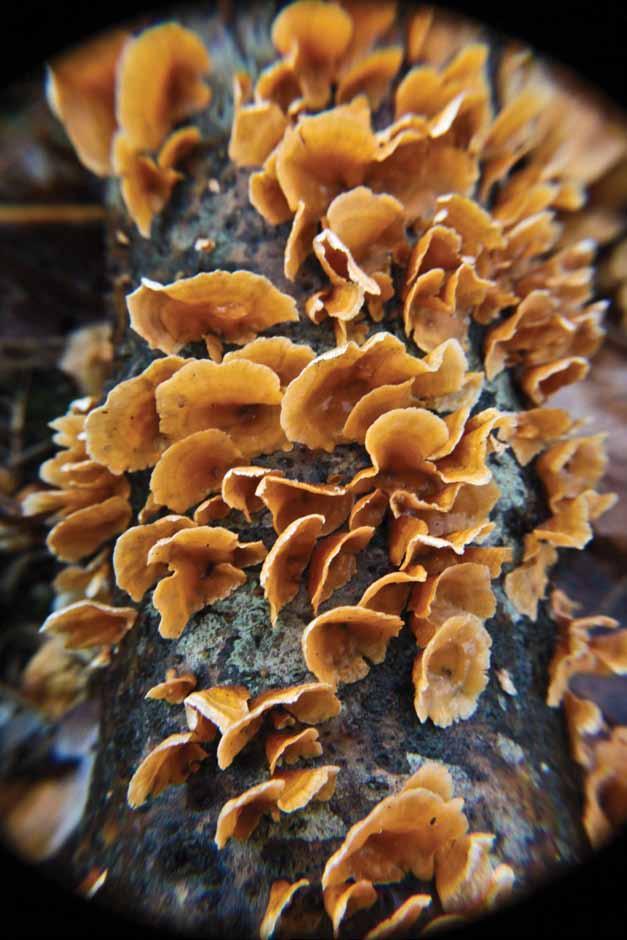
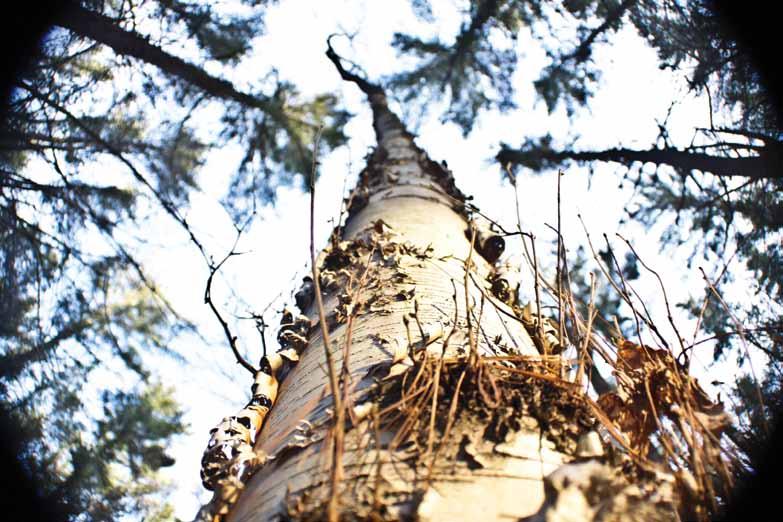




43 Gallery 42 43
Gallery
Lydia See
Lydia See


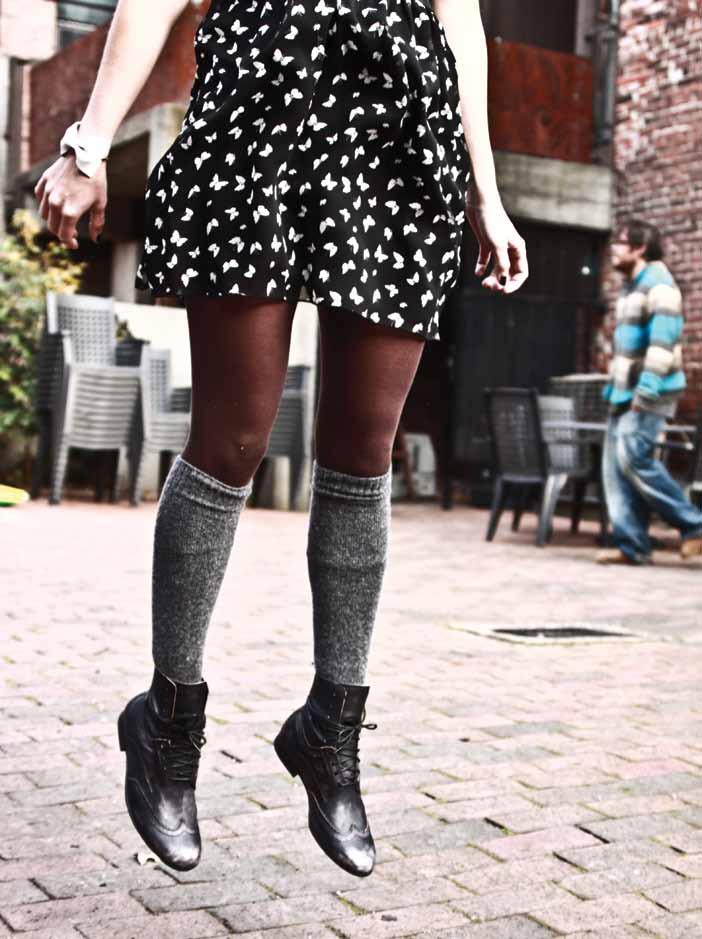
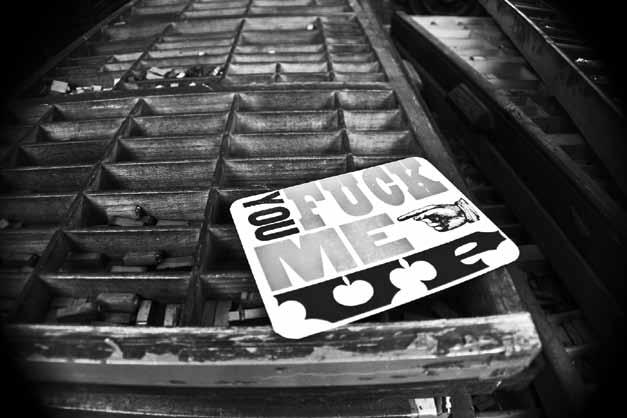
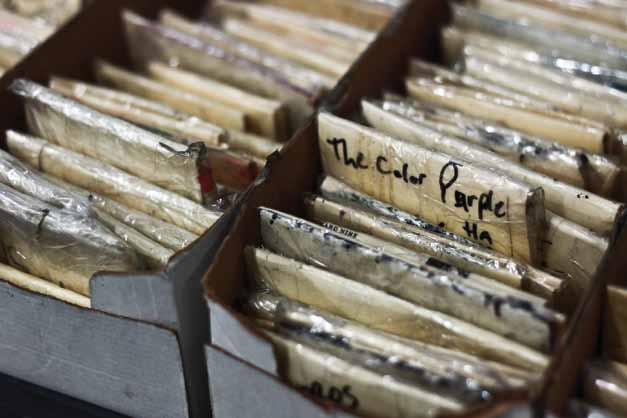






Gallery 45 Gallery 44 45
See
See
Lydia
Lydia


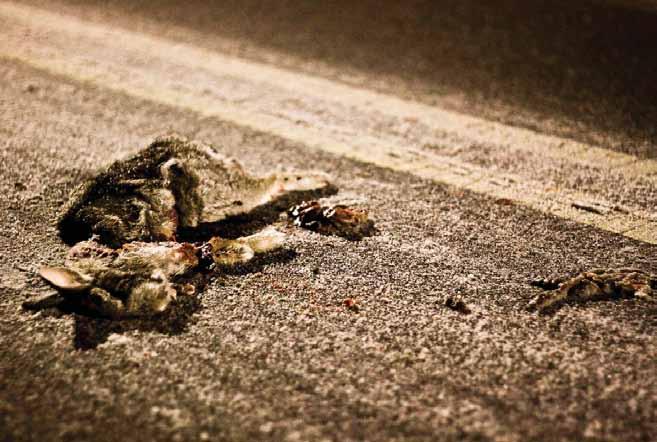
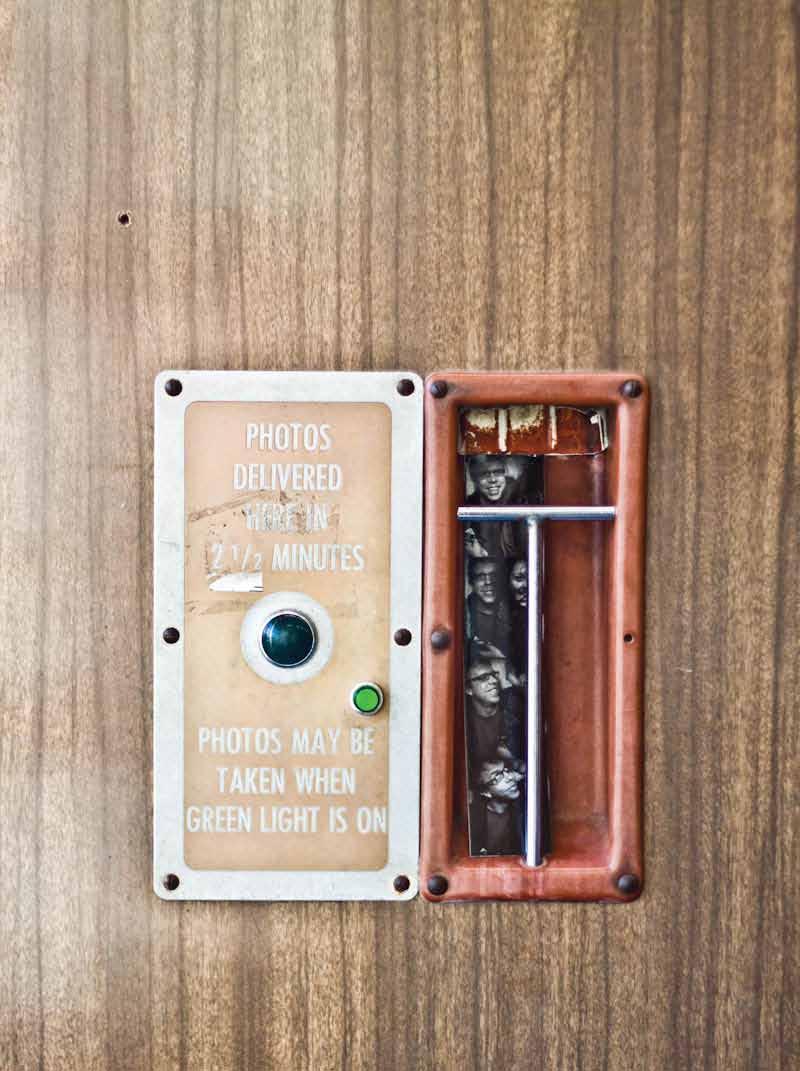







47 Gallery 46 47
Gallery
Lydia See Lydia See



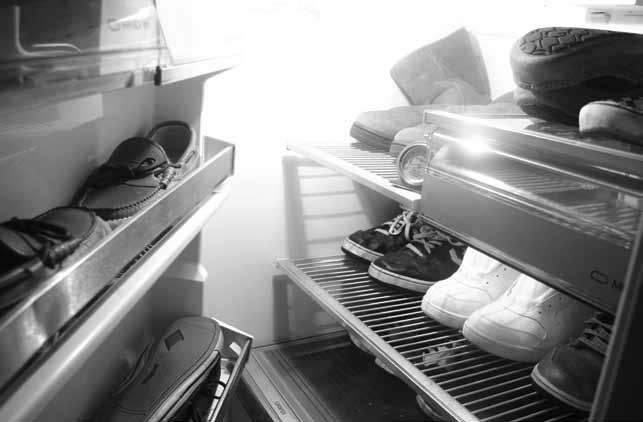
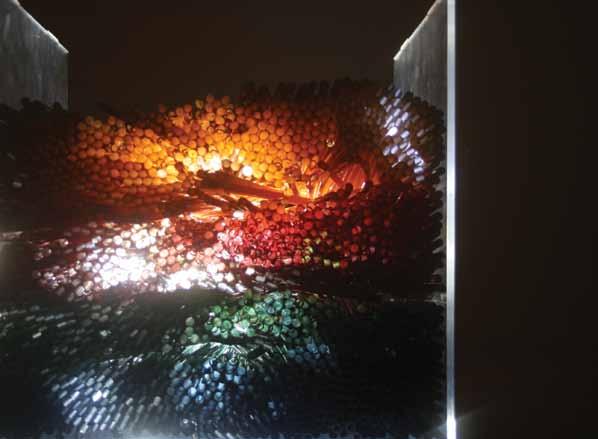
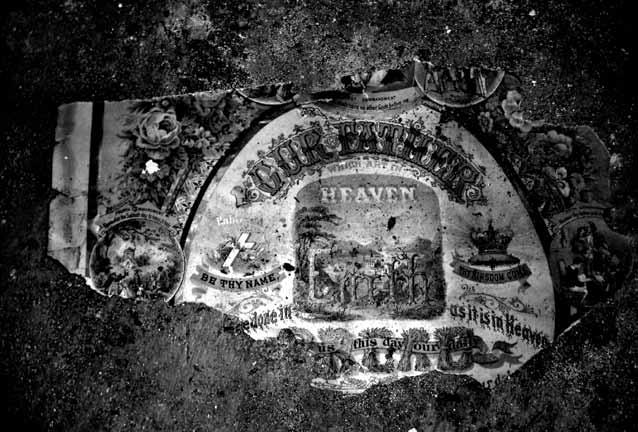








Gallery 49 Gallery 48 49
Michelle Simon
Dariush Nejad
Rebeca McBrien
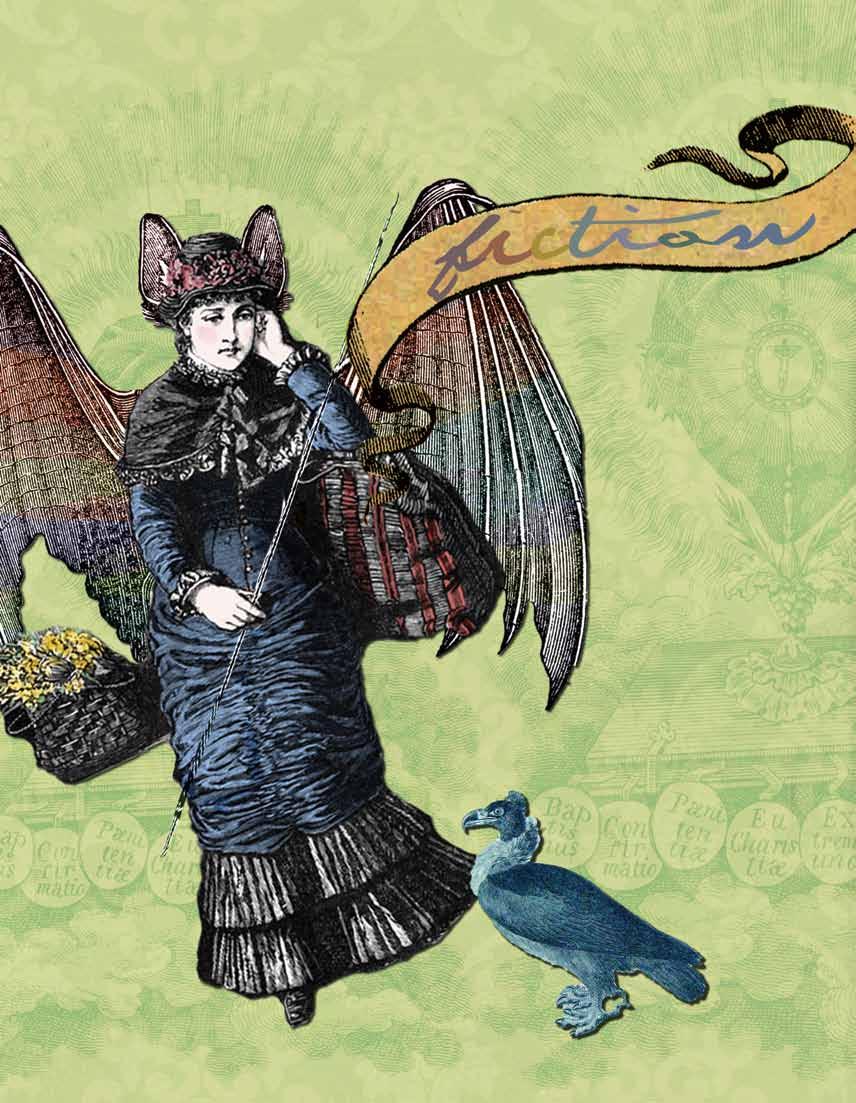
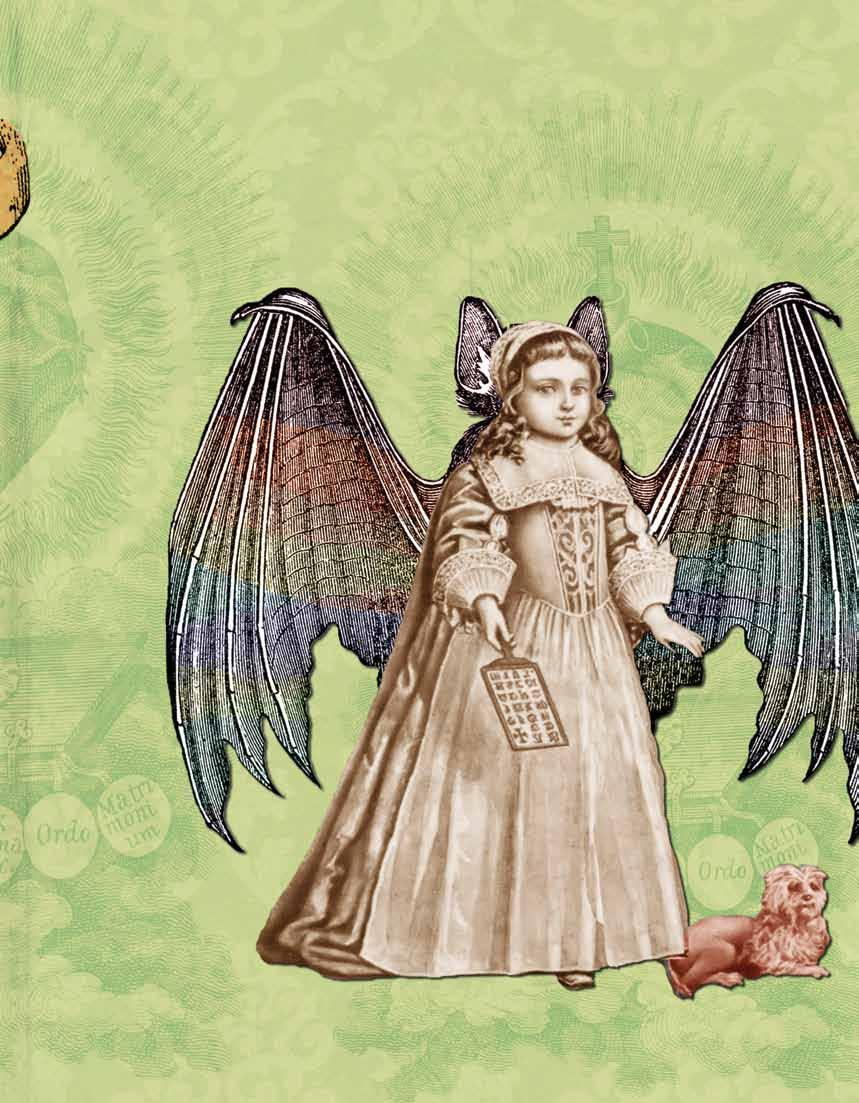
Fiction Fiction 50 51
Z’s mind had followed his body into numbness; conditioned responses and muscle memory alone gave the illusion that he was still conscious. His own thoughts sat cowering in a far corner of his mind, battered into retreat by what he had endured. How long has she been going? There was no way of knowing. He sat, indifferent to the passage of time, to the steady sweep of the clock’s hands that twisted seconds into minutes, and minutes to hours. Before him on the scarred wooden workbench sat a platter heaped with a variety of cakes, icings and berries, each artfully arranged, presented in bite sized portions, and completely untouched. He began to study the array, in an attempt to will his mind out of its forced atrophy, when something caught his attention. A sound? No, a word; several, in fact.
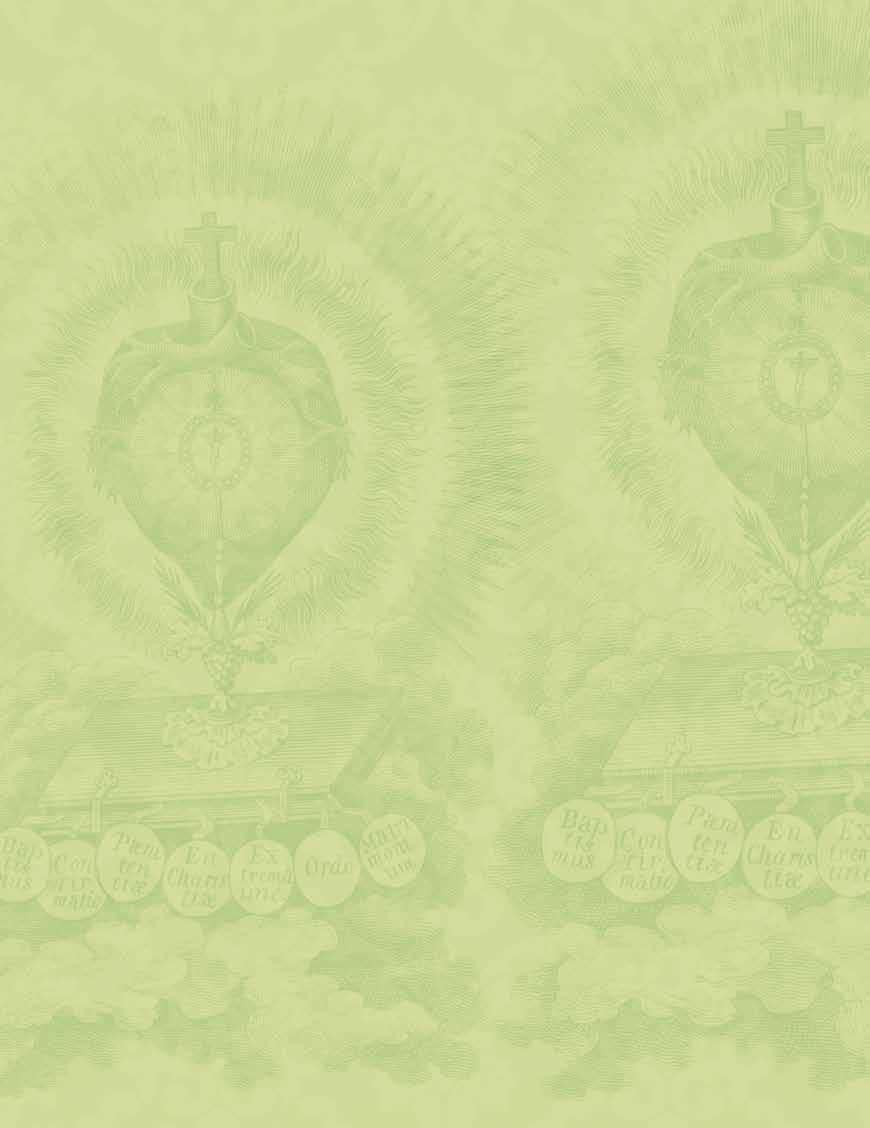
He had just been under siege from words- an unending litany of them- but these words were somehow different. The tone had changed. All at once his mind reawakened, and his attention shifted away from the platter, and to the young woman seated opposite him. She stared at Z with the expectancy of a child seeking praise from its parent, eyes wide and mouth slightly agape. His eyes darted back down and locked onto his notebook, desperately seeking some hint of what had just been said, of what he had willfully ignored. A blank page returned his gaze. Well, it’s not the first time I’ve been caught with my pants down.
“Ok,” Z drawled out, nodding in mock thoughtfulness, “that’s certainly something I can make happen. Are there any other thoughts that you’ve had on it?” This tactic had saved Z more times than he could recall. Cast a broad net over the conversation and attempt to snare any information that his short attention span, or his boredom, caused him to miss. The woman in front of him, now flushed with excitement, spoke.
“Oh, yes! I have it all planned out: the color scheme, the flowers, the top of the cake, everything!” She was all but bouncing in her seat, beaming with pride, and barely able to contain her enthusiasm. That’s one bullet dodged. Z realized that he had been holding his breath, and resisted the urge to let it out in a relieved sigh.

“Well, let’s start with the aesthetics, and then move on to the flavor and size. It sounds like you have the design pretty well set, but if you’re unsure as to what flavor you would like, feel free to start doing a little research.” With a smile, Z nodded toward the still untouched platter resting between them, but the over excited bride-to-be simply cast it a dismissive wave.
“Oh I already know what flavors I want. Ok, so, the colors: I want light blues, grays and silver to go along with the arctic theme.” An arctic theme, yes, that’s what it was! That word struck Z, in a way he could not clearly define. It excused all that she had said since the beginning of this meeting. Every intricate detail she had put forth like an impossible challenge, every question of his competence, and every skeptical remark about his— or anybody’s— ability to meet her lofty expectations of “pure elegance” was forgiven in Z’s mind. Just the unintentional arrogance of youth; I can’t begrudge her that. Sure, he had worked on winter themed weddings before, it was common enough, but this seemed different. It wasn’t simply winter based; it was arctic. The distinction, to Z, gave it a sense of creativity and refinement, an almost regal quality when compared to the mass produced, cookie-cutter themes that he was so often presented with. Z found he was leaning forward in anticipation, forearms resting on the worn butcher block top of his work bench and pen poised above his notepad, ready to capture every detail the bride-to-be would give. For the first time in longer than he could recall, Z viewed the job with something other than ambivalence— a feeling that has for so long now defined his life as a pastry chef. No, for this cake he was genuinely excited, and all for the
promise and potential contained in that one word: arctic. Z listened to the bride-to-be, now with a small notion of respect, and certainly with less distain than before. As if fueled by his newly awakened enthusiasm, she continued in almost breathless fits, mouth struggling to keep up with her thoughts.
“Three tiers, I think, or maybe four. I’d like three, but it needs to be enough for about 225 people, so maybe four would be better, but I don’t want a huge monster of a cake either. Remember: elegant.” As she said the word “elegant” a calm came over her for a brief moment, but was quickly replaced by an almost fevered bouncing, as if that quick moment of repression only served to intensify her enthusiasm. Despite his own growing excitement, however, that particular word only caused Z’s muscles to tense as he recalled again the start of this meeting.
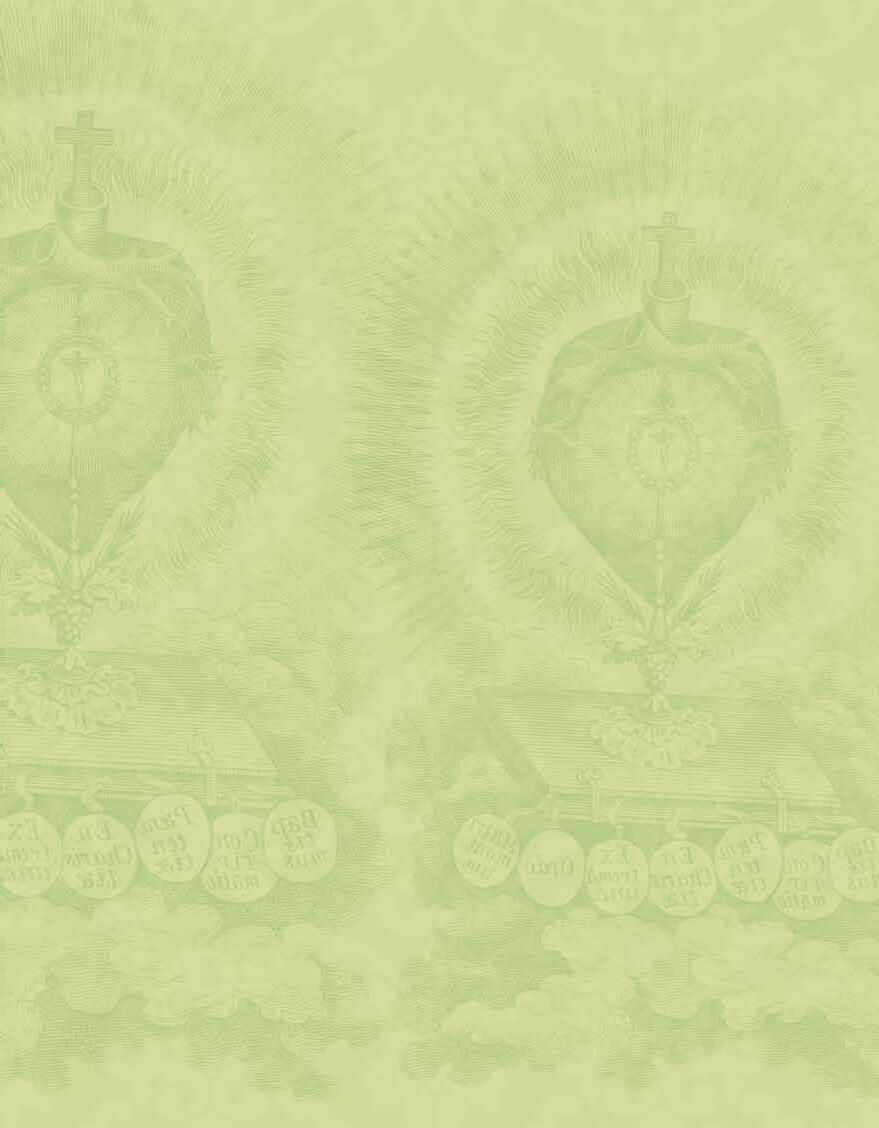
“No reason you can’t have a presentation cake exactly the size and look you want it, then another sheet cake or two on the side that are just for cutting in to. That is: tiered cake for show, sheet cakes for serving. Plenty of people go that route for larger weddings.” The words came out quicker than he wanted, despite his every attempt to remain professional. Z could feel the excitement coursing through his veins and dancing on the tip of every nerve in his body. God, this feeling, THIS is why I’ve held on for so long. This is why I just couldn’t walk away from it, even after all these years.
“Perfect! Ok, three tiers then….” As she spoke, Z recorded the details into his notebook, but paid no attention to the actual words he wrote. Over the years he had learned that, if need be, only a minimal amount of attention was needed in order to scribble notes on what someone was saying, leaving the rest of his mind free to pursue more interesting — or, in this case, creative — thoughts. Something sparked to life within Z, an artistic flame he thought long since extinguished, and he was more than happy to fuel that creative fire. Oh, he could almost picture the finished cake: the layers stacked and iced in a sweeping arc, built to look like a drift in the frozen tundra, and lightly dusted with donut sugar to accentuate the snowy presentation; pulled sugar flowers in vibrant royal blues and purples, brushed with silver dust, to give a frosted appearance, and placed in a sweeping cascade down the side; a cast sugar arch for the topper, clear and pure as ice, but natural in shape, as if it was chipped from —
“…holding fins. And can you do one in a wedding dress, too?” Shit, mind’s drifting again. For a second time, her words called back his fullest attention, then, for some reason, settled like a jagged stone in his stomach. What was that about fins? Glancing at his notes and reading the last two words he wrote, Z felt that stone turn to ice, sending a wave of piercing cold up his spine and blooming behind his eyes: Topper – penguins. “I- I’m sorry, could you repeat that please?” A deep anxiety washed over Z as he spoke.
“Oh, sorry, I’ll try to slow down.” She flashed a tooth-filled smile, then continued. “For the top of the cake, I want two penguin figurines standing and holding fins, and I was hoping one could have a wedding dress since the other will already look like it has a tux on. So a bride and a groom penguin: you can do that, right?” There was a certain smug entitlement in her voice that turned Z’s anxiety into a smoldering rage. All that he had built this cake up to be had collapsed in his mind, and the reawakened passion for his craft now felt like mockery. Penguins?! What the hell happened to elegant? The jaded, cynical part of his psyche was laughing. Bitter and humorless, ridiculing Z’s brief soiree with optimism. He took a deep breath and let it out slowly. Ok, maybe she’s not set in stone on this.
“Well, I could do that. The penguins that is, and the dress and all that, but I had a thought about something a bit different. Instead of those figures on top I could-” A raised hand and shaking head cut him off.
“Nope, I want the penguin figurines. I told you, I have it all planned out.” Or maybe she can go to hell. Confusion wrapped itself around Z as he tried to make sense of the situation, and why there was a burning rage building within him. Rationally, he knew there was no reason for him to be so upset, no logical reason whatsoever that could explain the feeling of betrayal and seething indignation that gripped him so tightly. Rationality and logic, however, had been drowned in an icy pit of cynicism, held below its surface by a pair of penguins. The bitter laughter rose again in his mind, this time like a tidal wave, crashing down cold and harsh over his senses. Even as she continued on, the voice Z heard was not hers. What made you think this
Fiction Fiction 52 53
spoiled brat princess and her special cake was worth getting all idealistic over? As if one decent cake could magically justify wasting over two decades of your life. Z’s head was throbbing, and his breaths came in shallow pants. He wanted to scream, to howl out his fury at the top of his lungs. Cold sweat prickled his skin. Muscles flexed involuntarily. Blood pressure transformed his heart into a war drum, beating the pace for a frenzied charge that his body begged to follow. His face, however, remained placid. He wore a mask of learned docility, a mask that a slave shows their owner. No anger in his expression, no resistance or opposition, just submissive compliance.
This had long since become reflex to Z. In his earliest days as an apprentice, he discovered the executive chef would push his or her crew to the brink of exhaustion, and woe to anyone that pushed back. Resistance usually meant replacement, for “not being a team player”, or for having an “attitude problem.” Often times, being fired from one kitchen also meant being blacklisted from several others, as small and incestuous as the industry tended to be. Later, when Z himself was the executive chef, he swore he would not become one of the monsters of his past. That is, until the company owners began pressuring him for better results: increase sales, increase the variety of cakes and pastries offered, but lower the labor and food costs at the same time. Push your crew; get them moving; “That’s what they’re there for.” Drop anyone that’s dead weight; replace them with interns. As with his earliest kitchen experiences, all Z could do was nod and comply with the owner’s every demand. Even when Z finally opened his own shop, the illusion of freedom was short lived, as it was not long before he learned to cater to the whim of each and every person that walked through his door.
His customers then owned him, and they demanded nothing short of perfection. They showed their thanks a few dollars at a time, and their dissatisfaction with vocal protests and boycotts. “You never lose just one customer,” his mentor once warned, “you lose everyone that listens to them, too.”

Though Z had sold his shop several years ago, he stayed on as a silent partner and occasional consultant for the new owners. Between that and his garage, which had been equipped and set up for small-scale catering, he kept his hands in the world of baking. And now, sitting before him, was yet another person intent on binding those hands. He wanted to shout at her, to spit his protest in her face and the face of every other captor that had come before her. But he didn’t. He never did. In the end, Z always reminded himself, he is bound by his own volition. No one forced him into this business, and no one forced him to stay. Plenty of people had abused him, sure, but he always came back for more, all on his own. After the bride-to-be had left, Z sat at his old wooden workbench staring down at the notes he had taken and the deposit check that she had written him. Drained and nauseous from so many repressed emotions, his mind was lost to his memories. Thoughts of past bosses, chefs, and mentors, of highs and lows of his career, and of all the little moments in between each drifted in and out of his consciousness in a random procession: the first wedding cake he ever decorated, with its plain white icing and simple scroll work; his mentor, gathering the crew before service began each night with a single loud clap, and her rallying cry of “Let’s make it happen!”; catering a charity dinner with two former presidents in attendance, and the pressure of working under the constant watch of the Secret Service. On it went, memory after memory. After close to an hour, he stood, legs aching and body stiff from inactivity. He looked down once again at the notes and, lifting the pages off the table, slowly crumpled them all into a tight ball and dropped them into the trash. He would wait until after the wedding to deposit the check, until after the cake had been delivered and seen by all. The cake; stacked and iced in a sweeping arc, to look like a drift in the frozen tundra, with silver-dusted flowers of vibrant blues and violets adorning its sides. And on top, a cast sugar arch, clear and pure as ice but natural in shape, as if it was chipped from the side of a glacier.
Dad poked at them with the rake. He said they won’t come down and they smell and they won’t come down. They do smell. Like old fruit. I can smell them from the house. I tried to sleep. I could not. The tree tapped at my window and I couldn’t sleep. They looked at me like birds. Birds that never flap.Little floating girls in the lawn. Above the lawn, rather. What the hell, dad said.
So the police came with their long-handled nets. They swung, the girls moved. They swung, the girls moved. The sky was water and they were fish. After a few hours the police left. Grumbling.
I hadn’t slept for four days when I finally stepped out of the door and onto the grass. My flashlight brought their faces out from the darkness. They looked at me. I asked who they were. They said they were girls, but no longer.
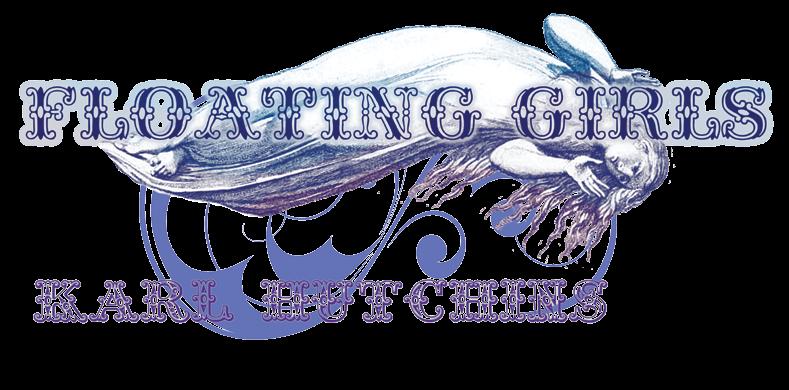
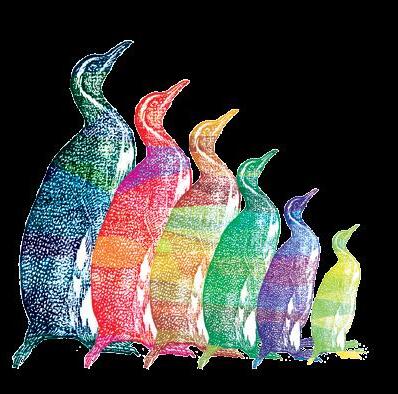
The small one wept and kissed me. She said she was sorry. When I asked what for only stars remained in the sky.

Two weeks later dad was a statue in bed and a balloon in the yard. The police came with their nets. They swung, Dad moved.
He smells like coffee.
I haven’t slept in years.
Fiction Fiction 54 55
So what’s under your robes?” I asked, genuinely curious, sitting Indian style like an eager child.


Death looked down at his dark, dirty rags.
“I’d rather you didn’t know,” he said in a smooth voice. I stood up.
“Man, this is all I get? Like, this bites, dude. Isn’t heaven supposed to be cool and stuff? ‘Cause this totally bites.”
“You’re not in heaven.”
“Oh yeah.”
Damn.
I looked down at my floating shoelaces. They looked like thin little snakes staring up at me. They were kind of amusing, really. I mean, as amusing as it’s going to get around here. There’s a kajillion miles of dry dirt under me. A flat, gray landscape with a flatter, grayer sky. Limbo.
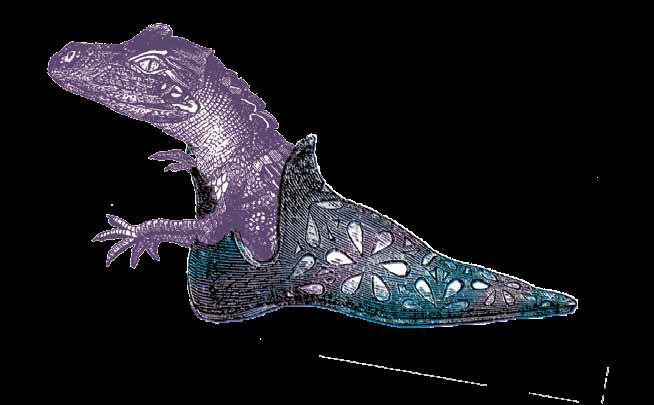
Fuck.
“So what do you usually do anyway?” I asked, looking back at death.
“What do you mean?” he said.
“Like, for fun, man. What do you do for fun?”
“I ferry spirits into the afterlife.”
“No, man, that’s work. What do you do for fun? You know, like: ‘all work and no play make death a dull boy.’”
“I am dull.”
Yeah you are.
“Nah, man, I just think you take this whole death thing too seriously. Ever think about like throwing on a Hawaiian shirt and going to Vegas?”
“Sometimes.”
I looked at him, slightly terrified at the thought of death wearing a colorful shirt, playing blackjack, and picking up hookers.
“Really?” I asked.
“No,” he said. Fuck you.
“See, right there. That wasn’t dull. In fact, that was sarcasm, my friend.”
“So?”
“What do you mean, ‘so?’ You’re supposed to be gloomy death, no personality, no sense of humor, and definitely no skin, man.”
I gestured my hand slowly at the pale and ancient complexion that sat above his ragged, black robe. He had one of those weird curly hair-dos from before style was invented. Sort of reminded me of a decrepit Shakespeare, actually.
“A lot of popular beliefs about death are misconceptions, like the fatality of President Kennedy,” he said.
“The assassination,” I said.
“Suicide.”
“What?”
“In truth, I’m probably not much older than you. When were you born?”
Suicide?!
“Ninety one.”
“Ah, see, I was born in seventeen forty six. Two hundred and forty five years; not much of a difference, really.”
I’d believe the fucking magic bullet story before suicide. Suicide?! What the hell is that?
“Uh, no dude, twenty five ninety one. Seven hundred and forty five years. But close.”
“Twenty five? Good lord, has it really been so long?”
“Yeah man, get an effing watch.”
“Time certainly does pass with fervor, doesn’t it?” Death said quietly.
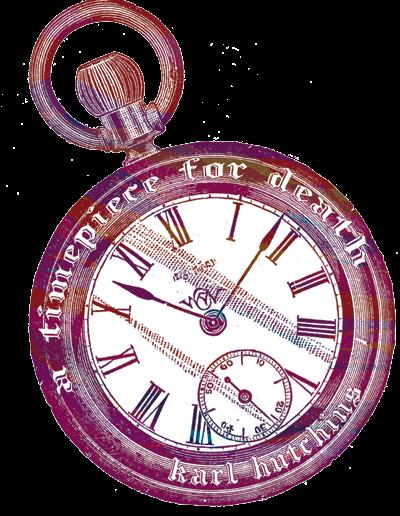
“Yeah,” I said.
I kicked at the terrible, dusty earth beneath me. Death looked kind of sad.
Fiction 56
The police sirens echo in my ears like the screams of a dying banshee.
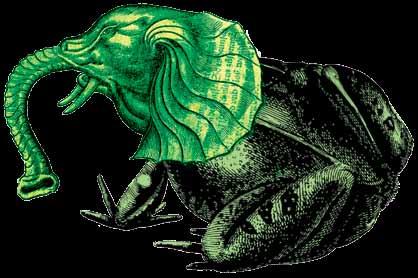
Over the noise, I can hear the rasping of walkie-talkies, CB radios. Twenty feet to my right, over fifty-six M-16 semiautomatic SWAT weapons point in my direction, their stocks clutched by clammy-palmed policemen with narrowed eyes and even narrower minds.
In my right hand, I can feel the irritatingly swollen rubber handle of my homemade AR-15 multifrequency dead man’s radio detonator. In my left, I feel Jill’s soft, warm skin, her upper arm bare and silken to the touch underneath my calloused fingertips.
My cell phone is vibrating in my pocket, but for the moment, I ignore it. My mind is too full right now for a conversation. My mind has been too full lately for much of anything.

Jill tilts her adorable, almond-shaped, blue eyes up to me and even in the angry shriek of the sirens, I can make out every syllable spelled by her soft, full lips.
“When are they going to shoot?” she whispers.
“I have no idea,” I whisper back.
The red and blue lights flash in Jill’s gorgeous eyes, and from the right side of the police barricade, three fully armored SWAT police hurry to the left, their shining black bulk ducked low behind parked police vehicles and abandoned civilian cars. My phone is still ringing in my pocket as I finally tear my eyes away from Jill’s long enough to peer about the street.
Copley Square is a mess. To my right, beyond the police barricade, the street has becoming a smoking, mouldering ruin, several small vehicles having collided with a large box truck, the sides of which loudly declare it to be the properties of “Teniko, Inc.”
To the front of me is the sprawling, open square, the bricks below my feet offsetting the perfectly symmetrical park benches planted every few feet between small, manicured trees, and even as I watch, another screaming, hellish police vehicle pulls up onto the curb. Its grill devours a small bush, and it’s a lucky coincidence the idiot doesn’t drive straight into the fountain. As I watch, a policeman in a flak jacket and gray spats cranks the door open and points his gun out from behind it. His helmet is slung low over his eyes, and he has to reach up to fix it.
It almost makes me giggle.
Beyond him, the Boston city library sprawls in all its grandeur, the grey stone an impenetrable wall of might, proof the lengths man will go to protect information. In another day and age, I spent many days within its halls, learning little and never picturing myself strapped to blast in the public park next door. My cell phone is still ringing, and Jill looks at it for a moment, then looks back up to me. Her perfectly manicured left hand reaches up to my chin and strokes it softly for a moment, but she makes no movement to answer the buzzing. It’s not time yet.
More police cars pull up to my left, blocking my view of the pavement beyond, but I let my eyes roam up the impossibly tall John Hancock building jutting from the street behind them as Jill’s soft fingers caress the blackened stubble on my chin. The sun flashes from behind the building, and it takes my eyes a moment to adjust to its brilliance. It’s easy to forget, on a day like this, that it is, after all, a wonderful day to be in Boston.
The wind plays against Jill’s hair as she looks up at me, and for a moment, we look at each other, lost in time. Then we hear what we’ve been irrevocably waiting for: behind us, there is a long, drawn sliding, a sound of a steel bolt being drawn.
The church is locked.
My phone has stopped ringing, but I reach into my pocket and pull it out. All around me, I can hear orders and yells of alarm, but I don’t care. There are times in life when you need to believe in what God tells you. And if God wants me to stop, one of these police, these lawmen, protectors of the peace, will shoot me now, and so be it.

No one shoots.
I slide the phone in front of my eyes, and look at the last number. It’s a six-one-seven area code. A Boston local. I look down at Jill as I finally unwrap my arm from her slim shoulders, and tilt my head.
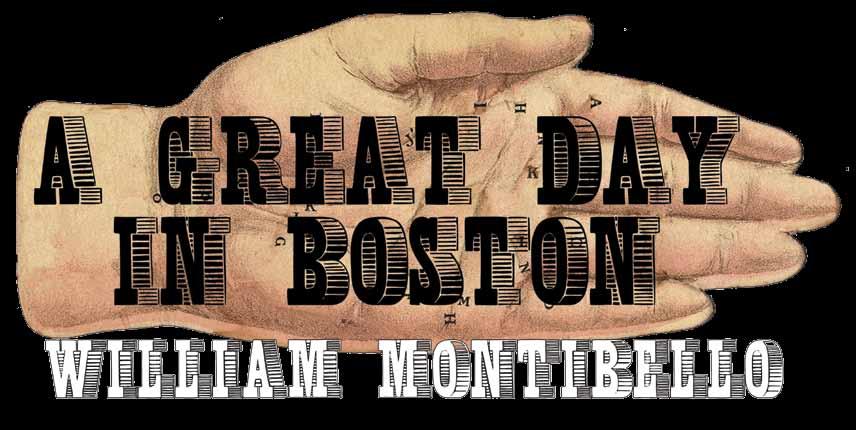
“Still happy to be with me?” I ask her as the wind blows around us.
“Always,” she whispers, as she raises her lips to mine.
I close my eyes, and there’s nothing but her lips, nothing but the toxic taste of her cherry-red lipstick, the feel of her hair on my neck as the wind carries it over my shoulder. Nothing but her soft, supple body pressed against mine like liquid fire, like kerosene under a dancing flame. The phone rings again, and I answer it.
“Hello, this is Bill Dunhelm of the Boston police department,” he says. Or maybe he doesn’t. He only makes it to “Bill” Before I’m talking. And as soon as I start, he stops. Police training. It never gets old.
“Hello, Bill,” I say as calmly as I can. “There’s something you need to know. In my right hand is a multi-frequency detonator. Do you know what that means, Bill?”
Bill tries to speak, but before he can, I’m talking again. I don’t talk fast; I talk slow. I talk clear. I make sure he hears every word.
“It means that this device has a button, Bill. It has a button, and when I push that button, bad things happen. They happen to nouns. You know what a noun is, Bill?”
Bill says yes. Or maybe he doesn’t. It’s hard to tell, because before he answers, I’m talking again.
“A noun is a person, place, or thing, Bill,” I state calmly. “Now, you might ask yourself some
Fiction Fiction 58 59
questions, Bill; you seem pretty smart, so I’ll bet you already have.”
I scan the police barricade as I talk, trying to see if I can find a man on a cell phone, but it’s like trying to find Waldo. Everyone is on something. I keep my eyes searching, and my jacket creaks as I raise my detonator hand above my head. I can practically hear the muscles tense as I do, but again, no one shoots.
“You’ve asked yourself: ‘Why don’t we just shoot this man?’ Am I right, Bill?” I quip. “You’ve asked yourself: ‘Why don’t I just shoot the detonator out of his hand?’ Right?” I continue before he can answer. Bill is silent with me on the phone, and I can hear someone in the background of the call talking, relaying orders. I give him some time to speak, but he doesn’t. Good old Bill.
“Well, Bill,” I continue lightly, “I’m going to explain it to you. And when I’m done, me and you are gonna be friends. We’ll eat together, we’ll drink together, and by the time this is done, Maybe we’ll be standing somewhere nicer, somewhere with a bit more sun, and a little less wind.”
Bill says the first word I can be sure he’s ever said to me. “Maybe.”
I laugh, and beside me, Jill smiles, her arms wrapped around my chest, her head resting on my shoulder. That soft, sweet mane of hair lies across my chest, and I can smell the lilac of her morning shampoo.
It’s like breathing heaven.
“You won’t shoot me because this detonator is fitted with a dead man’s switch, Bill,” I say to my cell phone, “which, if you watch C.S.I., you know it means; if I let go, the explosive I’ve placed somewhere in this city is going to blow. So if I die and drop it, or get hurt and drop it, there’ll be consequences. Consequences a negotiator like yourself doesn’t really want to be part of. Do you understand?”
“I get it,” Bill says calmly. “May I ask a question?”
“Ask away, Bill,” I answer.
“Who is that woman? Is she a hostage?”
“This woman?” I answer, waving my detonator hand to indicate Jill. “She’s no one.”
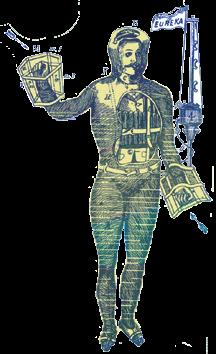
“But-” Bill begins, but I’m off and talking again.
“Another reason you won’t shoot me: most frequency detonators work like this, Bill. You make a detonator, and then you set an explosive with the ability to accept a signal, by tying it into a computer, or cell phone. Maybe even a stripped motherboard. Then you press the button, and the signal gets sent, and the explosive explodes. Simple stuff, right?”
Bill makes a noise like a car being put into the wrong gear, which I take as an affirmative.
“This detonator, though,” I say, and raise my arm again, “this one functions in reverse. It is currently sending a signal right now. It is, in fact, sending exactly thirty-four signals, right now. To thirty-four different locations within the city. Each location hosts a bomb capable of leveling a two-story building. Can you guess how many buttons are on this detonator, Bill?”
Bill is being very quiet all of a sudden, and over the phone I can hear tense whisperings. My ears have always been very sharp, and behind the sound of muttering, I distinctly hear the word “Jam”. This doesn’t bode well, so I intervene again.
“Oh, no, Bill. You most certainly wouldn’t want to do that.”
Bill is back on the phone then, and with a voice that sounds like he’s just about ready to punch me in the face, he says, “Do what?”
“Attempt to cut off the signals or hack them,” I say calmly. “Because the second that a signal disappears, the bomb explodes. That’s how this detonator works, Bill. It is currently sending out thirty-four signals. Constant, steady signals. The second I enter the number of one of these bombs into the detonator, the signal cuts out, and the bomb explodes. If you attempt to detect and modify the signals, they will change, and the bombs will explode. If you shoot me, or the
detonator, the signals will ALL cut off, and the bombs will ALL explode. Do you understand?”
There is nothing but silence on my cell phone, and Jill’s arm wraps more snugly around my waist as the wind tugs my jacket tight against my chest.
“Do you understand, Bill?” I repeat.
“Why are you doing this?” Bill says. His voice sounds rough, desperate, like a boy going through puberty. It hits me then: I haven’t heard any wind in his phone. He’s not outside.
“Come out of your perch and ask me again, Bill,” I state calmly. “I will call you back in a few moments.”
“Wait,” Bill asks desperately. “Who are you?”
I consider that for a moment, my eyes searching the cloudless blue sky above the Boston public library. Above the peaks of the stone, a large flock of pigeons rise and fly as one towards the back of the building, and out of sight towards the gleaming sun.
“I am every soldier who should have come home,” I finally say. “I am every missile that ever streaked over South Korea. I am ten thousand Buddhist priests slaughtered and tortured in the streets of Burma. The African child on midnight infomercials you ignored to buy a television. I am your wife. I am your children. I am you.”
I hang up the phone.
It immediately rings, but I ignore it. Jill moves her hand up to my chin again, and tilts my face to hers. I search her eyes, and in my heart, I can feel the tug of something, more than just the cardiovascular clench of muscle that pushes the blood through my veins. I can feel doubt.
“Am I still doing the right thing?” I whisper. She looks up at me, and for a moment I feel a thrill of fear as she considers me, her hand playing loosely in my hair. Then, she slides that adorable head past my eyes and to my ears, and whispers just for me: “I believe in you.”
I shudder in the wind and wrap my hands around her supple waist. In my left, the phone vibrates, but I ignore. It. My eyes check my right wrist, and on the detonator, a digital clock tells me the time in lime green.

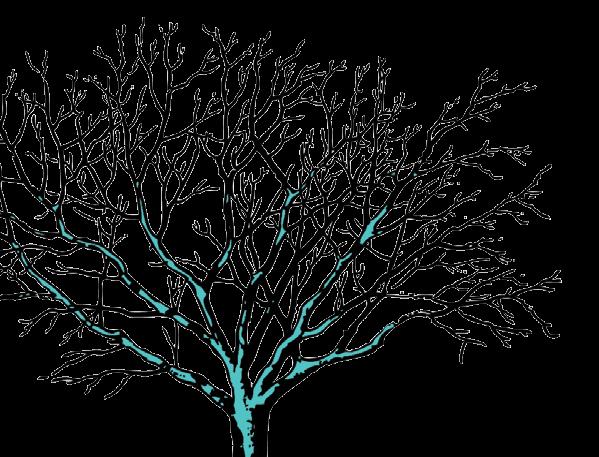


It’s 11:29. I turn Jill so that she’s in front of me, facing the police, and set my back firmly upon the glorious Trinity Church. Jill looks towards the police with what I can only guess is a mixture of distrust, loathing, and defiance. I look only at my wrist, as the clock turns to 11:30.
“There is no chance,” I whisper to myself. “There is only fate.”
I reach my hand to the detonator, and I push a button.
Behind me, the central, largest tower of the Trinity Church turns into a storm of hellfire and flying mortar as fifteen pounds of liquid c-4
Fiction Fiction 60 61
explosive turn what was once a beautiful mosaic of red and brown bricks into a mess of airborne concrete and roof tiling.
All around us, pieces of flaming everything are sailing through the air like rain flung from the pits of hell as we clench each other close underneath the shadow of this suddenly born and dying star. I can feel the heat flash across the broadness of my back. Underneath the heavy leather jacket, it feels as though someone suddenly shoved my naked body into a deep fryer.
I can hear the sounds of breaking glass and human agony all around me, and it’s with a heart filled with my own sort of agony that I pray the police did their job correctly and emptied the church before I detonated it. To my right I hear the sounds of the windows of the John Hancock building shattering from the third story and down, as they are hit by bricks and molten metal.
The police are screaming and yelling, and I hear more than one gunshot as the insanity drowns the square, but I feel no pain, no impact. I tilt my head and look up to God, and pray for it to be finished. But no one shoots.
I keep my eyes closed, giving God his chance. If he wants, he can smite me here. A piece of debris can take off my head. A policeman can accidentally fire a shot into my cranium, ending what the news will call tomorrow a psychotic rampage, a crazed assault.
After a few minutes, I realize there’s no point in hoping, and I open my eyes.
All around me, cars are either smashed to bits, on fire, or both. A few policemen appear to be down, either struck by misfires or debris, and it’s almost absurd to me that in that moment, my cell phone is still and silent.
I stand up straight and peer about the square. In front of me, the policeman who wore his helmet too low is on the ground, a charred hole burned through the right side of his body armor, near the shoulder. He looks at me, and I look back steadily, and though I can’t bring the words to my mouth, I feel the sorriest I have ever felt in my life.
I pick up my cell phone, press the recent calls button, and dial it in. Bill answers.
“WHAT THE HELL WAS THAT?” he screams, his voice almost inaudible. “WHO THE FUCK DO YOU THINK YOU ARE?”
“I told you who I am.” There is a tremor to my voice now. I’m glad to hear it. “Are you coming down, Bill?”
There is a guttural noise of rage over the phone, which is quickly smothered. For a moment, there is only a rasping, sliding noise, then the phone is dead. I look at it in my hand and hang it up. It buzzes instantly, and I pick it up again.
“This is lieutenant Karl Davis of the Boston Police department. Bill is getting into uniform, then he is coming right down.”
“Is he now?” I say quietly. “Tell him to bring a gun.”
The man makes a sound of disbelief, and then he’s gone, closed, and in my pocket. I look down at Jill and see that she’s looking at the downed detective who came with his helmet too low. He’s lying in a pile of rubble in front of his car, his arm stretched towards a small, silver pistol. It lies decadently on the Copley grass, fantastically out of place. My eyes reach his and find nothing but vacancy. He’s dead.
I turn Jill’s beautiful face to my chest, and press her against me. “I’m sorry,” I mutter. “I’m so sorry.”
“Bound to happen,” she whispers into my chest. “Inevitable.”
“Nothing is inevitable,” I say to the top of her head. “We all make our own beds.”
Most of the police are back up now, leaning over what’s left of their cars. Many of them are dragging other policemen back over the lines and behind cover, their guns pointed absurdly at me as they attempt to handle dead weight one handed. I wish I could help them.
Then I remember that it’s not about the small picture. In the distance, I can hear more sirens. The fire department is on its way. Jill looks over my shoulder toward the church, and I look down at my clock. It’s only been fifteen minutes since the first detonation. Bill is probably being fitted with body armor right now, his chest quivering with suppressed rage and indignation. It’s easy to put myself in his shoes, easy to understand his point of view. Never before has he had to deal with someone like me, I am sure. In fact, I am more than sure.

The pigeon flock sweeps past the shining upper windows of the John Hancock building and head for the top of the library again, their wings working double time to get them home. I watch them with a sad sort of longing for a moment, and then turn my eyes back to the street.
My cell phone rings, and I pull it from my pocket. It’s Bill. I pick it up.
“I’m on my way down,” he says. He seems much calmer now, more reserved. “Do you mind explaining why you did that?”
I turn and walk Jill towards the steps of the Trinity Church and take a seat on the lowest step. Jill slides in next to me, her eyes red, and leans her lovely head against right shoulder. I hold the phone against my own head and take a breath.
“I was twelve when my brother came home, Bill,” I say clearly into the receiver. “Twelve, when he finally came back. At the time, the war had just barely begun. It was only a few months after the attack, and most of America was clamoring for the death of the Taliban, Afghanistan, Osama bin Laden, Iraq, Hussein, and every person in the Middle East.
Everyone wanted blood. Even I wanted blood, Bill. I was twelve.”
I take a deep breath and look at Jill. She’s looking off towards the square, but I’m not insulted. She’s heard all this before.

“At the time,” I continue, “the war was being broadcast on television in only winning colors. When we lost a soldier, we reported how many more we took out; when we lost a battle, we reported how many more we’d won. But it was never enough. The American public was screaming not for a won war, not for a successful mission, but for an all-out extermination.”
“What’s your point?” Bill says brusquely over the phone. “What does this have to do with-”
“The way I see it,” I interrupt, “that was about the point that the terrorist organizations decided they had to go for grand effect. Killing us wasn’t enough. Spreading fear wasn’t enough. They had to make their point. They had to show us that if we messed with them, they would mess with us.”
I take a moment and breathe, and then I speak again. “I can almost see it in my mind as clearly as the day I first saw it, Bill. I was sitting in the living room, watching some sort of kid’s TV show, and there was a knock at the door. My mother, she was in the kitchen. She was making me some dinner, some Spaghetti-Os or something. Something childish. She went to answer the door.”
Around me, small, guttering fires crackle as I hold the phone to my ear, and I stare deep into one for a moment, hoping it can burn me to death, hoping the wind will blow it right on over and set me aflame, boots and all. But it doesn’t.
“There was a man at the door,” I say to the phone. “He was in full Marine uniform, and I don’t remember a word he said. Not a word, but he handed my mother a package, and he walked away. My mother went into her room, and she cried for a full hour. I remember that, because I was bugging her for dinner, and she wouldn’t come out.”
“I’m sorry for your loss, but that doesn’t mean you can just destroy the world,” Bill says forcefully. “If you release the bombs and the girl I can get you a deal —”
“I looked, Bill,” I interrupt. “She was in the room by herself, and after an hour I was too hungry, and I couldn’t take it anymore. I opened her door, and I looked. My mother wasn’t there. I could hear the shower
Fiction Fiction 62 63
running, and my mother wasn’t in the room. But the TV was on, playing a tape I had never seen before. On the ground was the package the Marine left my mother, an empty box, the kind you’d put a VHS tape in, and on the TV, over and over again, I could see these men. I could see them cutting into my brother, cutting off his arms. Then his legs. Then his eyes. Then his head. They cut and cut and cut until there was nothing left, then they screamed at the camera, and it would start again. And again. And again.”
My voice is shaking, and Jill hugs me tight against her. The smell of lilac calms me a little, but I’m driven now. I have to say this. I have to get this all out.
“I went into the bathroom, and my mother was lying in the bathtub, dead. The water was running out, all over the floor, and there was a note in it, soaked through. There wasn’t a mark on her. There wasn’t anything but her. Her and the water. Just us, and my brother screaming in the next room. Screaming and screaming and screaming.”
Tears are running down my face now, and I hang my head against Jill. In front of me, the crowd slides apart a bit, and I can see a man, his face haggard and grim, his eyes set on me. He parts his way through two armored SWAT men, and walks towards me, his left hand held out in a peaceful gesture, his right hand on his cell phone, held to his ear.
He is older than I expected, his hair a light red in a messy tussle on top of his head. He has a thin moustache, and seems to be about average height. Around his middle he has a little extra weight, weight maybe he’d like to lose, maybe he’d like to keep. I wouldn’t know. He takes the phone, and puts it in his pocket, and I do the same.
I look up at him. “Bill?”
He nods grimly, and steps toward me, both his hands held up in the air. I can see a gun strapped to his waist, a small pistol of some sort. Good.
I stand, and hold out my detonator arm for him to see. On it, the clock displays 12:15.
“Bill, do you see this?” I say as I hold it out. He looks at it, and his eyes harden instantly, but he nods. “That’s good,” I say. “Very good.”

Beside me, Jill reaches into her pocket and pulls out a pack of cigarettes. She puts one between her luscious lips and looks at me. I smile, and reaching into my pocket, pull out a small silver lighter. She lights it, then gives it back.
“She’s not allowed to smoke unless I say so,” I say to Bill.
He nods like this is the most normal thing in the world, on the most normal day, then says roughly to me:
“You said you’d tell me why you’re doing this, if I came and asked.”
I nod, and look at the sky. “I did.”
He says nothing, but waits, and Jill blows out a breath full of nicotine beside me, and I smell the delicious smell of tar and burning leaves.
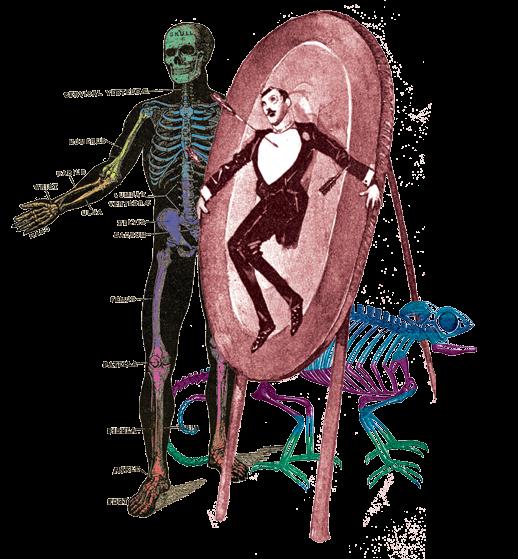
“I’m doing this because no one did anything,” I say to Bill. His face becomes inscrutable instantly, confused. He looks about to ask a question, but before he does, I continue.
“No one did anything when my brother got his limbs cut off. No one did anything when my mother overdosed on pills in the bottom of a bathtub. No one did anything when Osama bin Laden destroyed two buildings and over two thousand lives. No one did anything when gays were oppressed, Jews were slaughtered, and American civilians were murdered for being alive.”
“No one could stop those things!” Bill yells, his right hand on his gun. “It’s no one else’s fault!”
“No, Bill.” I reply. “There is never an action without reaction. Never an action that isn’t caused by action or lack thereof. Even not doing something is making the choice to do nothing.”
Bill pants, and I take a deep breath, and point towards the detonator affixed to my wrist.
“This detonator also boasts one more feature.” I say wearily. “Should I NOT enter a code within every hour after I entered the first, and therefore detonate a bomb MYSELF, it will detonate one bomb at random, until I enter the shutoff code.”
Bill’s eyes bulge in the light now breaking behind the John Hancock, and I feel sorrier for him than I have all night.
“That means we have fifteen minutes until the next explosion,” I say, “and then an hour to the next.”
“Just shut it off!” Bill yells. He gestures towards the police officers. “Just shut it off, and come with me! We can talk this over! We can get you what you want!”
“I want every man who died in Iraq,” I say clearly. “I want every child and woman burned and murdered in every city in the last eight years. I want every dictator in the world brought to justice, a fair system in place in every country ruled by a military cabinet. I want the world to change. I want the world to TRY.” Bill is gaping at me now, he looks like a fish caught out of water, and Jill turns to me, and points at the clock.
It’s 12:29.
“This is my bed, Jill,” I mutter to her. “Still love me enough to lie in it with me?”

“Always,” she whispers, and kisses my chin. “Think he’ll shoot?”
I look over at Bill. His hand is on his gun, his face is outraged, scandalized.
“I certainly hope so,” I whisper.
I reach over to my detonator, and push a button.
Fiction Fiction 64 65
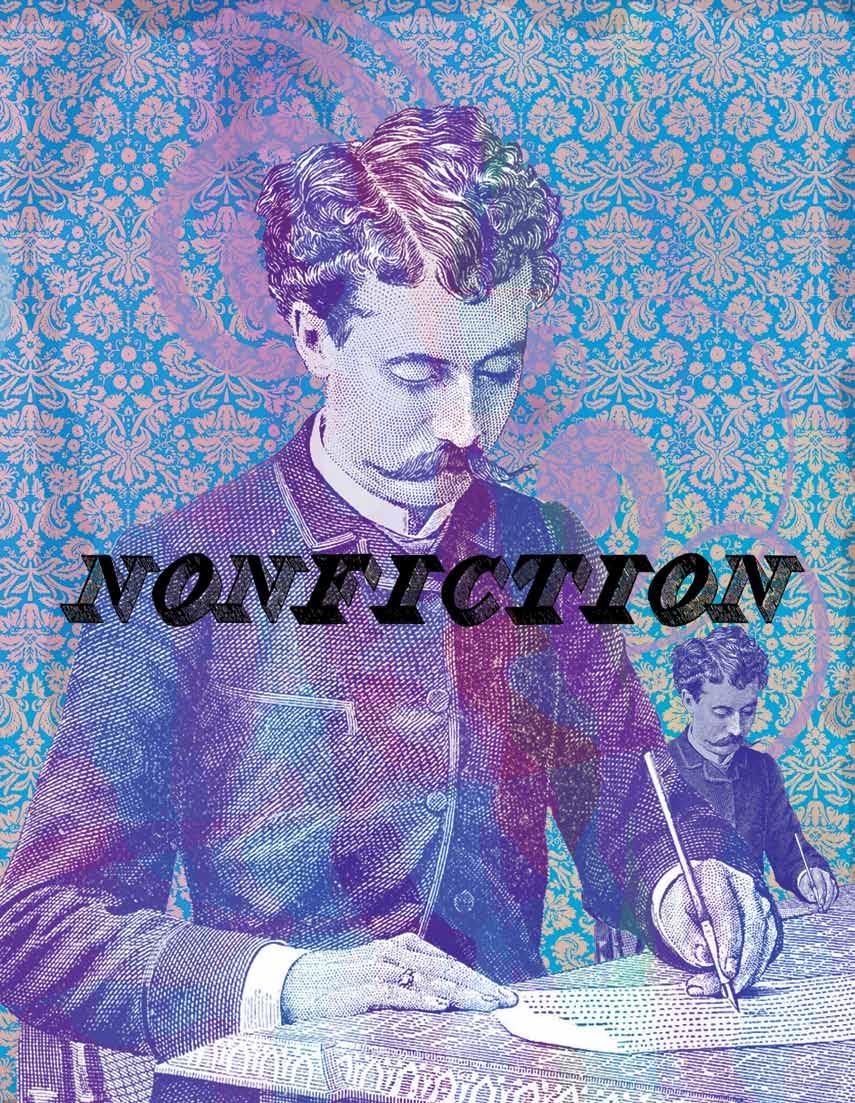

Michele Simon
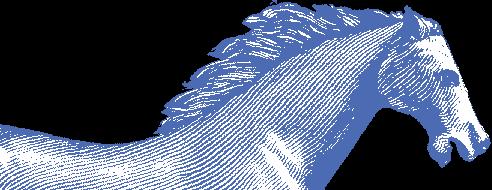
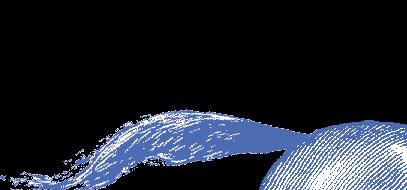

He was miffed that I hadn't brought him a treat. That's all I saw when I looked into his eyes. I expected something more, but I guess no one had told him he was about to die.
The wind rustled through the trees, breaking off a few golden leaves from the branches. They drifted to the ground, an early fall. I shivered against the chilly morning breeze, wanting to be warm in my bedroom, but I stood rooted to the earth unable to end our last visit.

I didn't know how to say goodbye to this horse that had been my inspiration. It was just by chance that I come to know this horse named Chance. When we met I had been looking for more meaning to my life. I had spent almost two decades working in factories and caring for my (much loved) special needs family, half of that time as a single parent. It had also been almost two decades since I sold my last horse. The demands of taking care of a family riddled with special needs didn't leave me much time for myself, let alone caring for and riding a horse. But after twenty years of tending to everyone else, I was looking for something more in my life. Horses had always been a big part of my childhood. The first book I remember reading was of a horse. My first drawing–a horse. When I was a teen I got a job in a barn caring for the horses in exchange for riding and lessons.
Even though I hadn't been around them for many years, horses had always been in my thoughts, on my calendars, stationary, desktop pictures and in the books I read. So when I decided to volunteer at a horse rescue it felt like returning home after a long journey. That's when I met Chance.
I opened his stall door to meet him that first day. He pranced to the door, head held high, black mane whisking around eyes full of curiosity and fire. He floated to a halt inches in front of us. Standing tall like a proud stallion, he arched his neck out toward me and placed his velvety muzzle in my hand.
“He broke his leg in a freak accident, a slip on the ice,” the barn manager said, pointing to his twisted, deformed leg. “His owner hadn't cared for him properly and his leg healed wrong, leaving him permanently disabled. The Rescue took him in.”
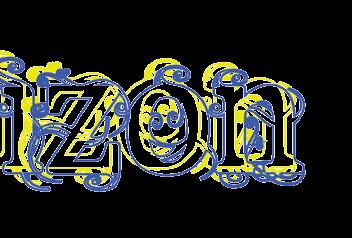
Chance, as if to say, “So what?” trotted out the back door of his stall and back in again, showing off. I marveled at his spirit and zest for life. He had been dealt a life changing, and for many horses, a life ending blow and not only survived but also came back with moxie–his intensity and spirit endured.
Horses are a symbol of spirituality for me. When I looked at Chance he was the image of the durability of a spirit and how it can still thrive and flourish even through the worst of times. I had been recently been going through some tough times in my life: lost jobs, lost home, and my kids were growing up and moving away. From that first day I met him, Chance became my inspiration to help me through it all.
I watched as he wandered away from me and slowly walked up the line of the fence, pausing every few steps to crib on the top board. Cribbing, also called wind sucking, is an addictive bad habit some horses get. While chewing on something they put their top teeth on the board and pull back, sucking in a gulp of air at the same time. Some people believe that cribbing is caused by boredom. A horse that is in a stall for a long time or in a dirt paddock has nothing else to do but chew on wood. Chance had a run-in paddock that ran the entire length of the 100 foot barn. During the day he could go in and out of his stall as he pleased. The grass had been chewed or ground down to the roots in the paddock though, so when visitors showed up, he would happily snatch up treats and handfuls of lush grass picked from the other side of the fence. Lately, he seemed to only nibble on the treats in between his cribbing.
Since Chance wasn't very interested in me right then, I took the time to pull out my camera and snap a few last pictures. He was too close to get a full body shot, so I decided to skirt through the barn to the other side of the paddock. On the way I grabbed a carrot and a few ginger snaps, a favorite treat. Hoping he wouldn't move from that side of the pasture, I walked briskly though the cool, dark barn and stepped out into the bright sunshine on the other side. I glanced up at the blazing sun and felt terrible looking at the gorgeous blue sky–it was a beautiful day.
I rounded the corner of the barn to the backside of the paddock. Chance hadn't noticed yet. He cribbed on the fence and paced back and forth along the fence line. I composed a full body shot of him in my camera. His jet black mane, tail, and legs blended into a blood-bay coat which glistened in the sunshine. He looked picture perfect, as he usually did, even without the camera. Warmbloods tended to look that way; they are the top choices for Dressage, Three-Day Eventing, and Olympic Eventers. Looking at him now I remembered he had been an Eventing Horse with loads of promise before his accident ended all that. I clicked the picture.
Chance stopped, turned his head toward me, and studied me for a long moment. I snapped a carrot in half. His ears perked forward and a spark flashed in his eyes. He

Creative Non-Fiction Creative Non-Fiction 68 69
soared into a long, graceful trot, gliding over the ground like he had wings, his mane and tail flying on the wind.
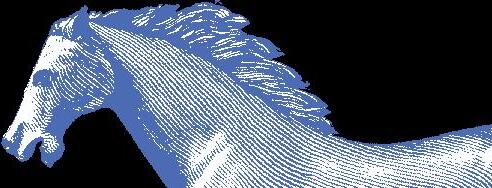

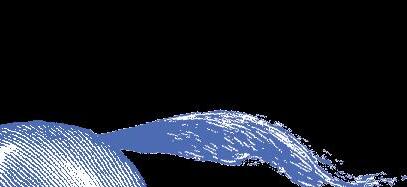

Every pounding footfall toward me was a breath taking heartbeat throbbing into the earth. My own heart pounded along, crying at the sight. It was hard to believe this was the last day I would see him–his last day on this earth.
He reached the fence and sailed up the ramp that headed to his stall door near the corner of the barn where I stood. He chomped down on the carrot I held out for him and snapped off a bite. While he chewed, I stroked the velvety soft fur on his forehead. I ran my hand down his muzzle avoiding the cut on his nose. It had re-opened and there was fresh blood on it. I looked down at the old gash on his leg. It had also re-opened.
I had been told that he had been suffering from seizures for a while. They were progressively worsening and he was getting hurt during the seizures. They happened so fast that we hardly ever saw them, and he never complained. The Rescue wanted to end his life peacefully and prevent him from suffering if he hurt himself severely during one of the seizures. He looked like a healthy horse, but very tired.
Chance started cribbing on the fence, popping it with his teeth so hard that it shook the whole fence line. I gave him another treat and bent down to take a picture of his face in the clouds and blue sky. Fascinated, he looked down at me like a new toy, giving me a cute pose for a picture, then snapped his jaw on the fence again. I decided to be the good photographer and waited, crouched in the long grass, watching for the perfect moments, clicking a volley of pictures in the interim.
Chance suddenly broke his routine chewing and stood stalk still, his ears perked forward, listening. I followed his gaze down to the back pasture, where two of his stable mates were galloping at full speed in their lush, green pasture.
It gave me goose bumps to watch their jubilant flight, taking me back to the first time I galloped a horse through a meadow. I was about seventeen years old. I had been riding for years, practicing hard in the riding ring. Stephanie, a friend that I worked with at the barn, talked me into going on an all-day picnic trail ride. We had traversed miles of wooded trails when the path emptied into an enormous green meadow. Stephanie whooped and urged her horse into an all out run. Scared and thrilled at the same time, I let my horse have her head and she joyously bolted into a gallop, ripping through the field, going faster and faster with every step. My heart pounded, echoing her hoof beats. I could feel the power of her muscles rippling beneath me. The wind whipped through my hair.
This is what it feels like to fly, I thought, gazing into the gorgeous blue sky. It felt like I had left the world as I knew it and become a corporeal part of nature. All the problems of life were left behind and everything was right, as it should be. Smiling inside at the memory, I looked back at Chance. His face had dropped into the saddest expression I had ever seen on a horse. I’ve been around many horses and horse people and know that sometimes people like to read their own feelings into what they think a horse is feeling. This was not one of those times. His facial features had made a drastic change. His mouth had drooped, his bottom lip hanging and quivering slightly. His eyes were sunken and looked horribly pained, still watching the horses down field. At that moment I understood just how he felt. He wanted to run in the lush, green grass, to feel the wind in his mane, to feel the power and joy of life. He wanted to be free. I took a few more photos. Chance walked away from me and down to the other side of the paddock, so I went back into the barn. I looked at the empty stalls as I passed them. I was glad their occupants were out enjoying a beautiful day instead of being shut up inside the shady barn. I lingered inside the barn, stopping by Chance’s stall to look at the notes and pictures that hung on his door. One was an old newspaper clipping of a teenage volunteer standing beside him, another of a mom and daughter hugging him–Chance had touched so many lives while he was here. I took a deep breath, picked up another handful of treats, and went back outside.
He was waiting by the corner of the barn, like he knew I would be there. I gave the treats to him and hugged him.
“Goodbye, Chance,” I said, trying not to cry.
I left him there standing in the sunshine.
I have a photo hanging on my wall of a horse's silhouette galloping across a field with a blazing sunset behind him. When I look at it I think of him. That's the way I will always remember him, his spirit blazing into the horizon.
He had been my inspiration helping me through the worst of times, but now I had to let him go and set him free.
Creative Non-Fiction Creative Non-Fiction 70 71
The day was hot and humid on that Saturday in November of 2006, perfect for indoor seclusion with the air conditioner going full throttle. The Iraq war was still raging, George W. Bush would be in office for two more years, and there happened to be a protest march being held later that day. For me, it was déjà vu all over again, reminiscent of the sixties when I marched in Cambridge, Massachusetts against another war alongside other protestors. Today, however, I would march again in an attempt to bring home the troops and stop an illegal war. My plan was to make a quick appearance to demonstrate support, followed by a quick retreat back home to the dark sanctum of the World Wide Web. After all, attending an anti-war protest meant potentially talking to people, and social misfits like me prefer to play it safe, hiding in quiet isolation, where inappropriate social skills are not judged or gawked at. The fear of talking to others was, to me, far greater than the fear of any war. I’d prefer to skulk in the dark corners of my mind where I’m happy to commiserate over misery and despair with creatures of my imagination: the greasy haired Goths and Emos who never judge or ridicule. On this day, however, a surprising shift would occur in my life. My story of me, the loner, would be rewritten. I’d watch it unfold by what could be construed as fate, but in reality, was of my own doing.
That morning, my friend Jessica asked me when I was going to stop living in my story where the characters were nerds who sat in their basements and talked on chat rooms all day. She suggested I add conflict to the plot of my pathetic story by talking to actual humans—in other words, socialize. In my opinion, socializing was a double-edged sword; either people would reject me, or even worse, want to know me.
Taking her suggestion to heart, I grudgingly drove twenty miles north to Marina Jack’s, a beach park located on the Gulf of Sarasota, Florida, where I parked my car and proceeded to blend in with anti-war protestors who lined the street along Route 41. The day was oppressively hot, frizzing my hair and adding to my discomfort. Only an illegal war could have driven me out of my climate controlled cave to take a stand.
Surrounded by a crowd that grew larger by the minute, I viewed “Bring Them Home” signs as they bobbed along the sidelines where people scurried to get a spot in the march. Members of Code Pink, a women’s radical anti-war group, were leading the crowd in chants with their director, Hannah, at the forefront, shouting through a bullhorn. This was someone I would want to approach. I had admired her activism from the safety of political forums on the Internet. She stood nearby, checking messages on her cell phone as she twirled strands of her wild black hair around her finger, first clockwise, then back. Dressed in fatigue pants and a shocking pink “U.S--Out of Iraq” T-shirt, she conveyed
the image of a woman not intimidated by anyone or anything. As she leaned against a van covered in antiwar slogans, I struggled with the decision to speak to her. Doubt crept in, alongside the mortifying possibility of rejection. As usual, my hesitation caused me to only watch as she was swept away by her buddies towards a rally of people with more sophisticated social skills. I breathed a sigh of relief.
Why wasn’t I at home listening to the soulfully depressing sounds of Leonard Cohen or online chatting with my web-addicted friends? I had no answer, but the enthusiastic crowd seemed to respond as it drew me into the march up Main Street toward Sarasota Square where others, braver than I, voiced opinions against an unjust war. We trudged along, some singing and chanting, while I lip-synched in self-conscious silence. Drivers tooted their horns in support, and we laughed appreciably at a man dressed as Guy Fawkes from the movie V for Vendetta, face hidden behind the white grinning mask, cape swirling, as he boogied his way up Main Street to the square. How apt, I thought, that someone was clever enough to proclaim their antiwar support behind the safety of a mask.
At last we arrived in Sarasota Square where people began to find a spot to await the stragglers. I found a place atop a tiled wall surrounding a water fountain that added tranquility to the fevered pitch of the energized crowd. Intentionally, I hid behind my camera, snapping pictures of the crowd, thwarting any conversations. That is when I saw him through the lens of my Nikon. Standing alone, clutching a “Bring Them Home” sign, was the master of horror, Stephen King. He was wearing the traditional garb of a New Englander living in Florida: a bleached-out denim jacket, jeans, and atypically, a pair of funky neon green sneakers. Although a smile played on his lips, he appeared solitary. My thoughts froze into fragmented ice chips and I teetered on an imaginary precipice.
Though the day was sweltering, I felt chilled with uncertainty; should I stand up, walk over and say something? Will he look at me in horror? Will he tell me to take a hike? Will he point and laugh hysterically and make me cry? Will he remember me at all?
After all, I had met him a few times when I lived in Fryeburg, Maine. I frequently saw him around town, sometimes at the movie theater, other times at the baseball card shop. One time, I said hello to him before unspeakable shyness sent me scurrying away like a star struck teenager. But on this day, no one else in the crowd was approaching him except for the press, who, with rude, self imposed privilege, snapped his picture and kept asking him why he was there. I envied them, and yet I despised them. I felt protective. How dare they? I thought. Why is anyone here? I left my place of safety on the wall and walked with uncertainty up behind him, snapping his picture before he turned and saw me. “Hi,” I croaked, swallowing my fear. He eyed me suspiciously, and I could see he was searching his memory for some kind of clue to who I was. “I know you from around Fryeburg,” I said to him. Oh man, I sound like a stalker.
“Oh hey, a fellow Maine-ah!” he said, seemingly deciding to trust me because I admitted coming from his stomping ground. “Great turnout, huh?” he asked, apparently impressed with the size of the crowd. “We need to end this war and get those kids home from Iraq now! I try to support these marches whenever I can.” My, he was chatty. “I thought you looked familiar,” he added. “Where do I know you from, the Town Line Store?” Wow, Stephen King has room for me in his memory bank! Should I swoon and ask for his autograph?
“From around town,” I responded, as if I considered him just another Mainer trying


Creative Non-Fiction Creative Non-Fiction 72 73
to get there from here. “Fryeburg is small enough to run into everyone at least once or twice,” I added. Stephen nodded in agreement. I began to feel a new confidence, and our conversation steered towards Stephen’s favorite topic, his wife Tabitha, whom he adores. He beamed with pride when I raved about her books.
As he talked, I took note of his appearance. Since last I saw him, he had become leaner and frailer, and I wondered about his health. Several years back, he had been hit by a drunk driver as he strolled down his street in Maine. “Hey Stephen, how are you feeling these days?” I asked him.
“I’m getting there; thanks for asking,” he replied. Appreciatively, he patted my shoulder. I realized at that moment that we shared the stigma as outsiders; we were two country bumpkins amid the sophisticates of Sarasota, Florida. Did fate pen our story allowing us to create this bond? I don’t know, but Stephen King willingly accepted my attempts at friendship during our conversation. He proved to be an unassuming, down to earth kind of guy who is unbelievably happy to be alive. With every reason on earth to avoid me, and well within his right to dismiss me as just another fan, he did none of that. He shared part of his story with me, enabling me to rewrite my own, and just as he had become a character in my story, I wondered whether I might possibly become a character in one of his—Carrie White; Annie Wilkes; Lyn Lutrzykowski —a frightening thought.
Suddenly, the sounds of reveling voices surrounding me became sharp and clear, reminding me of why we were in Sarasota Square. The crowd reversed its direction back toward Marina Jack’s and their lives. Amid the still chanting protestors, Stephen and I walked together, chatting away like two friends. People stared in awe at him as we strolled down Main Street. A police officer froze in mid sentence, smiled with excited recognition and blurted, “Hi, Mr. King,” to which Stephen greeted him with “Hello, nice to see you!” obviously making the officer’s day.
At the final stretch of our walk back, Stephen said, “Well, I have to get a wiggle on,” using a Maine colloquialism.

“You can’t get there from here,” I retorted in my best Maine accent. With that, we parted company proclaiming a fun and successful march, hope for the end of a war, and a love for the state of Maine. I waved as he limped away, still clutching his sign. He waved back and then disappeared into the crowd.
We all need validation of our worth. We, the famous and the not so famous, want to be appreciated for the people we are. After having considered solitude altogether that day, I had uncharacteristically approached someone I theorized did not need another friend; a guy who often stands alone due to his pop idol status and is regarded as a superstar who does not wish to be disturbed. But Stephen King is a man who willingly seeks friendship with those with whom he can relate, those who know of the strange place that is Maine.
The war in Iraq did not end as a result of our rally. My internal war still rages, but I am winning a few battles. As tiny revelations came to me in flashes throughout the next few years, I inched from my reclusive cave and cautiously declared myself a writer. While I still (mostly) remain entangled in the comfort of my gothic and solitary nature, writing allows my voice to be heard without the fear of direct confrontation. Jessica’s advice led me to Stephen, and although he appears isolated in his fame as I am isolated in my insecurity, we share a bond. We each have found a formula that provides sanctity in the quiet isolation of a dark room as we madly click on a keyboard: we write.
The husband spoke:
“So. They don’t know what’s wrong with her?”
“I told you. She’s low on oxygen. She has an irregular heartbeat, and her blood pressure is high. They gave her a breathing treatment.”
“How long are they going to keep her?”
“I think they’re taking that day by day.”
“Isn’t this the same thing that happened with her a few years ago?”
“Yes, but that was due to an allergic reaction to some medication.”
“Well this could be her weakness. No matter what the reason is, whenever she gets run down, this is how it shows up.”
“You could be right. It’s sad to see her sick again.”
“Well she’s not getting any younger.”
“She’s only seventy-one. That’s not old. It’s not like she’s eightyone.”
“Well, she is still working full time.”
“So? Lots of people are working full time, especially in this economy. I don’t think her doctor considers that a health risk.”

“No, not in and of itself, but that on top of the smoking, the combination isn’t good.”
“She does not smoke. She quit.”
“Right.”
“Three years ago after she got sick the last time, remember? She told the doctor last night when she was admitted.”
“Last Sunday I went over her house to replace her screen door. The whole house smelled like smoke.”
“That was probably the neighbor. It was a nice day. All the windows were open.”
“We went to the hardware store to get more screws. Here car smelled just like cigarettes. It’s a brand new car.”
“Maybe the car salesman smoked. It could be any number of things.”
“Like the saying goes, where there’s smoke, there’s fire. In this case, it’s from a burning cigarette.”
“Hm.”
“Hey hun, that lasagna smells great. Is that for dinner?”
“Nope, it’s for my mother. She’s sick, and in the hospital.”

“All of it?”

Creative Non-Fiction 75 Creative Non-Fiction 74
It could have killed him. It was bigger and heavier than he was. You hear about it all the time. Reported in he newspaper. Scrolling underneath the television screen as you listen to other news. News someone thought should be ticker taped instead of spoken. Innocent kids out playing in the woods. Maybe there’s a little thunder, a little lightning, with lots of wind or rain. Maybe it’s over, quiet now. Then the tree, the branch, the bush comes out of nowhere. It falls down, it shoots across, or it uproots itself. It doesn’t really matter where it comes from or how it delivers itself. What matters is where it lands. All that space, all those acres and acres of land where not a soul is standing. But no, it lands on a child, somehow, someway. That’s the thing that snags me. Another three inches and I’d have been burying my middle child. What if they had started out three seconds later? Would it have come down right on his head? His neck? Does that thought preoccupy them too, those who have buried their child? I didn’t think too much of it when he first brought me the jacket. Yes, there was a sixteen-inch gash across the outside of his left shoulder blade. Yes, he told me, a branch did it. He was walking through the cemetery with his buddy. They heard a big crack, and then just like that, down it came. I simply hung the jacket up and said I’d sew it when I got a minute. But a few days later we went by the street, next to the cemetery. The huge centennial oak spreads it bulk across ancient stones and memories buried in generations. He showed me the one. The one that came down and ripped the back of his jacket. It’s only a great tale for him. For him, it’s like having the biggest scar of any of your friends, with an eyewitness to verify its gruesome authenticity. To me, it’s three inches; three seconds from a life I would not have wanted to continue living. When, he asks me, will you have a minute to sew my jacket? It’s his favorite jacket he says. But I don’t know where to get that minute. Every time I get one, I think, I should have started three seconds ago.
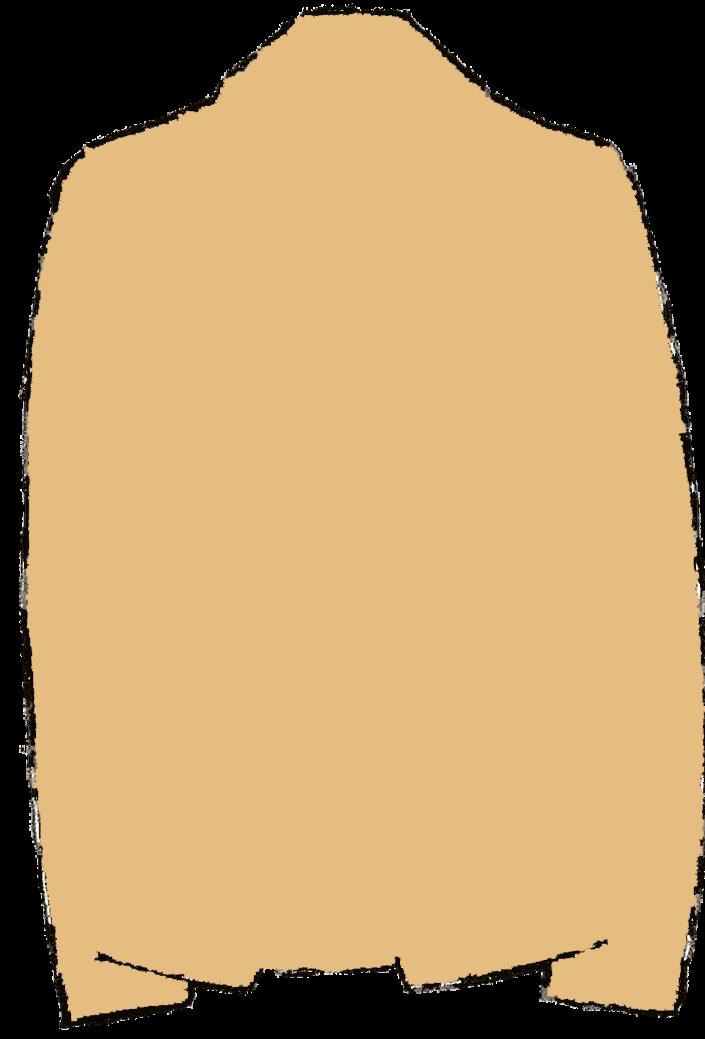
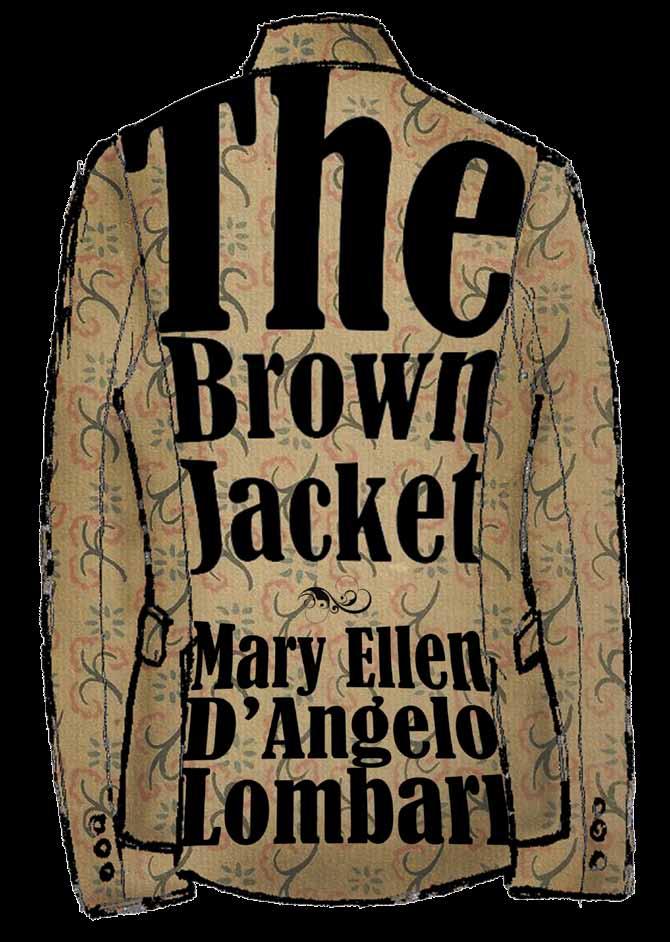

Creative Non-Fiction Creative Non-Fiction 76 77
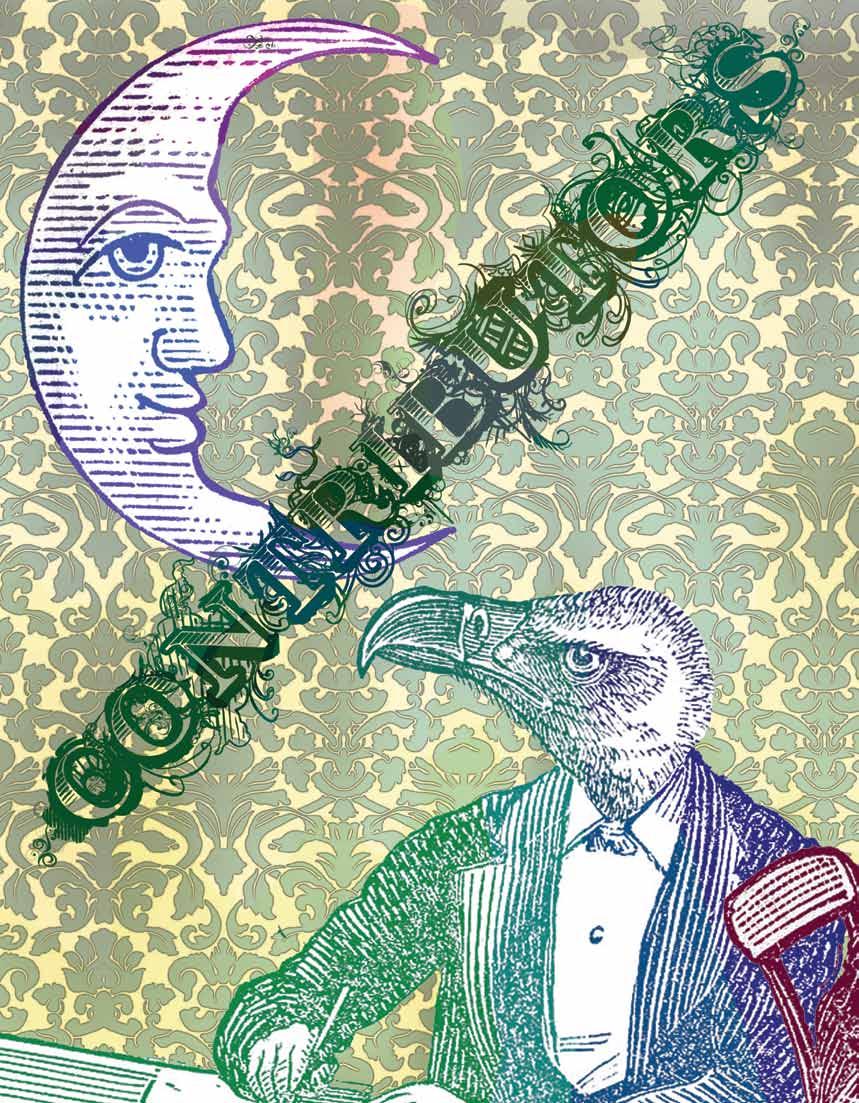
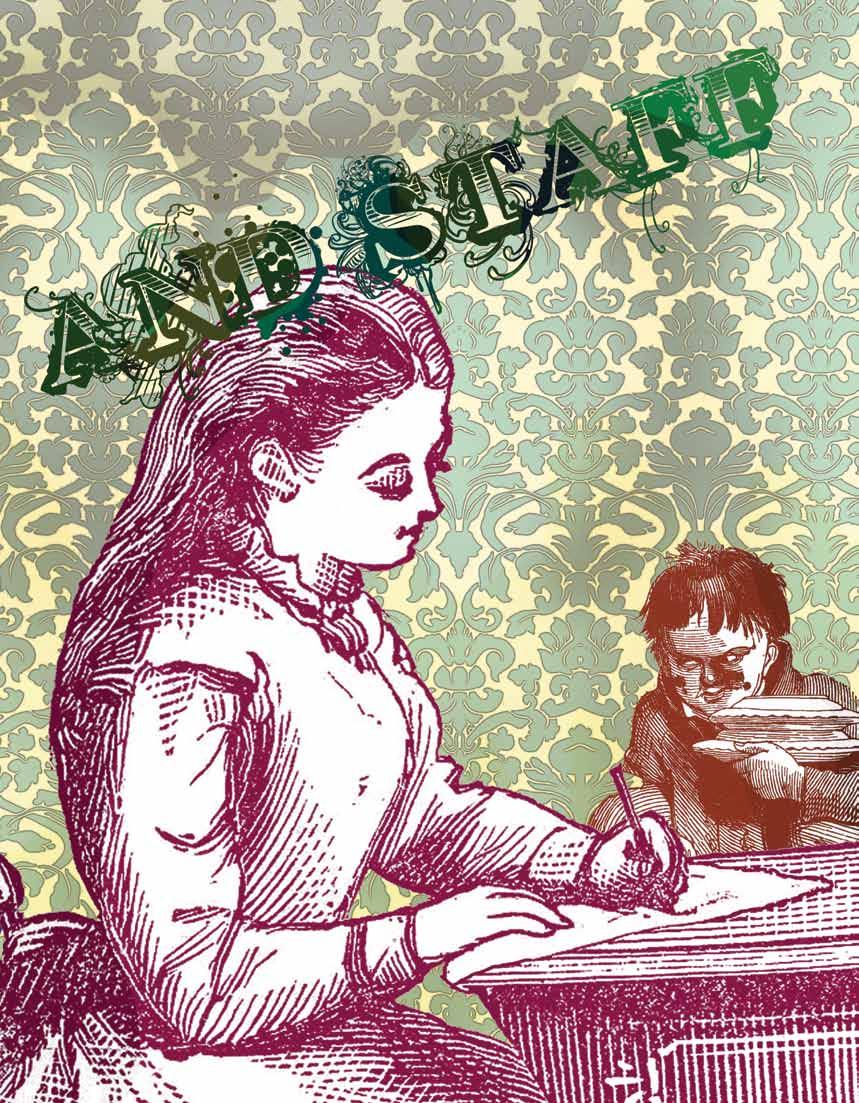
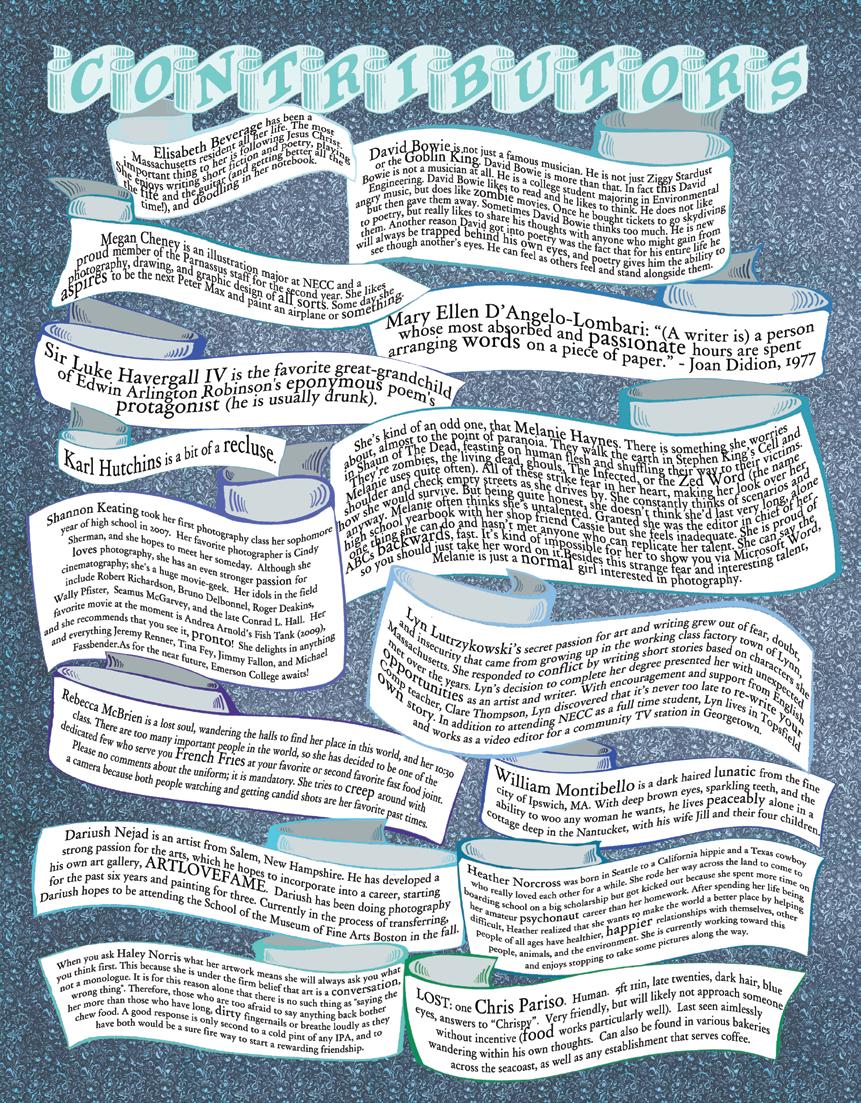
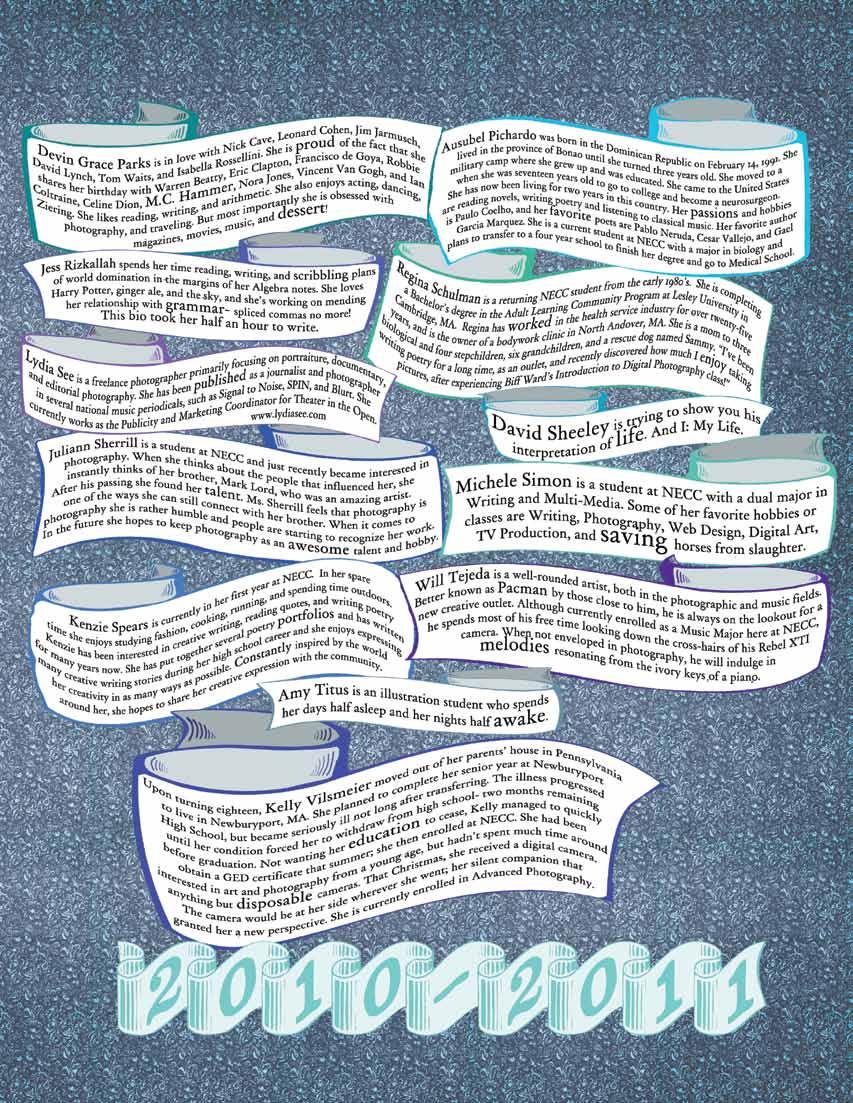
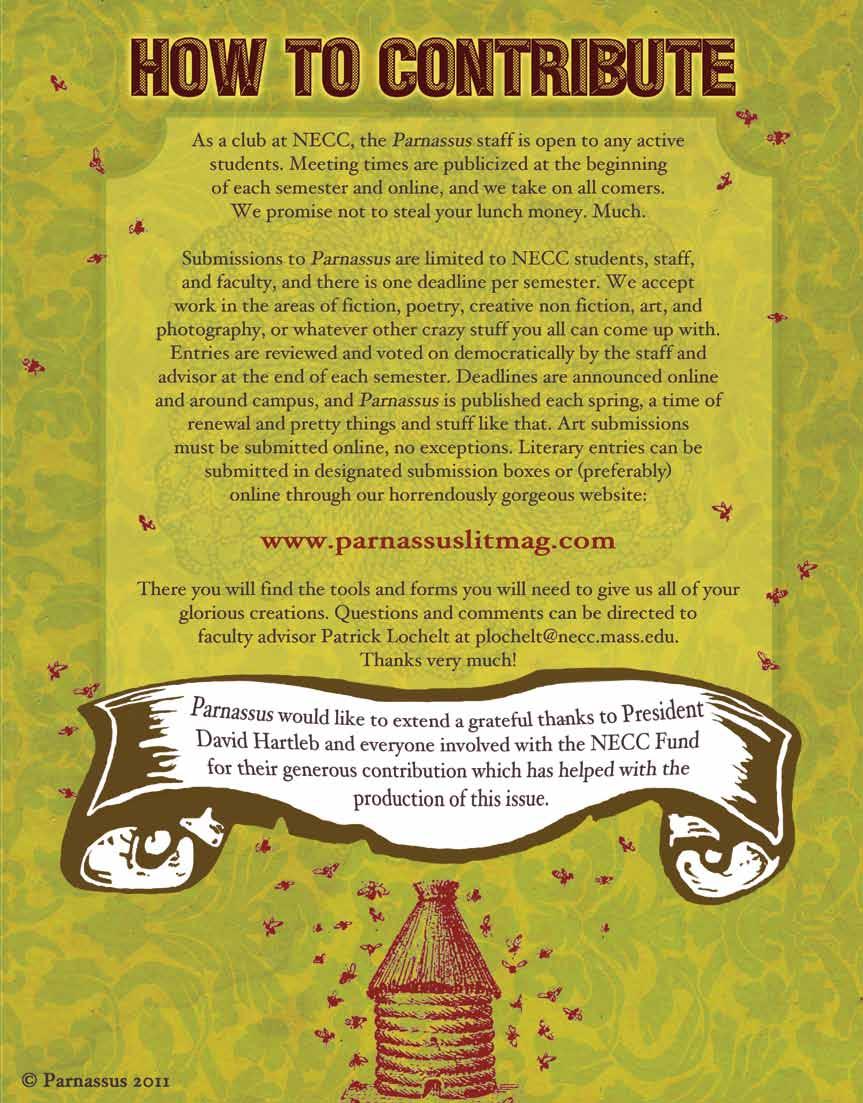

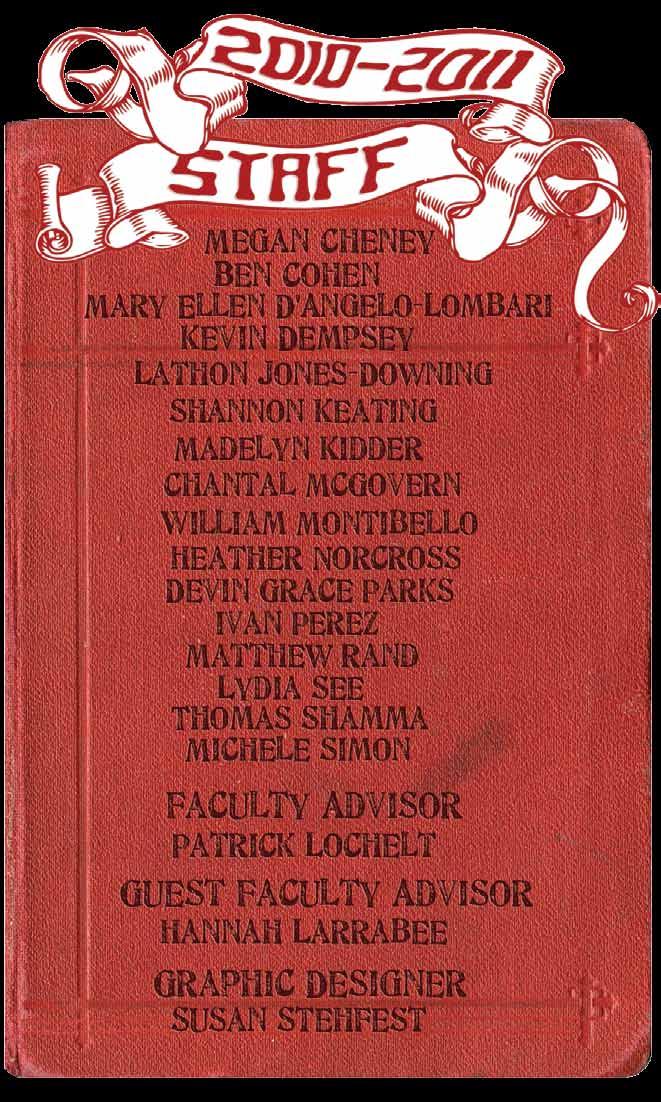
82 83

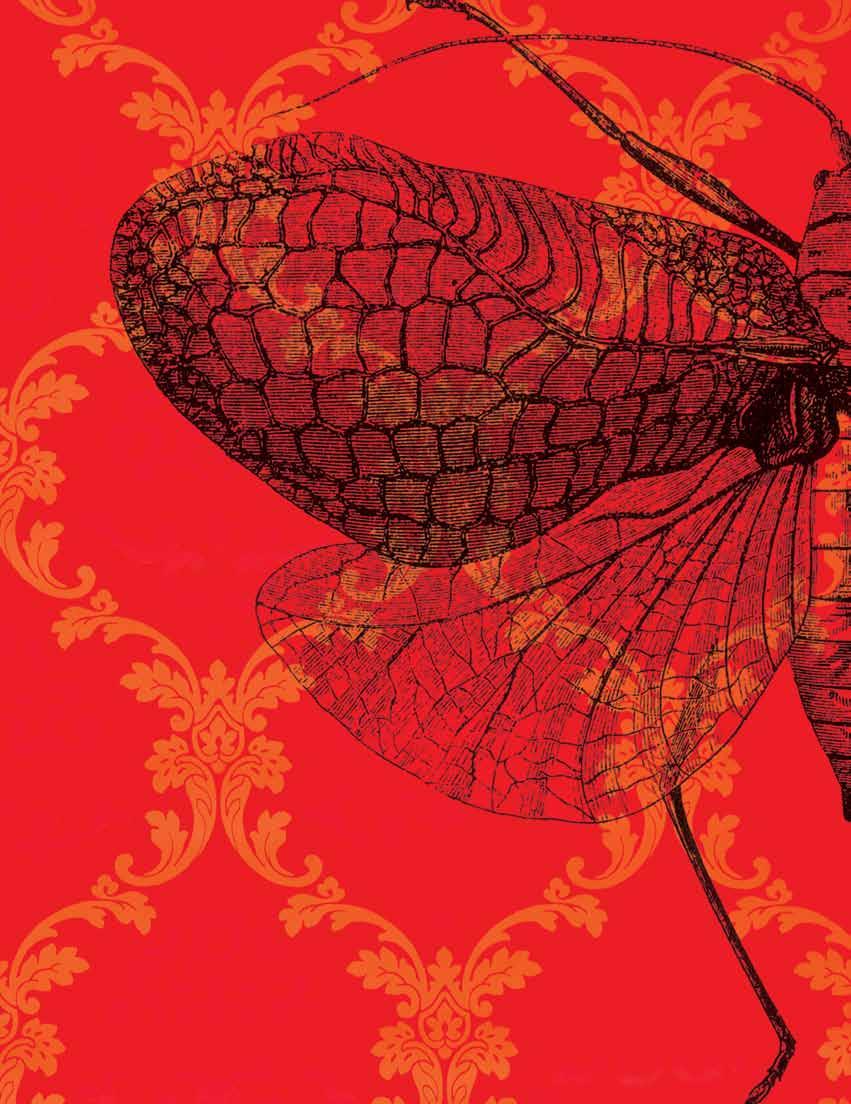
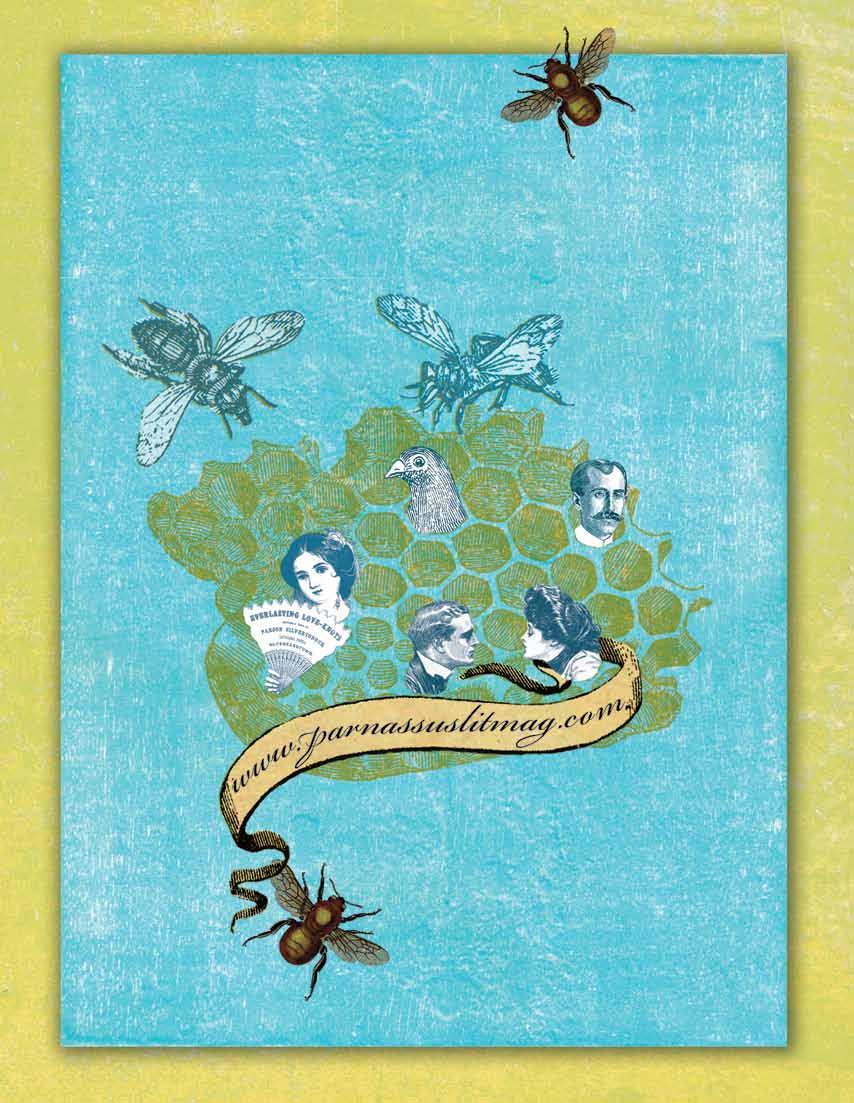



N ORT h ERN E SSE x C OMMUNITY C OLLE g E 2011

































